Here are my favorite poems about wildflowers categorized:
- Famous poems about wildflowers
- Wildflower poems by famous poets
- Wildflower poems
- Short poems about wildflowers
So if you want the best poems about wildflowers, then you’re in the right place.
Keep reading!
- 19 Mesmerizing Poems About Bluebells
- 31 Enchanting Poems About Cherry Blossoms
- 21 Intoxicating Poems About Lavender
- 63 Satisfying Poems About Weeds
- 69 Sublime Poems About Poppy Flowers
- 105 Exquisite Poems About Flowers
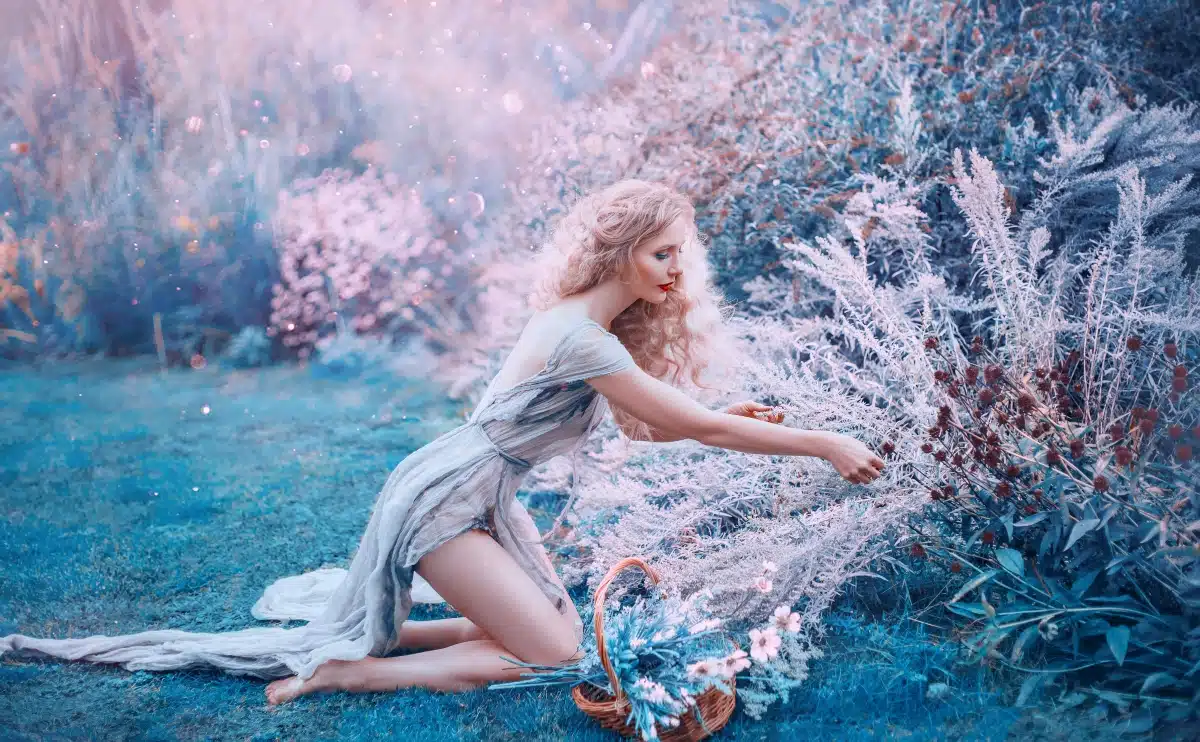
Free-Spirited Poems About Wildflowers
Step into a breathtaking tapestry of words as you immerse yourself in a carefully curated collection of poems that celebrate the untamed beauty of wildflowers.
Delight in the timeless verses penned by renowned poets that capture the ephemeral essence of wildflowers in all their resplendent glory.
From concise and captivating short poems to the immortal lines of famous poets, this extraordinary anthology will transport you to the whimsical world where wildflowers dance, enticing your senses and awakening your soul.
Get ready to be enchanted by the delicate petals and enchanting verses that unfold like a secret garden of poetic wonder.
Let’s dive into it!
My #1 Favorite Poem About Wildflowers
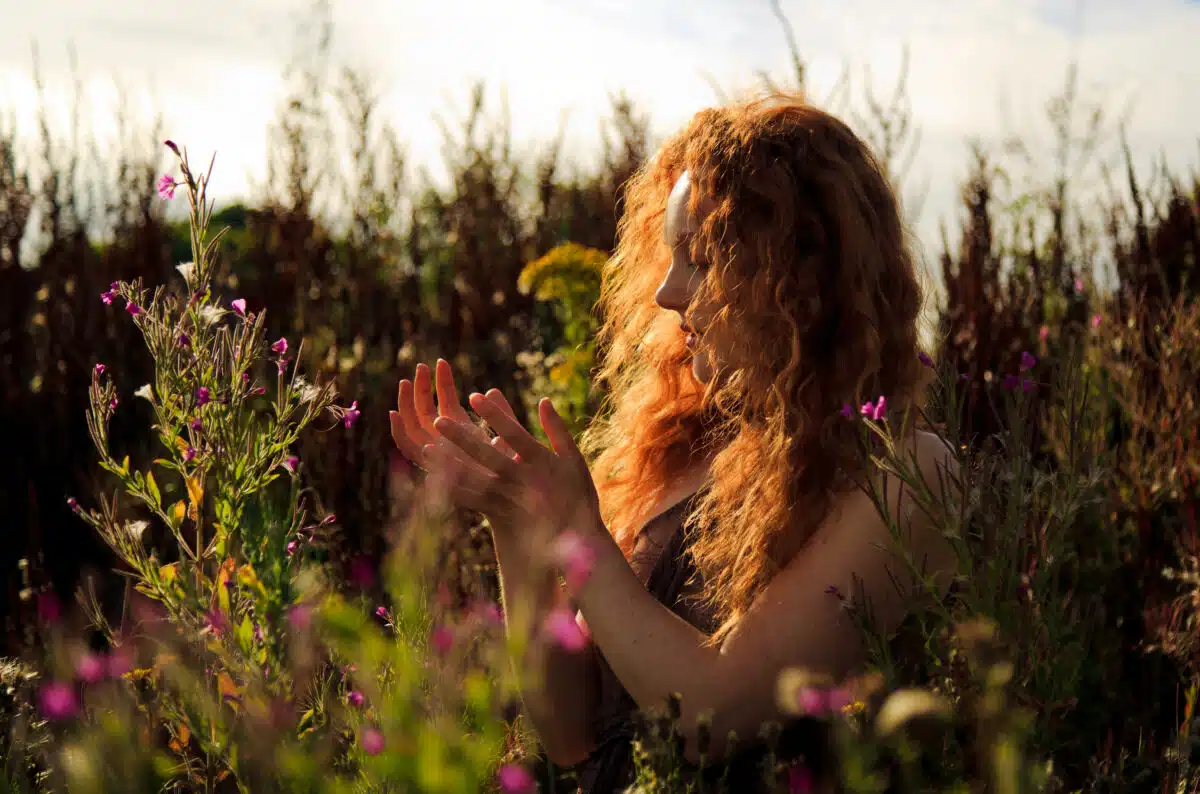
“Bring Me Wild Flowers” by Lucy Batham
When my path is dark and dreary,
And my heart is sad and weary,
And with griefs mine eyes are teary,
Bring me wild flowers.
When the heavens above are clouding,
All their beauties thus enshrouding ,
And with doubts my spirit crowding,
Bring me wild flowers.
When farewells are on me pressing
With their latest, fondest blessing,
In this sad, this sweet caressing,
Bring me wild flowers.
When I pine in pain and weakness,
And would learn in patient meekness,
That in bitter there is sweetness,
Bring me wild flowers.
For in them there’s oft concealing
Truths, that to the heart revealing,
O’er it shed a peaceful feeling,
Bring me wild flowers.
They, while rocks and mounds embracing,
Storms and whirlwinds bravely facing,
Still my fears are gently chasing,
Bring me wild flowers.
So I’d cling, in storms of sorrow,
To the rock, and comfort borrow,
Strength obtain for each to -morrow,
Bring me wild flowers.
He who clothes the lilies bending,
Grace and modest beauty blending
All my pathway is attending-
Bring me wild flowers.
Famous Poems About Wildflowers
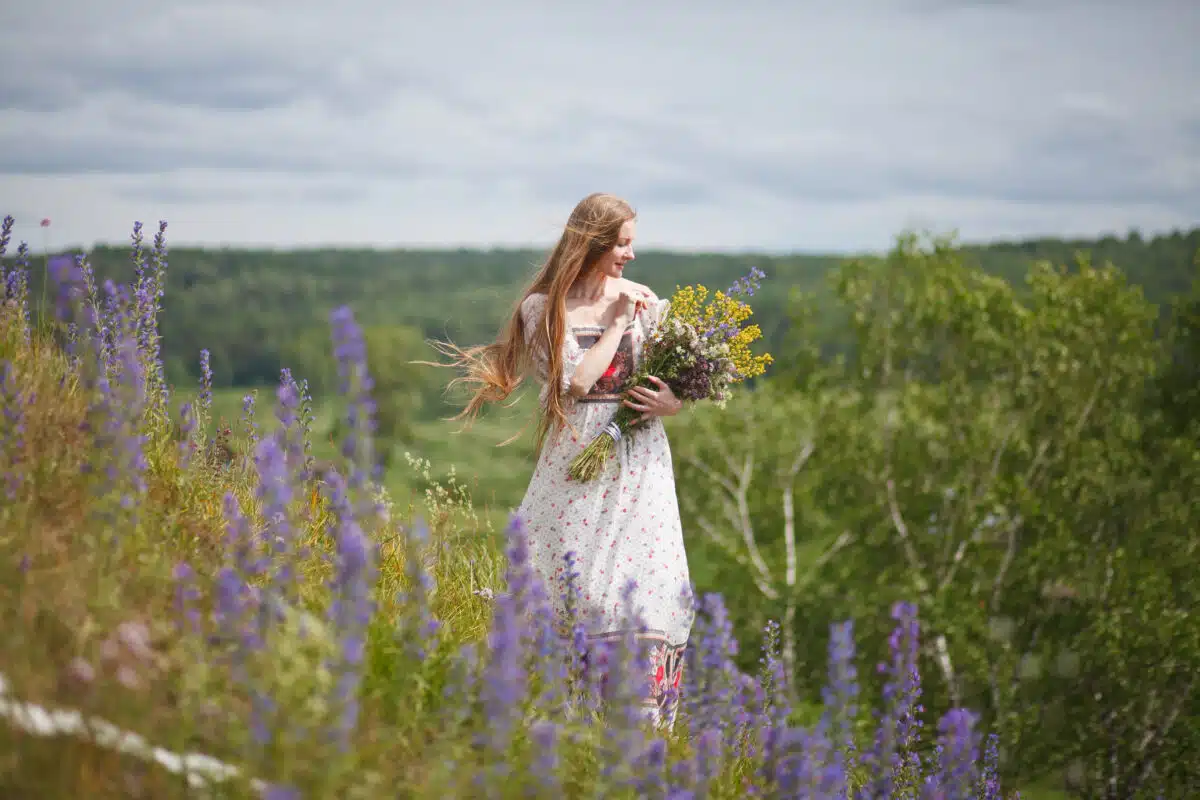
“The Wild Flower’s Song” by William Blake
As I wandered the forest,
The green leaves among,
I heard a Wild Flower
Singing a song.
‘I slept in the earth
In the silent night,
I murmured my fears
And I felt delight.
‘In the morning I went
As rosy as morn,
To seek for new joy;
But oh! met with scorn.’
“The Wild Iris” by Madison Julius Cawein
That day we wandered ‘mid the hills,–so lone
Clouds are not lonelier,–the forest lay
In emerald darkness ’round us. Many a stone
And gnarly root, gray-mossed, made wild our way;
And many a bird the glimmering light along
Showered the golden bubbles of its song.
Then in the valley, where the brook went by,
Silvering the ledges that it rippled from,–
An isolated slip of fallen sky,
Epitomizing heaven in its sum,–
An iris bloomed–blue, as if, flower-disguised,
The gaze of Spring had there materialized.
I have forgotten many things since then–
Much beauty and much happiness and grief;
And toiled and dreamed among my fellow-men,
Rejoicing in the knowledge life is brief.
“‘T is winter now,” so says each barren bough;
And face and hair proclaim ‘t is winter now.
I would forget the gladness of that spring!
I would forget that day when she and I,
Between the bird-song and the blossoming,
Went hand in hand beneath the soft spring sky!–
Much is forgotten, yea–and yet, and yet,
The things we would we never can forget.–
Nor I how May then minted treasuries
Of crowfoot gold; and molded out of light
The sorrel’s cups, whose elfin chalices
Of limpid spar were streaked with rosy white.
Nor all the stars of twinkling spiderwort,
And mandrake moons with which her brows were girt.
But most of all, yea, it were well for me,
Me and my heart, that I forget that flower,
The wild blue iris, azure fleur-de-lis,
That she and I together found that hour.
Its recollection can but emphasize
The pain of loss, remindful of her eyes.
“A Coloured Print” by Shokei by Amy Lowell
It winds along the face of a cliff
This path which I long to explore,
And over it dashes a waterfall,
And the air is full of the roar
And the thunderous voice of waters which sweep
In a silver torrent over some steep.
It clears the path with a mighty bound
And tumbles below and away,
And the trees and the bushes which grow in the rocks
Are wet with its jewelled spray;
The air is misty and heavy with sound,
And small, wet wildflowers star the ground.
Oh! The dampness is very good to smell,
And the path is soft to tread,
And beyond the fall it winds up and on,
While little streamlets thread
Their own meandering way down the hill
Each singing its own little song, until
I forget that ‘t is only a pictured path,
And I hear the water and wind,
And look through the mist, and strain my eyes
To see what there is behind;
For it must lead to a happy land,
This little path by a waterfall spanned.
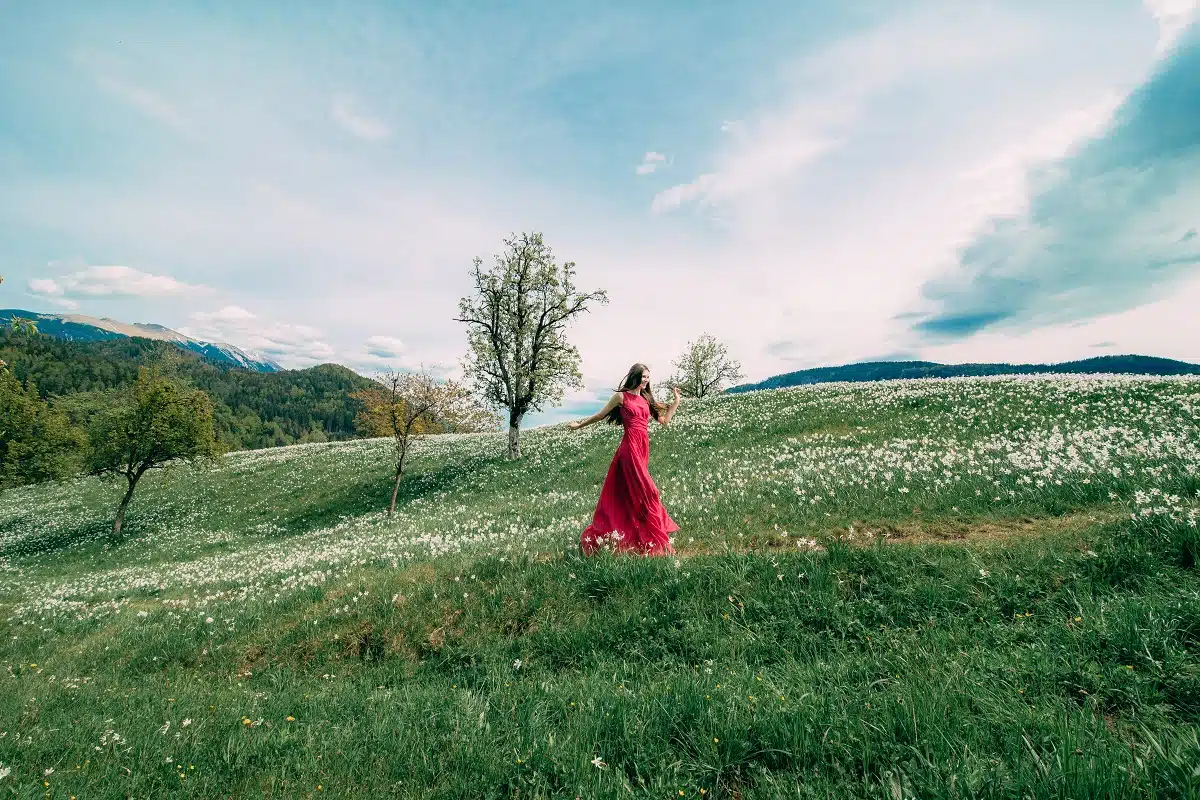
“I Wandered Lonely as a Cloud” by William Wordsworth
I wandered lonely as a Cloud
That floats on high o’er Vales and Hills,
When all at once I saw a crowd,
A host of golden Daffodils;
Beside the Lake, beneath the trees,
Fluttering and dancing in the breeze.
Continuous as the stars that shine
And twinkle on the Milky Way,
They stretched in never-ending line
Along the margin of a bay:
Ten thousand saw I at a glance,
Tossing their heads in sprightly dance.
The waves beside them danced, but they
Out-did the sparkling waves in glee:—
A Poet could not but be gay
In such a jocund company:
I gazed—and gazed—but little thought
What wealth the shew to me had brought:
For oft when on my couch I lie
In vacant or in pensive mood,
They flash upon that inward eye
Which is the bliss of solitude,
And then my heart with pleasure fills,
And dances with the Daffodils.
“In Flanders Fields” by John McCrae
In Flanders fields the poppies blow
Between the crosses, row on row,
That mark our place; and in the sky
The larks, still bravely singing, fly
Scarce heard amid the guns below.
We are the Dead. Short days ago
We lived, felt dawn, saw sunset glow,
Loved and were loved, and now we lie
In Flanders fields.
Take up our quarrel with the foe:
To you from failing hands we throw
The torch; be yours to hold it high.
If ye break faith with us who die
We shall not sleep, though poppies grow
In Flanders fields.
“Spring Has Come” by Oliver Wendell Holmes
Intra Muros
The sunbeams, lost for half a year,
Slant through my pane their morning rays;
For dry northwesters cold and clear,
The east blows in its thin blue haze.
And first the snowdrop’s bells are seen,
Then close against the sheltering wall
The tulip’s horn of dusky green,
The peony’s dark unfolding ball.
The golden-chaliced crocus burns;
The long narcissus-blades appear;
The cone-beaked hyacinth returns
To light her blue-flamed chandelier.
The willow’s whistling lashes, wrung
By the wild winds of gusty March,
With sallow leaflets lightly strung,
Are swaying by the tufted larch.
The elms have robed their slender spray
With full-blown flower and embryo leaf;
Wide o’er the clasping arch of day
Soars like a cloud their hoary chief.
See the proud tulip’s flaunting cup,
That flames in glory for an hour,—
Behold it withering,—then look up,—
How meek the forest monarch’s flower!
When wake the violets, Winter dies;
When sprout the elm-buds, Spring is near:
When lilacs blossom, Summer cries,
‘Bud, little roses! Spring is here!’
The windows blush with fresh bouquets,
Cut with the May-dew on their lips;
The radish all its bloom displays,
Pink as Aurora’s finger-tips.
Nor less the flood of light that showers
On beauty’s changed corolla-shades,—
The walks are gay as bridal bowers
With rows of many-petalled maids.
The scarlet shell-fish click and clash
In the blue barrow where they slide;
The horseman, proud of streak and splash,
Creeps homeward from his morning ride.
Here comes the dealer’s awkward string,
With neck in rope and tail in knot,—
Rough colts, with careless country-swing,
In lazy walk or slouching trot.
Wild filly from the mountain-side,
Doomed to the close and chafing thills,
Lend me thy long, untiring stride
To seek with thee thy western hills!
I hear the whispering voice of Spring,
The thrush’s trill, the robin’s cry,
Like some poor bird with prisoned wing
That sits and sings, but longs to fly.
Oh for one spot of living greed,—
One little spot where leaves can grow,—
To love unblamed, to walk unseen,
To dream above, to sleep below!
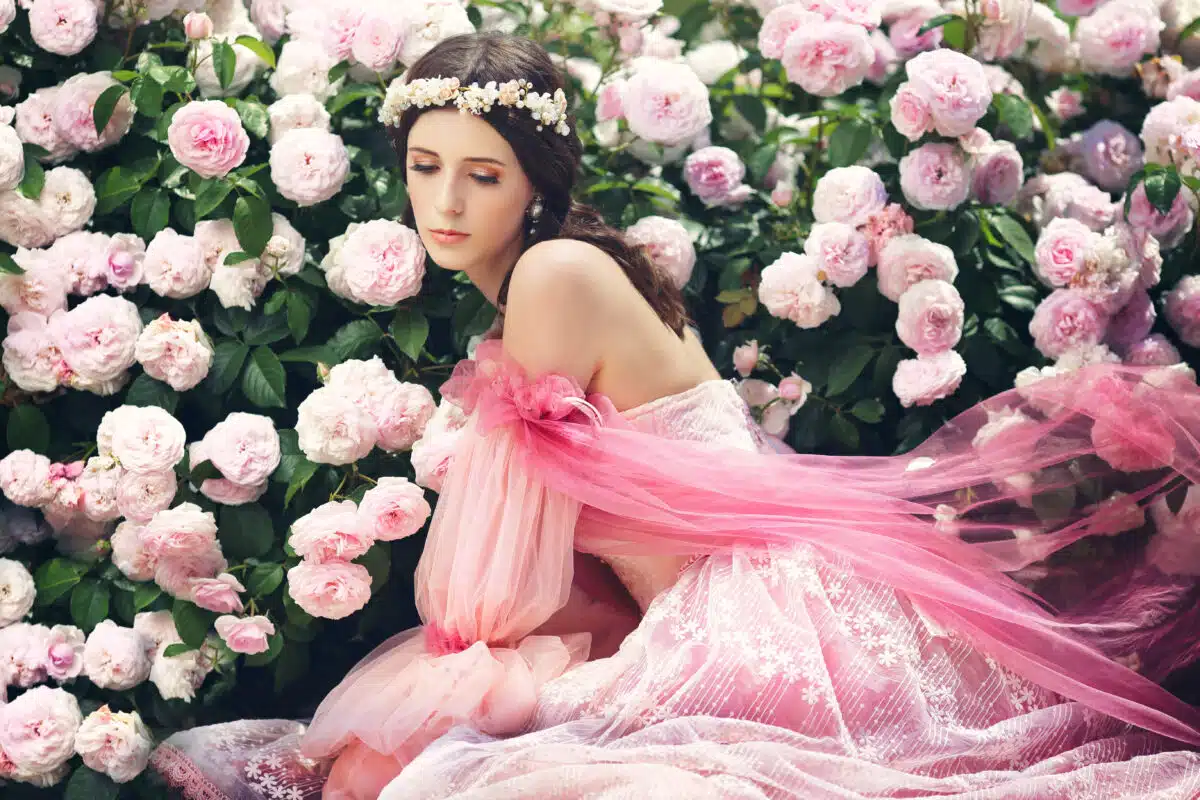
“The Wild Rose” by John Harris
I cannot tell how it may be with others
Over life’s sandy plain,
But I have loved the hedges as my brothers
In summer sun and rain.
And still I go to them in hours of weakness,
When overcome with fears,
Weighed down with sorrow, and beset with bleakness,
To weep away my tears.
But oftener do I seek their silent arches,
As some bright vision glows,
Cheered with the whisper of the solemn larches
And the red-rimmed wild rose.
It shines among the filberts sun-surrouounded,
Smiles in the brambles drear,
Outpours its sweets where dryness long abounded ,
The beauty of the year.
Sad eyes turn to it, and they gleam for gladness;
Care half – forgets his woes;
It has a charm for much of human sadness,
The beautiful wild rose.
“The Yellow Violet” by Byrant
When beechen buds begin to swell,
And woods the blue-bird’s warble know,
The yellow violet’s modest bell
Peeps from the last year’s leaves below.
Ere russet fields their green resume,
Sweet flower! I love in forest bare
To meet thee, when thy faint perfume
Alone is in the virgin air.
Ofall her train, the hands of Spring
First plant thee in the watery mould,
And I have seen. thee blossoming
Beside the snow-bank’s edges cold.
Thy parent sun, who bade thee view
Pale skies, and chilling moisture sip,
Has bathed thee in his own bright hue,
And streaked with jet thy glowing lip.
Yet slight thy form, and low thy seat,
And earthward bent thy gentle eye,
Unapt the passing view to meet,
When loftier flowers are flaunting nigh.
Oft, in the sunless April day,
Thy early smile has stayed my walk,
But ‘ midst the gorgeous blooms of May,
I passed thee on thy humble stalk.
So they who climb to wealth, forget
The friends in darker fortunes tried;
I copied them-but I regret
That I should ape the ways of pride.
And when again the genial hour
Awakes the painted tribes of light,
I’ll not o’erlook the modest flower
That made the woods of April bright.
“To a Mountain Daisy” by Robert Burns
WEE, modest, crimson-tipped flower,
Thou’s met me in an evil hour;
For I maun crush amang the stoure
Thy slender stem:
To spare thee now is past my power,
Thou bonnie gem.
Alas! it’s no thy neebor sweet,
The bonnie lark, companion meet,
Bending thee ‘ mang the dewy weet!
Wi’ speckled breast,
When upward-springing, blithe, to greet
The purpling east.
Cauld blew the bitter-biting north
Upon thy early, humble birth;
Yet cheerfully thou glinted forth Amid the storm,
Scarce reared above the parent earth
Thy tender form.
The flaunting flowers our gardens yield,
High shelt’ring woods and wa’s maun shield:
But thou, beneath the random bield
O’ clod or stane,
Adorns the histie stibble-field,
Unseen, alane.
There, in thy scanty mantle clad,
Thy snawie bosom sunward spread,
Thou lifts thy unassuming head In humble guise;
But now the share uptears thy bed,
And low thou lies!
Such is the fate of artless maid,
Sweet floweret of the rural shade!
By love’s simplicity betrayed,
And guileless trust,
Till she, like thee, all soiled, is laid
Low i’ the dust.
Such is the fate of simple bard,
On life’s rough ocean luckless starred :
Unskilful he to note the card!
Of prudent lore,
Till billows rage, and gales blow hard,
And whelm him o’er!
Such fate to suffering worth is given,
Wholong with wants and woes has striven,
By human pride or cunning driven,
To misery’s brink,
Till wrenched of every stay but Heaven,
He, ruined, sink!
Even thou who mourn’st the daisy’s fate,
That fate is thine-no distant date ;
Stern Ruin’s ploughshare drives elate,
Full on thy bloom,
Till crushed beneath the furrow’s weight,
Shall be thy doom!
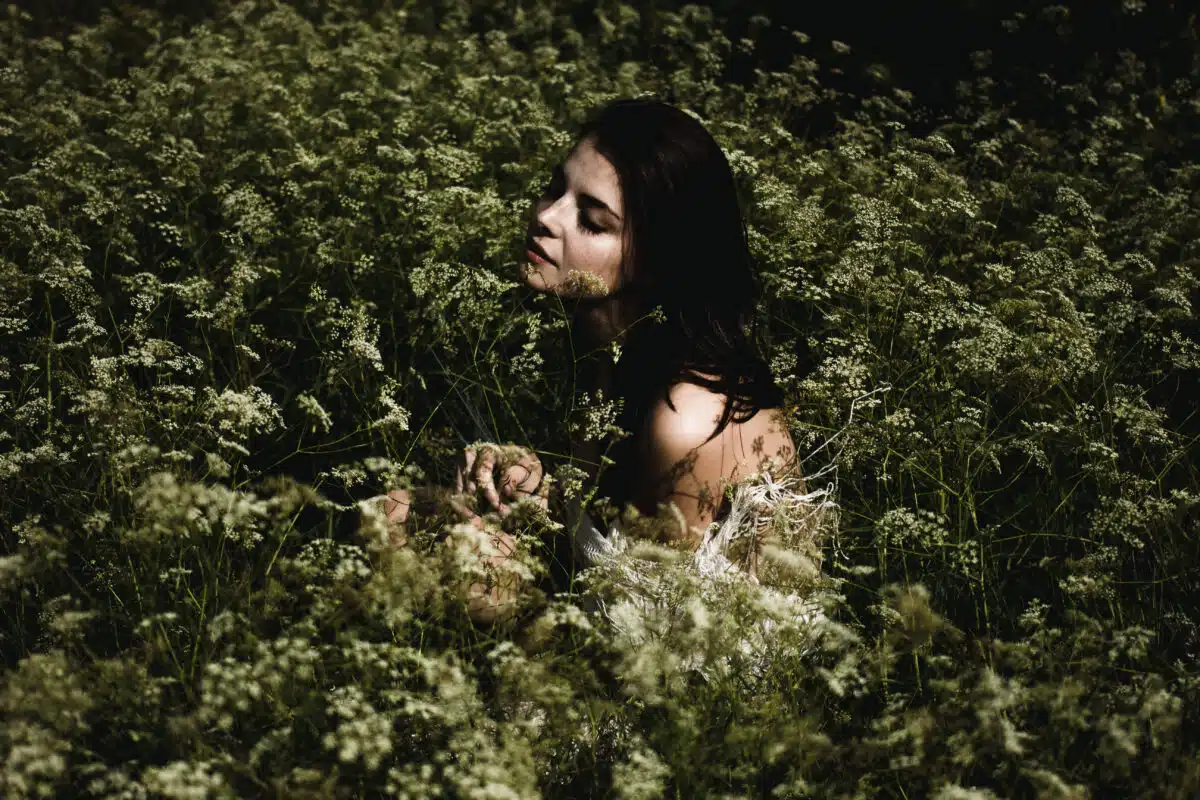
“The Death of the Flowers” by Bryant
THE melancholy days are come,
The saddest of the year,
Of wailing winds, and naked woods,
And meadows brown and sear.
Heap’d in the hollows ofthe grove,
The wither’d leaves lie dead ;
They rustle to the eddying gust,
And to the rabbit’s tread.
The robin and the wren are flown,
And from the shrubs the jay,
And from the wood-top calls the crow,
Through all the gloomy day.
Where are the flowers, the fair young flowers,
That lately sprang and stood
In brighter light and softer airs,
Abeauteous sisterhood?
Alas! they all are in their graves ;
The gentle race offlowers
Are lying in their lowly beds,
With the fair and good of ours.
The rain is falling where they lie,
But the cold November rain
Calls not, from out the gloomy earth,
The lovely ones again.
The wind-flower and the violet,
They perish’d long ago,
And the brier-rose and the orchis died,
Amid the summer glow;
But on the hill the golden-rod,
And the aster in the wood,
And the yellow sun-flower by the brook
In autumn beauty stood,
Till fell the frost from the clear, cold heaven,
As falls the plague on men,
And the brightness of their smile was gone,
From upland, glade and glen.
And now, when comes the calm, mild day,
As still such days will come,
To call the squirrel and the bee
From out their winter home;
When the sound of dropping nuts is heard,
Though all the trees are still,
And twinkle in the smoky light
The waters of the rill,
The south wind searches for the flowers
Whosefragrance late he bore,
And sighs to find them in the wood
And by the stream no more.
And then I think of one who in
Her youthful beauty died,
The fair, meek blossom that grew up
And faded by my side;
In the cold, moist earth we laid her,
When the forest cast the leaf,
And we wept that one so lovely
Should have a life so brief:
Yet not unmeet it was that one,
Like that young friend of ours,
So gentle and so beautiful,
Should perish with the flowers.
“Wild Flowers” by Campbell
NOT a pastoral song has a pleasanter tune
Than ye speak to my heart, little wildings of June;
Of old ruinous castles ye tell,
Where I thought it delightful your beauties to find,
When the magic of Nature first breathed on my mind,
And your blossoms were part of her spell,
Even now, what affections the violet awakes!
What loved little islands, twice seen in their lakes,
Can the wild water-lily restore!
What landscapes I read in the primrose’s looks,
And what pictures of pebbled and minnowy brooks,
In the vetches that tangled their shore.
Earth’s cultureless buds, to my heart ye were dear,
Erethe fever of passion, or ague of fear,
Had scathed my existence’s bloom;
Once I welcome you more, in life’s passionless stage,
With the visions of youth to revisit my age,
And I wish you to grow on my tomb.
“Woodbine and Other Flowers” by Milton
YE valleys low, where the mild whispers rise,
Of shades, and wanton winds, and gushing brooks,
On whose fresh lap the swart-star sparely looks;
Throw hither all your quaint enamell’d eyes,
That on the green turf suck the honeyed showers,
And purple all the ground with vernal flowers.
Bring the rath primrose that forsaken dies,
Thetufted crow-toe, and pale jessamine,
The white pink, and the pansy freak’d with jet,
The musk rose, and the well-attired woodbine,
With cowslips wan that hang the pensive head,
And every flower that sad embroidery wears:
Bid amaranthus all his beauty shed,
And daffodillies fill their cups with tears,
To strew the laureate hearse where Lycid lies.
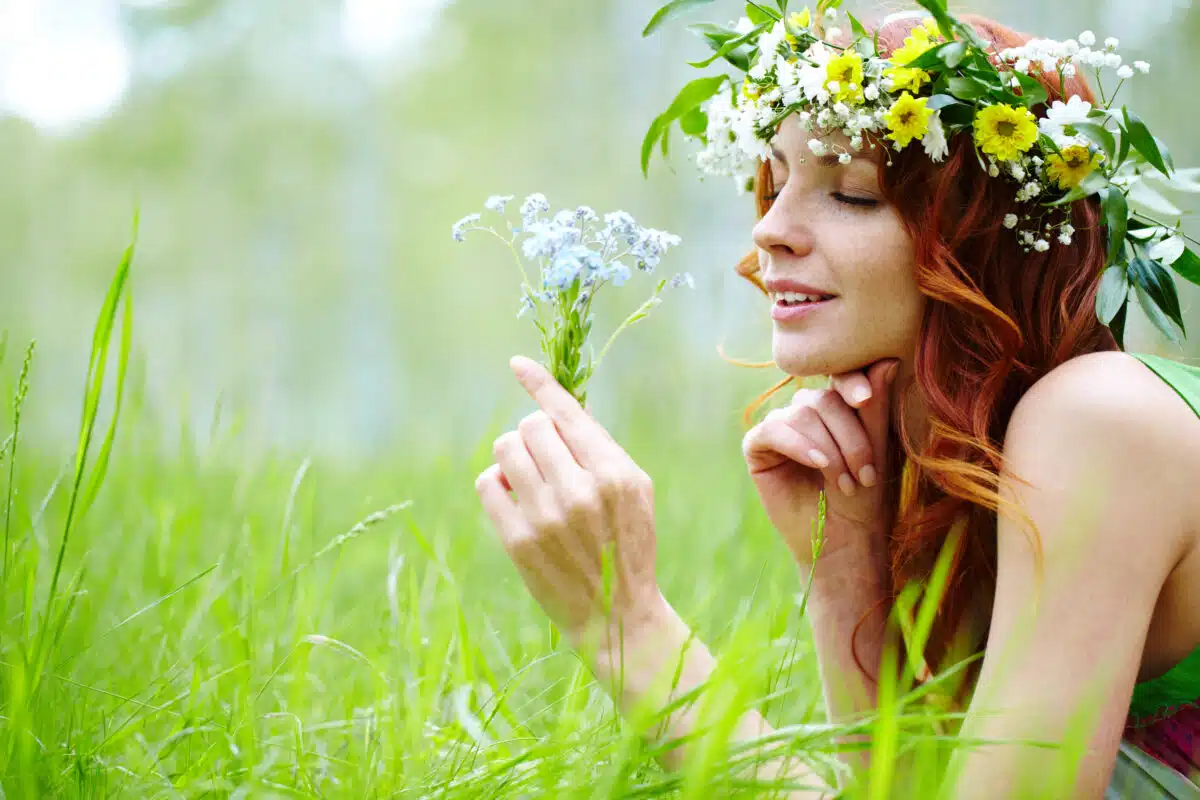
“Woodland Delights” by Drummond
THRICE happy he who by some shady grove,
Far from the clamorous world, doth live his own,
Though solitary, who is not alone,
But doth converse with that eternal Love:
O how more sweet is bird’s harmonious moan,
Or the hoarse sobbings of the widowed dove,
Than those smooth whisperings near a prince’s throne,
Which good make doubtful do, the evil approve!
O how more sweet is Zephyr’s wholesome breath,
And sighs embalmed, which new-born flowers unfold,
Than that applause vain honour doth bequeath!
How sweet are streams, to poison drunk in gold!
The world is full of horrors, troubles, slights;
Woods’ harmless shades have only true delights.
Wildflower Poems by Famous Poets
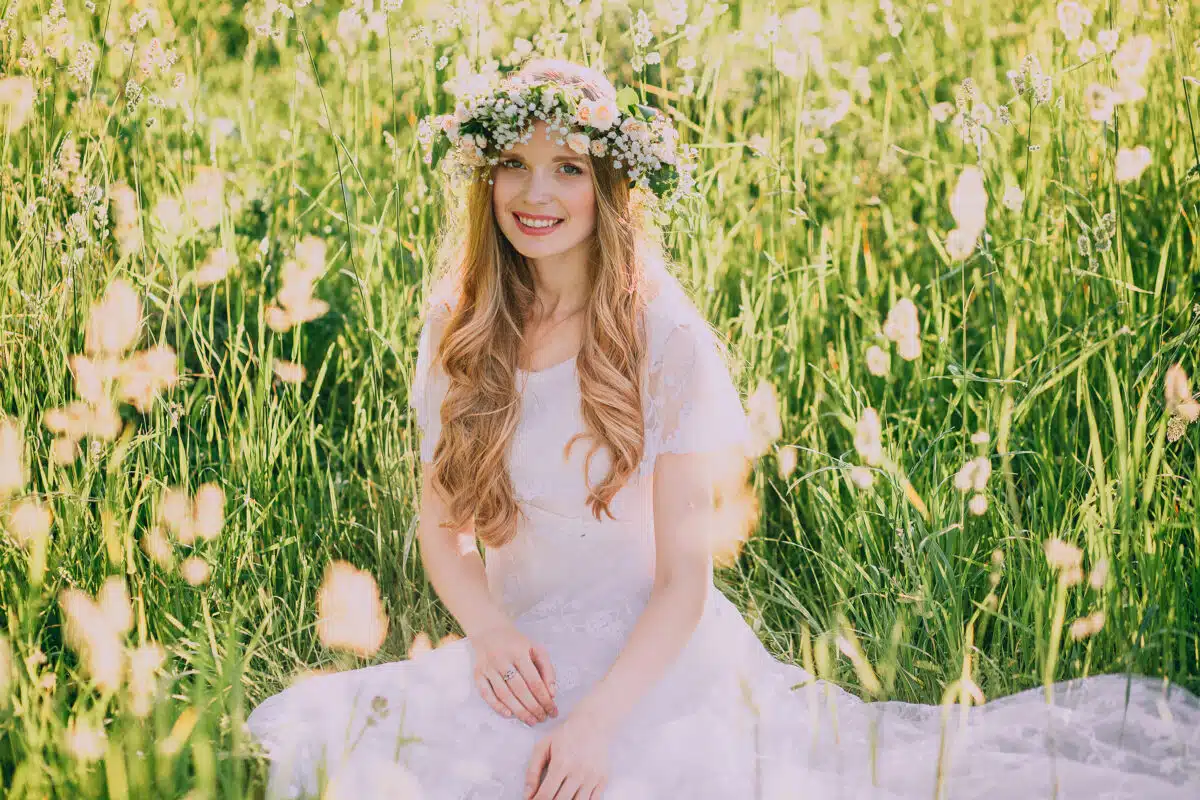
“Wild Flowers” by George MacDonald
Content Primroses,
With hearts at rest in your thick leaves’ soft care,
Peeping as from his mother’s lap the child
Who courts shy shelter from his own open air!-
Hanging Harebell,
Whose blue heaven to no wanderer ever closes,
Though thou still lookest earthward from thy domed cell!-
Fluttering-wild
Anemone, so well
Named of the Wind, to whom thou, fettered-free,
Yieldest thee, helpless-wilfully,
With Take me or leave me,
Sweet Wind, I am thine own Anemone!-
Thirsty Arum, ever dreaming
Of lakes in wildernesses gleaming!-
Fire-winged Pimpernel,
Communing with some hidden well,
And secrets with the sun-god holding,
At fixed hour folding and unfolding!-
How is it with you, children all,
When human children on you fall,
Gather you in eager haste,
Spoil your plenty with their waste–
Fill and fill their dropping hands?
Feel you hurtfully disgraced
By their injurious demands?
Do you know them from afar,
Shuddering at their merry hum,
Growing faint as near they come?
Blind and deaf they think you are–
Is it only ye are dumb?
You alive at least, I think,
Trembling almost on the brink
Of our lonely consciousness:
If it be so,
Take this comfort for your woe,
For the breaking of your rest,
For the tearing in your breast,
For the blotting of the sun,
For the death too soon begun,
For all else beyond redress–
Or what seemeth so to be–
That the children’s wonder-springs
Bubble high at sight of you,
Lovely, lowly, common things:
In you more than you they see!
Take this too-that, walking out,
Looking fearlessly about,
Ye rebuke our manhood’s doubt,
And our childhood’s faith renew;
So that we, with old age nigh,
Seeing you alive and well
Out of winter’s crucible,
Hearing you, from graveyard crept,
Tell us that ye only slept–
Think we die not, though we die.
Thus ye die not, though ye die–
Only yield your being up,
Like a nectar-holding cup:
Deaf, ye give to them that hear,
With a greatness lovely-dear;
Blind, ye give to them that see–
Poor, but bounteous royally.
Lowly servants to the higher,
Burning upwards in the fire
Of Nature’s endless sacrifice,
In great Life’s ascent ye rise,
Leave the lowly earth behind,
Pass into the human mind,
Pass with it up into God,
Whence ye came though through the clod–
Pass, and find yourselves at home
Where but life can go and come;
Where all life is in its nest,
At loving one with holy Best;-
Who knows?-with shadowy, dawning sense
Of a past, age-long somnolence!
“The Wild-Flower Nosegay” by John Clare
In life’s first years as on a mother’s breast,
When Nature nurs’d me in her flowery pride,
I cull’d her bounty, such as seemed best,
And made my garlands by some hedge-row side:
With pleasing eagerness the mind reclaims
From black oblivion’s shroud such artless scenes,
And cons the calendar of childish names
With simple joy, when manhood intervenes.
From the sweet time that spring’s young thrills are born,
And golden catkins deck the sallow tree,
Till summer’s blue-caps blossom mid the corn,
And autumn’s ragwort yellows o’er the lea,
I roam’d the fields about, a happy child,
And bound my posies up with rushy ties,
And laugh’d and mutter’d o’er my visions wild,
Bred in the brain of pleasure’s ecstacies.
Crimp-frilled daisy, bright bronze buttercup,
Freckt cowslip-peeps, gilt whins of morning’s dew,
And hooded arum early sprouting up
Ere the white-thorn bud half unfolds to view,
And wan-hued lady-smocks, that love to spring
‘Side the swamp margin of some plashy pond;
And all the blooms that early Aprils bring,
With eager joy each fill’d my playful hand:
The jaundice-tinctur’d primrose, sickly sere,
Mid its broad curled leaves of mellow green,
Hemm’d in with relics of the ‘parted year,
The mournful wrecks of summers that have been–
Dead leaves of ash, and oak, and hazel tree,
The constant covering of all woody land;
With tiny violets, creeping plenteously,
That one by one entic’d my patient hand.
As shadowy April’s suns and showers did pass,
And summer’s wild profusions plenteous grew,
Hiding the spring-flowers in long weeds and grass,
What meads and copses would I wander thro’!
When on the water op’d the lily buds,
And fine long purples shadow’d in the lake,
When purple bugles peeped in the woods
‘Neath darkest shades that boughs and leaves could make.
Then did I wear day’s many hours away
In gathering blooms of seemly sweetest kinds,
Scrambling for blossoms of the white-thorn may,
Ere they fell victims to unfeeling winds;
And twisted woodbines, and the flusht briar rose,
How sweet remembrance on the mind doth rise
As they bow’d arching where the runnel flows,
To think how oft I waded for the prize.
The ragged-robins by the spinney lake,
And flag-flower bunches deeper down the flood,
And, snugly hiding ‘neath the feather’d brake,
Full many a blue-bell flower and cuckoo-bud,
And old-man’s beard, that wreath’d along the hedge
Its oddly rude misshapen tawny flowers,
And prickly burs that crowd the leaves of sedge,
Have claim’d my pleasing search for hours and hours.
And down the hay-fields, wading ‘bove the knees
Through seas of waving grass, what days I’ve gone,
Cheating the hopes of many labouring bees
By cropping blossoms they were perch’d upon;
As thyme along the hills, and lambtoe knots,
And the wild stalking Canterbury bell,
By hedge-row side or bushy bordering spots,
That loves in shade and solitude to dwell.
And when the summer’s swarms, half-nameless, fled,
And autumn’s landscape faded bleak and wild,
When leaves ‘gan fall and show their berries red,
Still with the season would I be beguil’d
Lone spots to seek, home leaving far behind,–
Where wildness rears her lings and teazle-burs,
And where, last lingering of the flowery kind,
Blue heath-bells tremble ‘neath the shelt’ring furze.
Sweet were such walks on the half-barren wild,
Which ploughs leave quiet with their briars and brakes,
Prospects of freedom pleasing from a child,
To track the crook’d path which the rabbit makes!
On these past times one loves to look behind;
Nor lives a soul, mere trifles as they be,
But feels a joy in bringing to his mind
The wild-flower rambles of his infancy.
Tis sweet to view, as in a favour’d book,
Life’s rude beginning page long turned o’er;
‘Tis nature’s common feeling, back to look
On things that pleas’d us, when they are no more:
Pausing on childish scenes a wish repeat,
Seeming more sweet to value when we’re men,
As one, awaken’d from a vision sweet,
Wishes to sleep and dream it o’er again.
“Poppies” by Victor James Daley
These are the flowers of sleep
That nod in the heavy noon,
Ere the brown shades eastward creep
To a drowsy and dreamful tune—
These are the flowers of sleep.
Love’s lilies are passion-pale,
But these on the sun-kissed flood
Of the corn, that rolls breast deep,
Burn redder than drops of blood
On a dead king’s golden mail.
Heart’s dearest, I would that we
These blooms of forgetfulness
Might bind on our brows, and steep
Our love in Lethe ere less
Grow its flame with thee or me.
When Time with his evil eye
The beautiful Love has slain,
There is nought to gain or keep
Thereafter, and all is vain.
Should we wait to see Love die?
Sweetheart, of the joys men reap
We have reaped; ’tis time to rest.
Why should we wake but to weep?
Sleep and forgetting is best—
These are the flowers of sleep.
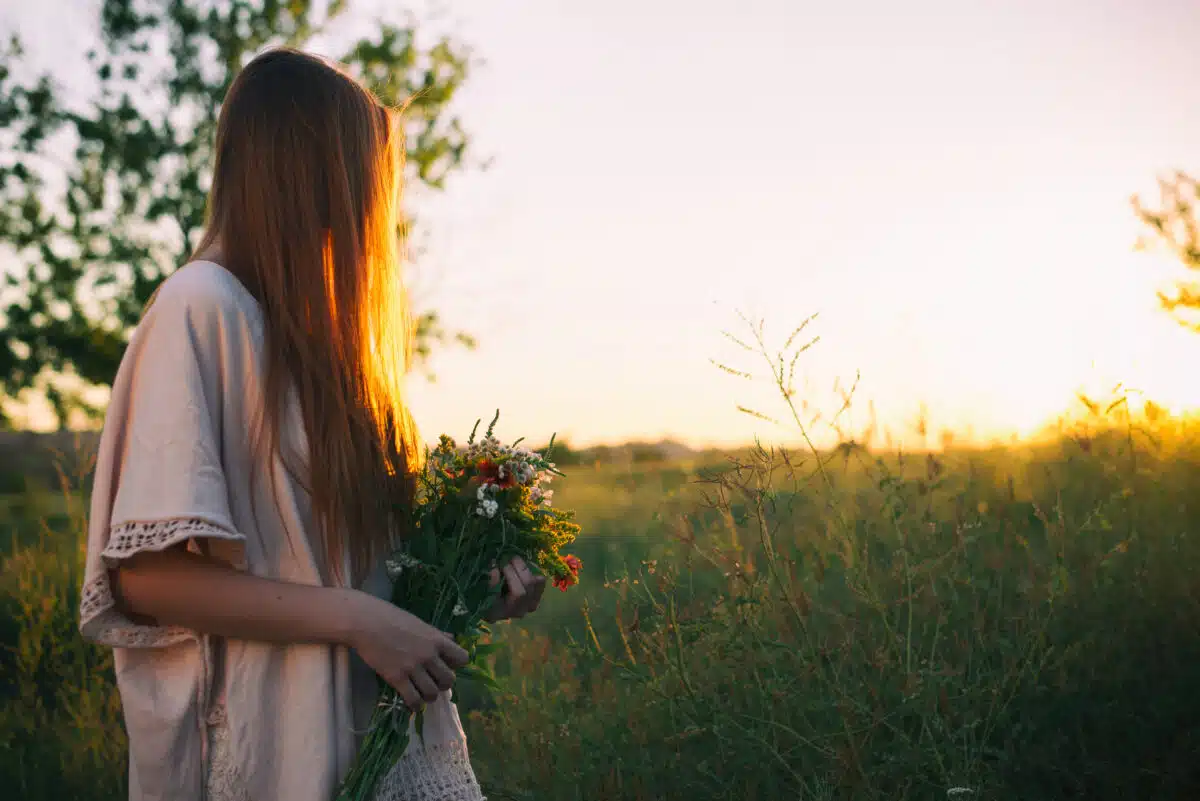
“Wildpeace” by Yehuda Amichai
Not the peace of a cease-fire
not even the vision of the wolf and the lamb,
but rather
as in the heart when the excitement is over
and you can talk only about a great weariness.
I know that I know how to kill, that makes me an adult.
And my son plays with a toy gun that knows
how to open and close its eyes and say Mama.
A peace
without the big noise of beating swords into ploughshares,
without words, without
the thud of the heavy rubber stamp: let it be
light, floating, like lazy white foam.
A little rest for the wounds – who speaks of healing?
(And the howl of the orphans is passed from one generation
to the next, as in a relay race:
the baton never falls.)
Let it come
like wildflowers,
suddenly, because the field
must have it: wildpeace.
“Poppy Song” by Elsa Gidlow
Love in a garden of poppies
Playing at living life,
Love with smiles in her speech,
Love dancing at dawn
In a garden of flushed pink poppies.
Love, unsmiling now,
At noon in the garden of poppies,
With a laugh under her eyelids,
Fear deep in her eyes,
And tangled with her hair,
Sighs and a struggling joy.
Love, with a dim, strained face,
At night in the garden of poppies,
Her lips crushing the bloom
From the fairest flower there.
Love drunk with the wine
She has drawn from the poppy’s heart:
Love with death at her breasts.
Love at the end of night
Shaded by drooping poppies;
Love with scattered hair
And strange stains on her lips.
Love with death at her breasts.
“The Bluebell” by Anne Brontë
A fine and subtle spirit dwells
In every little flower,
Each one its own sweet feeling breathes
With more or less of power.
There is a silent eloquence
In every wild bluebell
That fills my softened heart with bliss
That words could never tell.
Yet I recall not long ago
A bright and sunny day,
‘Twas when I led a toilsome life
So many leagues away;
That day along a sunny road
All carelessly I strayed,
Between two banks where smiling flowers
Their varied hues displayed.
Before me rose a lofty hill,
Behind me lay the sea,
My heart was not so heavy then
As it was wont to be.
Less harassed than at other times
I saw the scene was fair,
And spoke and laughed to those around,
As if I knew no care.
But when I looked upon the bank
My wandering glances fell
Upon a little trembling flower,
A single sweet bluebell.
Whence came that rising in my throat,
That dimness in my eye?
Why did those burning drops distil —
Those bitter feelings rise?
O, that lone flower recalled to me
My happy childhood’s hours
When bluebells seemed like fairy gifts
A prize among the flowers,
Those sunny days of merriment
When heart and soul were free,
And when I dwelt with kindred hearts
That loved and cared for me.
I had not then mid heartless crowds
To spend a thankless life
In seeking after others’ weal
With anxious toil and strife.
‘Sad wanderer, weep those blissful times
That never may return!’
The lovely floweret seemed to say,
And thus it made me mourn.
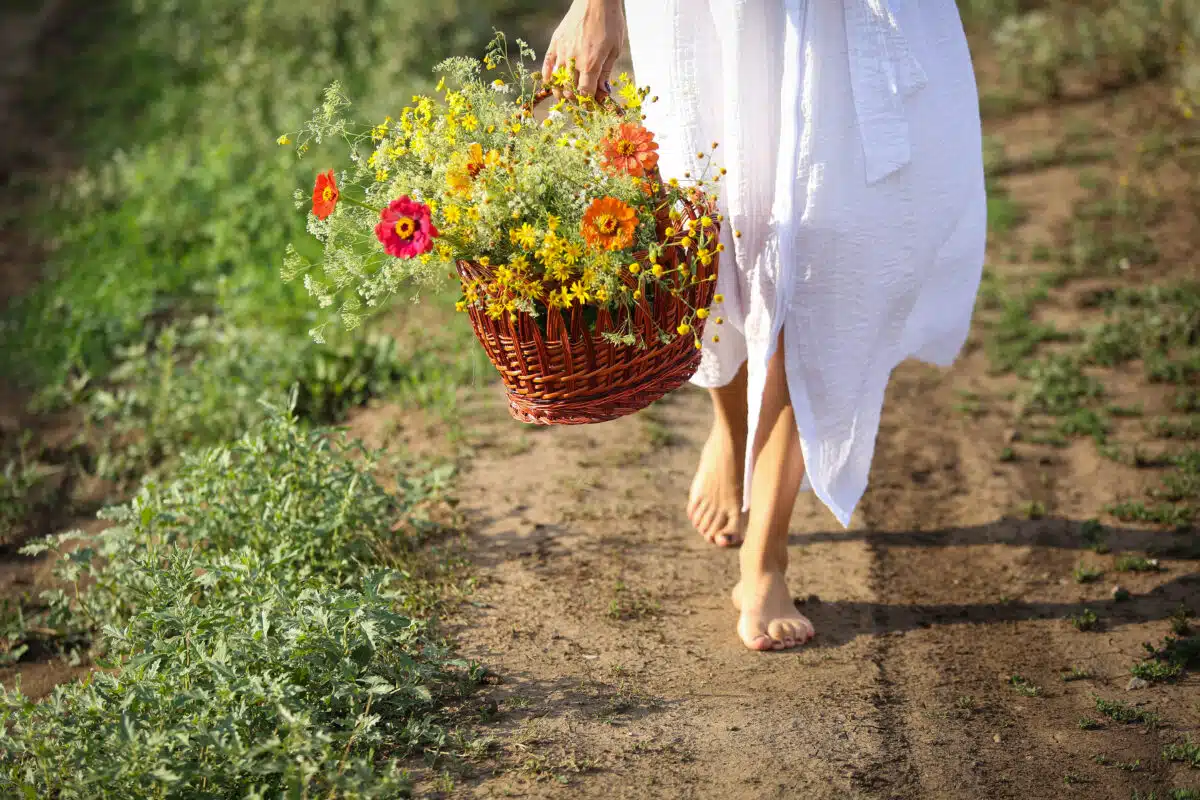
“Spring Flowers” by John Clare
Bowing adorers of the gale,
Ye cowslips delicately pale,
Upraise your loaded stems;
Unfold your cups in splendour; speak!
Who decked you with that ruddy streak
And gilt your golden gems?
Violets, sweet tenants of the shade,
In purple’s richest pride arrayed,
Your errand here fulfil;
Go, bid the artist’s simple stain
Your lustre imitate–in vain–
And match your Maker’s skill.
Daisies, ye flowers of lowly birth,
Embroiderers of the carpet earth,
That stud the velvet sod,
Open to Spring’s refreshing air,
In sweetest smiling bloom declare
Your Maker and your God.
“Spring” by H. P. Nichols
I am coming, I am coming,
With my carpet soft and green;
I have spread it o’er the common,
And a prettier ne’er was seen.
Soon I’ll spangle it with clover,
And the dandelions bright;
You shall pick them in your aprons,
Yellow, red, and snowy white.
I am coming, and the tree-tops,
That all winter were so bare,
You shall see, with small leaves covered,
Wave their branches in the air.
I am coming! Little children,
Can you tell me who am I?
If not, you will soon remember,
For I’m just now passing by.
“The Flower-Angels” by George MacDonald
Of old, with goodwill from the skies—
God’s message to them given—
The angels came, a glad surprise,
And went again to heaven.
But now the angels are grown rare,
Needed no more as then;
Far lowlier messengers can bear
God’s goodwill unto men.
Each year, the snowdrops’ pallid dawn
Breaks from the earth below;
Light spreads, till, from the dark updrawn,
The noontide roses glow.
The snowdrops first—the dawning gray;
Then out the roses burn!
They speak their word, grow dim—away
To holy dust return.
Of oracles were little dearth,
Should heaven continue dumb;
From lowliest corners of the earth
God’s messages will come.
In thy face his we see, O Lord,
And are no longer blind;
Need not so much his rarer word,
In flowers even read his mind.
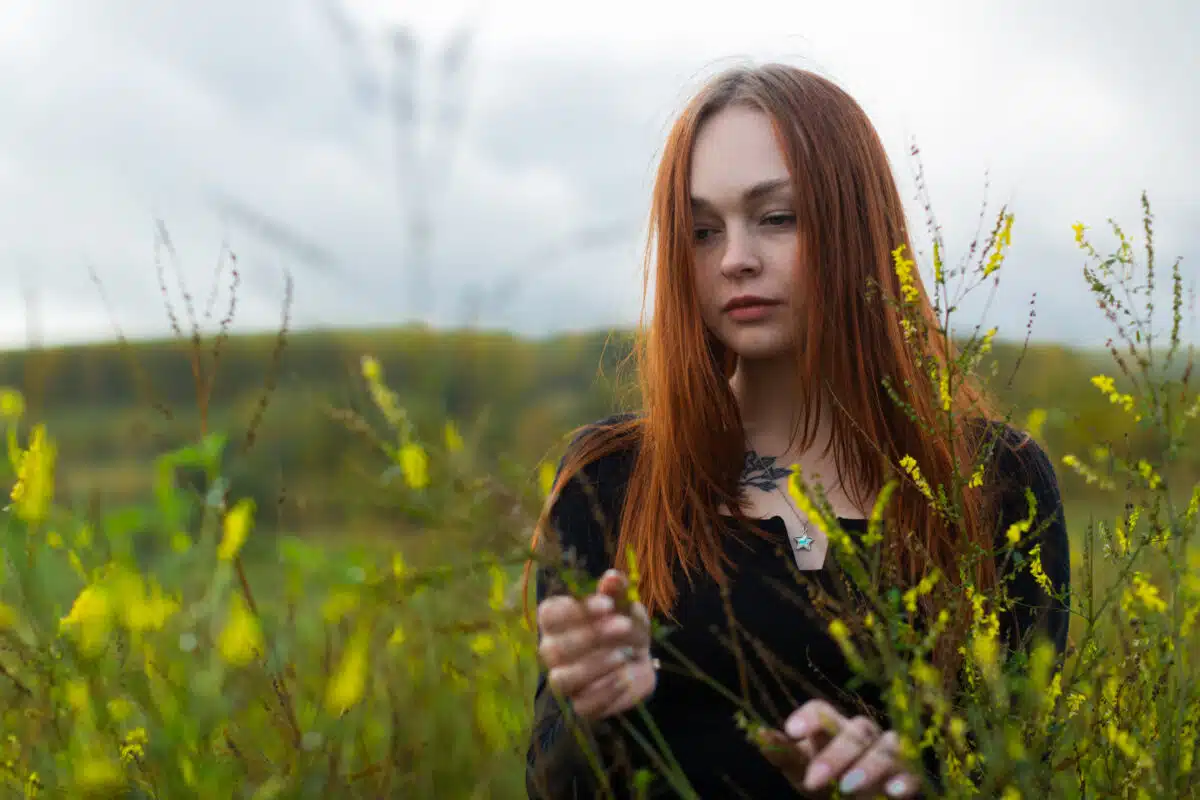
“A Dream Shape” by Madison Cawein
With moon-white hearts that held a gleam
I gathered wildflowers in a dream,
And shaped a woman, whose sweet blood
Was odor of the wildwood bud.
From dew, the starlight arrowed through,
I wrought a woman’s eyes of blue;
The lids that on her eyeballs lay
Were rose-pale petals of the May.
Out of a rosebud’s veins I drew
The fragrant crimson beating through
The languid lips of her, whose kiss
Was as a poppy’s drowsiness.
Out of the moonlight and the air
I wrought the glory of her hair,
That o’er her eyes’ blue heaven lay
Like some gold cloud o’er dawn of day.
“Response” by Madison Cawein
There is a music of immaculate love,
That beats within the virginal veins of Spring,—
And trillium blossoms, (like the stars that cling
To fairies’ wands;) and, strung on sprays above,
White-hearts and mandrake blooms, (that look enough
Like the elves’ washing—white with laundering
Of May-moon dews;) and all pale-opening
Wildflowers of the woods are born thereof.
There is no sod Spring’s white foot brushes but
Must feel the music that vibrates within,
And thrill to the communicated touch
Responsive harmonies, that must unshut
The heart of Beauty for Song’s concrete kin,
Emotions—that are flowers—born of such.
“Wild Flowers” by Anne Pratt
Why is it that I love the flowers
That grow in woods, and lanes, and fields
Better than all the glowing ones
The richly cultured garden yields?
Why is it that the daisy has
A charm for me, all flowers above;
Or why the hawthorn’s fragrant breath,
More than the myrtle’s do I love?
The cuckoo- flower and hyacinth,
These blossoms of each woodland wild, —
The primrose and anemone,
0, I have prized them from a child!
And still the odours that arise
From clusters of the wild woodbine,
Are sweeter, lovelier to me,
Than scent of Eastern jessamine.
And yet the flowers I prize so much!,
Than cultured flowers are not more sweet,
And they are withered sooner far,
Than those we in the garden meet
Their colours are not half so gay
As tints of flowers from far -off land,
From isle of Greece, or Indian grove,
Nurtured by man with careful hand.
But meadow flowers bring lo my mind
The thoughts of pleasant days gone by,
When with my sisters , hand in hand,
We roamed beneath the summer sky;
And twined a garland for our hats,
Of blossoms from each bush around,
And linked the daisies into chains,
And culled the cowslips from the ground
And then I love the field flowers, ‘ too,
Because they are a blessing given
Ev’n to the poorest little one,
That wanders ‘ neath the vault of heaven;
The garden flowers are reared for few ,
And to those few belong alone :
But flowers that spring by vale or stream ,
Each one may claim them for his own.
The rich parterre is walled around,
But meadow lands stretch far and wide,
And we may gather lovely flowers
For miles along the river side ;
And far amidst the landscape wild ,
Wander the scenes of beauty o’er,
Now lingering in the violet glen ,
Now roaming on the thymy moor.
Or pause where foam – like meadow queen,
Scatters her blossoms on the lake
Or where the Orchis blooms among
The lady – fern or feathery brake :
Or sit beside the winding path
Bordered by ripening wheat or oat,
When on the gentle summer air
The poppy’s crimson banners float.
And O, I joy as Spring comes round,
Flinging her scent o’er glen and hill
For though I love the garden flowers
I love the wild buds better still .
‘Then let me stray into the fields,
Or seek the green wood’s shady bowers,
Marking the beauties and the scents,
Of simple blossoms-sweet wild flowers.
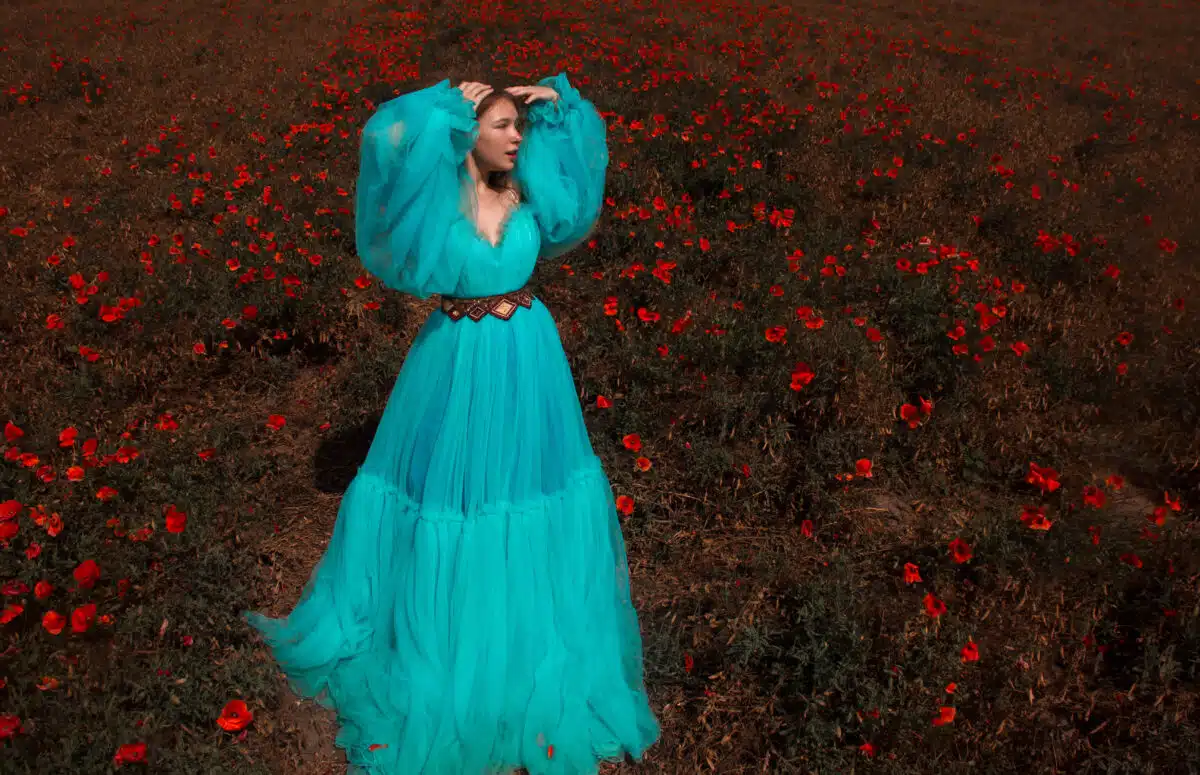
“Decision of the Flower” by L. E. Landon
And with scarlet poppies, around like a bower.
The maiden found her mystic flower,
“Now , gentle flower, I pray thee tell
If my lover loves me, and loves me well:
So may the fall of the morning dew
Keep the sun from fading thy tender blue,
Now I number the leaves for my lot
He loves not-he loves me he loves me not
He loves me—yes, thou last leaf, yes
l’ll pluck thee not for the last sweet guess!
He loves me! “—”Yes,” a dear voice sigh’d,
And her lover stands by Margaret’s side.
“The Alpine Violet” By Byron
The spring is come, the violet’s gone,
The first-born child of the early sun;
With us she is but a winter flower,
The snow on the hills cannot blast her bower,
And she lifts up her dewy eye of blue,
To the youngest sky of the self -same hue.
But when the spring comes with her host
Of flowers, that flower, beloved the most,
Shrinks from the crowd, that may confuse
Her heavenly odors and virgin hues.
Pluck the others, but still remember
Their herald out of dire December;
The morning star of all the flowers,
The pledge of daylight’s lengthened hours:
And ’mid the roses ne’er forget
The virgin, virgin violet.
“Snow-Drops” by Kate Seymour Maclean
Dimly and dumbly under the ground,
Groping the walls of their prison round,
The roots of the aged and garrulous trees
Are sending electrical messages
From the under-world to the world without
And quickening pulses that course in each
Fettered and bound and frozen thing,
Rootlets that tremble, and fibres that reach
Are pushing inanimate fingers out,
To ask further inarticulate speech
For tidings of Spring
And the fine invisible sprite which dwells
In cups and discs, in blossoms and bells,
Fleeter than Ariel’s wing hath flown
Beyond this cloudy and frozen zone,
To the summer land of the South,
Beyond those rugged sentinels
Which winter seta in the snow-capped hills,
From the breath of whose cruel mouth,
Sighing, the leaves in forest and wold,
Shivered and died in the nights a’cold,
Died and were buried under the snow,
Long moons ago.
Now over the tropic’s broad ellipse
The sprite hath passed, as fleet and fast
As the light of falling stars, that cast
A sudden radiance and eclipse;
And all the buds that are folded close
As the inner leaves of an unblown rose,
In bulb, or cone, or scale, or sheath,
And sealed with the odorous gums that breathe
Like the breath of the singing and sighing pine,
When the dews are falling at evening time,
Through cone, and sheath, and bulb, and scale–
Tremble, and cry All hail!
And look where a rosier beam hath cleft
The damp and fragrant-smelling earth,
A handful of snow-drops peeping forth;
As if King Winter had dropped and left–
Stumbling and tripping the steep hills down–
Had clutched his robe and dropped his crown:
Or as if the very snow had power,
Out of itself to fashion a flower;
So vase-like, slender, and exquisite,
Like an alabaster lamp alit,–
And shining with a sea-green light,
As if it had but newly come
Up from some subterranean palace,
The haunt of fairy or of gnome,
With its waxen taper still alight,
And beaming in its leafy chalice,
That lit the revellers down below,
When the nights were long, and the moon was low
You might have heard, far-off and sweet,
The sound of the elfin revelries,
Like a bugle strain blown over seas,
And the patter and beat of dancing feet,–
If you had been like me awake,
What time the Great Bear seems to shake,
Down through the trackless realms of air,
Frost-lances from his shaggy hair;
And all around–beneath–across,
The round globe lies stabbed through with frost.
Now the touches of the sun,
Like some potent alchemist,
In heat and dews, in rain and mist,
As in a subtle menstruum,
Hath dissolved the icy charm,
And laid on that cold breast of hers,–
Nature’s breast–that faintly stirs,
With his fragrant kisses warm,
Sweet as myrrh and cinnamon,–
Snow-drops, spring’s bright harbingers,
First-born children of the sun.
Like a sudden burst of leaf and bloom,
The sun shines redly through the gloom,
And the wind with its many melodies
Hath a murmurous sound like the noise of bees,
Singing and humming,–blowing and growing,
Of springing blade, and of fountain flowing;
And night and silence under the ground
Listen–and thrill–and move to the sound,
And answer, Spring is coming!
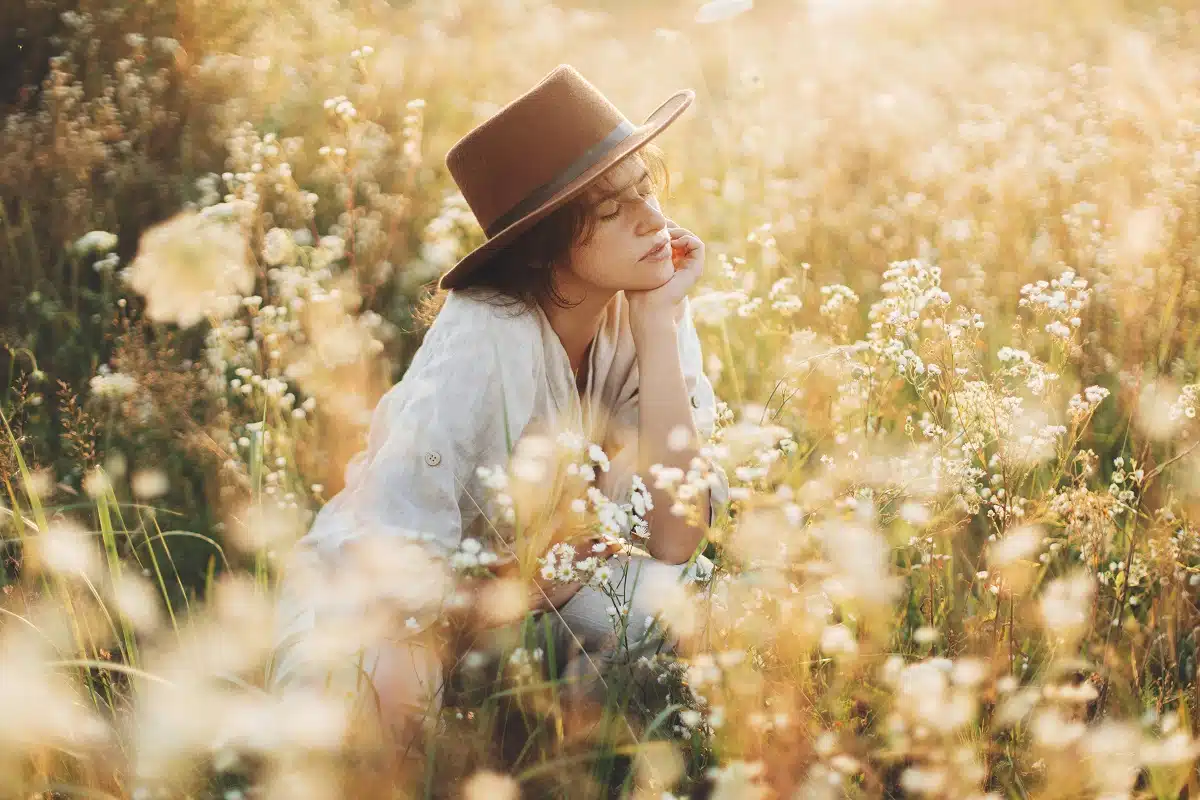
“The Eyebright” by John Harris
How profuse are Nature’s wonders!
Down where foaming water thunders,
In where shady woods are quiet,
Out where boisterous billows riot,
Up where wild winds toss and tumble,
Forth where rolling cataracts rumble;
Back where boulders bind the bushland,
Forth where lichens line the rushland;
Here where glow -worms shine and glitter,
In the lanes where linnets twitter,
On the heights and in the hollows,
Where the wakeful echo follows;
In the fields and by the fountain,
Down the moorland, up the mountain;
By the byeways, dikes, and ditches;
Out where wave the hazel switches,
Where the golden furze – bloom blazes,
Where are ranked the snowy daisies;
Where the lambkins dance and amble;
Where the angler loves to ramble;
Everywhere Divinely showing
Nature’s wonders, glory- glowing.
Thus the eyebright pale and lowly
On the cliff-side groweth slowly,
Studs the short grass of the mountain,
Blossoms by the silver fountain,
Gives its glow to districts stalky,
Shows its green in regions chalky;
And bedecks the land with wonder
Down where foaming waters thunder.
“The Fairies Dancing” by Walter De la Mare
I heard along the early hills,
Ere yet the lark was risen up,
Ere yet the dawn with firelight fills
The night-dew of the bramble-cup,—
I heard the fairies in a ring
Sing as they tripped a lilting round
Soft as the moon on wavering wing.
The starlight shook as if with sound,
As if with echoing, and the stars
Prankt their bright eyes with trembling gleams;
While red with war the gusty Mars
Rained upon earth his ruddy beams.
He shone alone, adown the West,
While I, behind a hawthorn-bush,
Watched on the fairies flaxen-tressed
The fires of the morning flush.
Till, as a mist, their beauty died,
Their singing shrill and fainter grew;
And daylight tremulous and wide
Flooded the moorland through and through;
Till Urdon’s copper weathercock
Was reared in golden flame afar,
And dim from moonlit dreams awoke
The towers and groves of Arroar.
“The Bryony” by John Harris
The fields are full of Nature’s tender
teaching,
Fraught with profoundest lore,
And every wild flower has a voice beseeching
Man to revolt no more.
The summer sounds among the branches stealing,
Half jealous of release,
The wind, the rain , the solemn midnight pealing,
Are whispering words of peace.
In the green hedgerows, where the lanes are narrow ,
None speak to man more free,
Where chirps the wren , and cheers the noisy sparrow ,
Than the wild bryony
It makes a temple of the hawthorn hoary, a
And where the alder bends ;
And its red berries tell their autumn story
When the swift rain descends.
For ever curling and for ever clinging,
Still murmuring lays of peace ;
And bidding man, while months and years are
winging
To climb, and never cease.
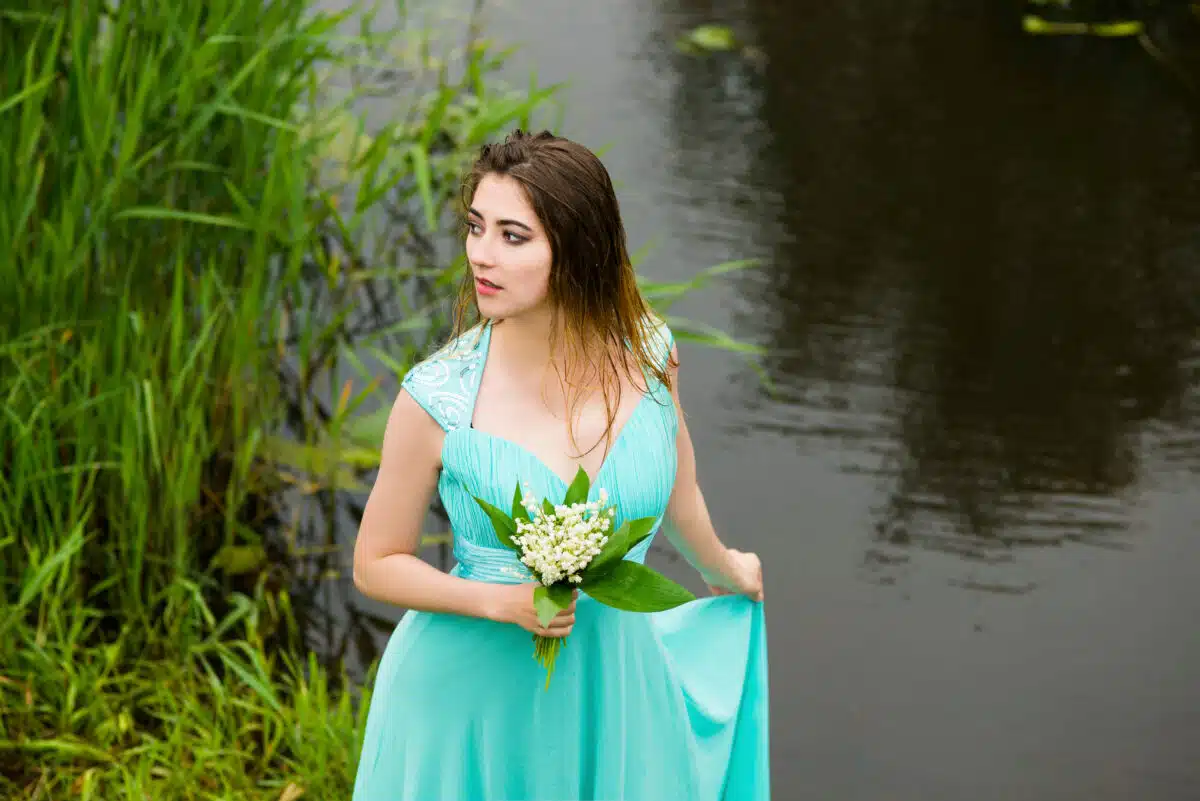
“The Lily of the Valley” by John Harris
Sweet the echo ringeth ,
Lily of the Vale
As it slowly springeth
In the wooody dale,
Fairer than a princess in a maiden’s tale.
Wave the trees above it
Like the sound of strings;
All the breezes love it,
Where the throstle sings,
Kissing off its odours with their silver wings.
Where the wood -dove hummeth
By the waterfall,
There the Lily cometh,
Like a seraph’s call,
With the tale of summer and a love for all.
Blooming by the angle
Where the waters run,
And the stonecrops spangle
Many a crevice dun,
How it loves the shadow as it loves the sun!
Evermore it lendeth
Beauty to the scene,
Whilst to earth it bendeth
In its bower of green ,
Teaching man how fatal on himself to lean.
Sorrow loves the Lily
Pensiveness and woe,
In the covert stilly,
Where the runnels flow,
Andthe twilight glimmers through the woodbine low.
In the morn’s full glory,
In the evening’s calm ,
It has still the story
Of a higher balm ,
Of a sweeter fragrance, of a loftier psalm.
Sweetest thoughts are blending
With its snowy bells,
Bright with blossoms bending
Over Eden wells,
Where the angels mingle in the golden dells.
One thought, like the morning,
Makes all others pale ;
Bright with truth’s adorning,
Which we joy to hail:
Christ is called for ever lily of the vale.
“The Holly” by John Harris
The day is lovely. Sunshine fills the
laurel,
And hangs upon the stream ,
Where the forget- me-not and the
wood – sorrel
In golden grandeur gleam.
The crowds are out, clad in their gayest dresses,
Thronging the dusty street;
Whilst I am here, where Nature’s self caresses
Her favourites at my feet.
I always loved the chambers of the dingle,
Where roses long have blown ,
More than great squares , where pride and penury
mingle
By walls of brick and stone.
So, when the dainty May is out a -budding,
The holly has its gem ,
In snowy coronals the green boughs studding,
Like wax upon its stem .
And here, to Christmas berries slowly turning,
They hang above the flood ,
Until they are in crimson glory burning,
The beauty of the wood.
“The Wild Thyme” by John Harris
Daughter of the downland,
Sister of the moss,
Scion of the brownland,
Dweller of the fosse,
Where the rock is riven, where the lichens cross!
In the solemn gloaming,
When the earth is still,
And the water foaming
Rusheth past the mill,
Come the angels walking o’er the Thymy hill.
By their mounds of sweetness,
In the fragrant dew,
Perfect in their meetness,
Shine before the view
Footsteps of the seraphs ever bright and new .
When the moon is shining
On the silver mere,
Angel groups reclining
Rest in silence here,
And their white wings tremble o’er the thyme
banks dear.
Every poet greets it
As his favourite child ,
Singing, as he meets it
On the fragrant wild,
Sweeter songs and stronger for its presence mild.
Solemnly it springeth
On the sounding moor ,
Where the skylark singeth
Till the day is o’er,
And a thousand voices haunt the sedgy shore.
Chiefly it enchaineth ,
Where on banks it blows,
And its perfume raineth
Where the heather grows,
And from brier and bramble hangs the moorland
rose.
When light footsteps bruise it
Where the carn- sheep bleat,
Loving hearts will choose it
For its odour sweet,
Which increases ever ‘neath the traveller’s feet.
So the wild thyme singeth
Words in wisdom’s ear,
Though it often springeth
In a land severe,
Like a poet crooning in the darkness drear.
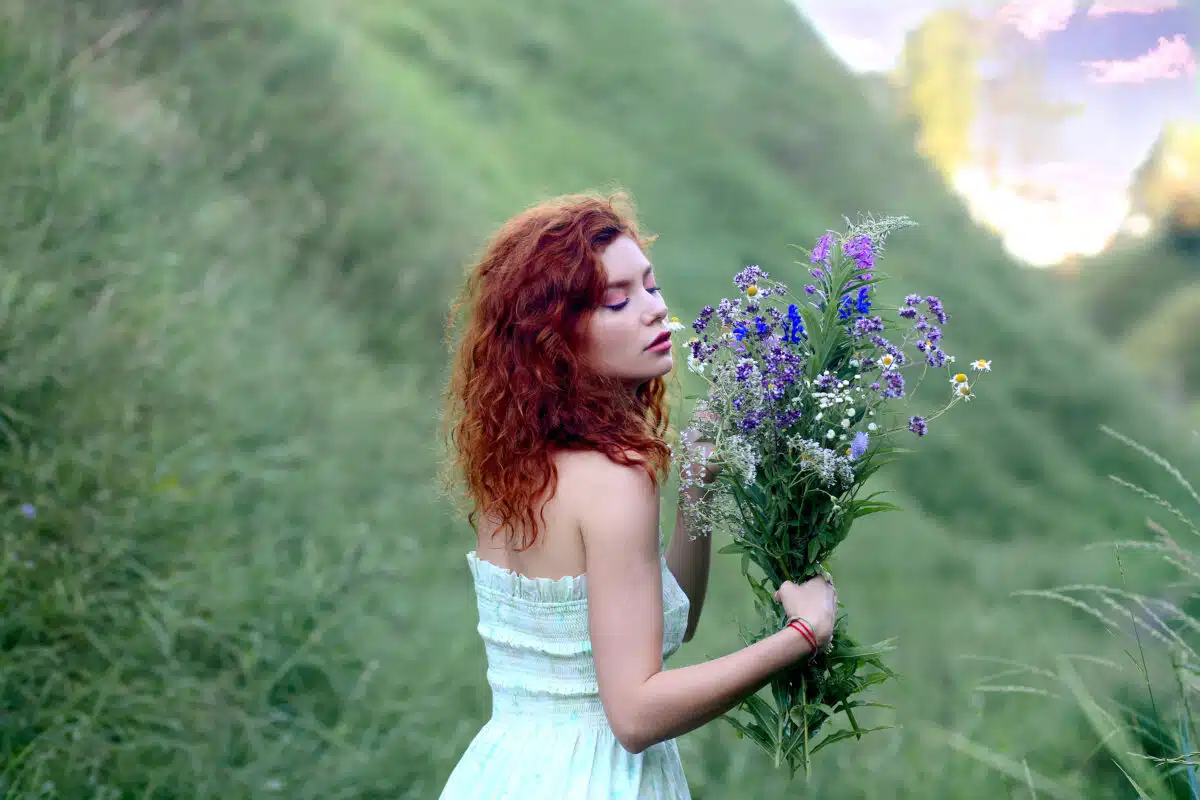
“Field Flowers” by Thomas Campbell
YE field flowers! the gardens eclipse you, ‘ tis true,
Yet, wildlings of nature, I doat upon you ;
For ye waft me to summers of old,
When the earth teemed around me with fairy delight,
And when daisies and buttercups gladdened my sight,
Like treasures of silver and gold.
I love you for lulling me back into dreams
Of the blue Highland mountains and echoing streams,
And of broken blades breathing their balm,
While the deer was seen glancing in sunshine remote,
And the deep mellow crush of the woodpigeon’s note
Made music that sweetened the calm.
Not a pastoral song has a pleasanter tune
Than ye speak to my heart, little wildlings of June:
Of old ruinous castles ye tell,
Where I thought it delightful your beauties to find,
When the magic of nature first breathed on my mind,
And your blossoms were part of her spell.
Even now what affections the violet awakes ;
What loved little islands, twice seen in their lakes,
Can the wild water-lily restore;
What landscapes I read in the primrose’s looks,
And what pictures of pebbled and minnowy brooks
In the vetches that tangled their shore.
Earth’s cultureless buds, to my heart ye were dear,
Ere the fever of passion or ague of fear
Had scathed my existence’s bloom;
Once I welcome you more, in life’s passionless stage,
With the visions of youth to revisit my age,
And I wish you to grow on my tomb.
“Wild Flowers” by Nicoll
BEAUTIFUL children of the woods and fields!
That bloom by mountain streamlets ‘ mid the heather,
Or into clusters ‘ neath the hazels gather
Or where by hoary rocks you make your bields,
Andsweetlyflourish on through summer weather
—I love ye all!
Beautiful flowers! to me ye fresher seem
From the Almighty hand that fashion’d all,
Than those that flourish by a garden-wall ;
And I can image you, as in a dream,
Fair, modest maidens, nursed in hamlets small
—I love ye all!
Beautiful gems ! that on the brow of earth
Are fixed as in a queenly diadem:
Though lowly ye, and most without a name,
Young hearts rejoice to see your buds come forth,
As light erewhile into the world came
—I love ye all!
Beautiful things ye are, where’er ye grow!
The wild red rose the speedwell’s peeping eyes:
Our own blue-bell-the daisy, that doth rise
Wherever sunbeams fall or winds do blow;
And thousands more, of blessed forms and dyes
—I love ye all!
Beautiful nurslings of the early dew!
Fann’d in your loveliness by every breeze,
And shaded o’er by green and arching trees:
I often wish that I were one of you, o
Dwelling afar upon the grassy leas
—I love ye all!
Beautiful watchers! day and night ye wake!
The evening star grows dim and fades away,
And morning comes and goes, and then the day
Within the arms of night its rest doth take ;
But ye are watchful wheresoe’er we stray
—I love ye all!
Beautiful objects of the wild bee’s love!
The wild-bird joys your opening bloom to see,
And in your native woods and wilds to be.
All hearts, to Nature true, ye strangely move;
Ye are so passing fair-so passing free
—I love ye all !
Beautiful children of the glen and dell
The dingle deep-the moorland stretching wide,
And of the mossy fountain’s sedgy side!
Ye o’er my heart have thrown a lovesome spell ;
And though the worldling, scorning, may deride
—I love ye all!
“The Sweet-Brier” by Brainard
OUR sweet autumnal western-scented wind
Robs of its odours none so sweet a flower,
In all the blooming waste it left behind,
As that the sweet-brier yields it; and the shower
Wets not a rose that buds in beauty’s bower
One half so lovely ; yet it grows along
The poor girl’s pathway, bythe poor man’s door.
Such are the simple folks it dwells among;
And humble as the bud, so humble be the song.
I love it, for it takes its untouched stand
Not in the vase that sculptors decorate;
Its sweetness all is of my native land;
And e’en its fragrant leaf has not ts mate
Among the perfumes which the rich and great
Buy from the odours of the spicy East.
You love your flowers and plants, and will you hate
The little four-leaved rose that I love best,
That freshest will awake, and sweetest go to rest?
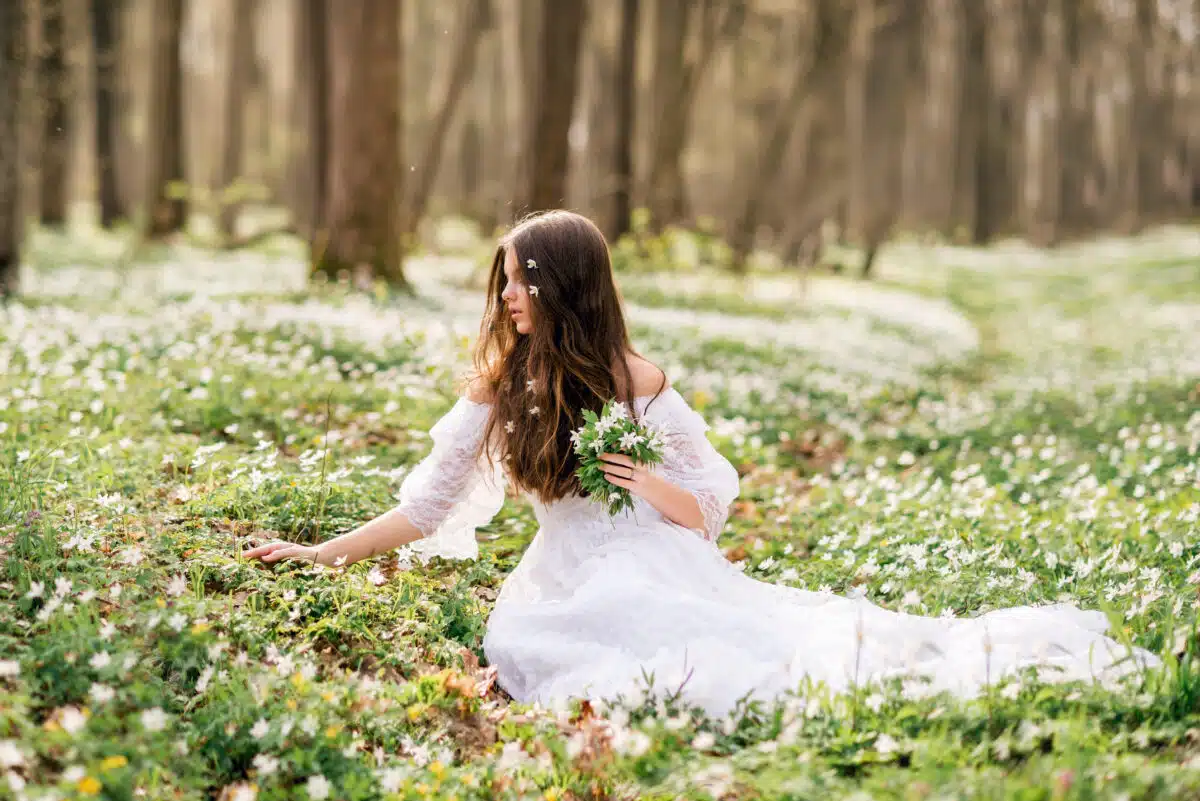
“The Primrose” by Nicoll
THE milk-white blossoms ofthe thorn
Are waving o’er the pool,
Moved by the wind that breathes along
So sweetly and so cool.
The hawthorn clusters bloom above,
The primrose hides below,
And on the lonely passer-by
A modest glance doth throw!
The humble primrose’ bonnie face
I meet it everywhere;
Where other flowers disdain to bloom,
It comes and nestles there.
Like God’s own light, on every place
In glory it doth fall:
And where its dwelling-place is made,
It straightway hallows all !
Where’er the green-winged linnet sings,
The primrose bloometh lone ;
And love it wins- deep love-from all
Who gaze its sweetness on.
On”field- paths narrow, and in woods,
We meet thee near and far,
Till thou becomest prized and loved,
As things familiar are!
The stars are sweet at eventide,
But cold, and far away;
The clouds are soft in summer time,
But all unstable they:
The rose is rich-but pride of place
Is far too high for me
God’s simple common things I love—
My primrose, such as thee!
I love the fireside of my home,
Because all sympathies,
The feelings fond of every day,
Around its circle rise.
And while admiring all the flowers
That summer suns can give,
Within my heart tho primrose sweet,
In lowly love doth live!
“The Bramble Flower” by Elliott
THY fruit full well the schoolboy knows,
Wild bramble of the brake!
So, put thou forth thy small white rose;
I love it for his sake.
Though woodbines flaunt and roses glow
O’er all the fragrant bowers,
Thou need’st not be ashamed to show
Thy satin-threaded flowers;
For dull the eye, the heart is dull,
That cannot feel how fair,
Amid all beauty beautiful,
Thy tender blossoms are!
How delicate thy gauzy frill!
How rich thy branchy stem!
How soft thy voice when woods are still,
And thou sing’st hymns to them;
While silent showers are falling slow,
And, ‘ mid the general hush,
Asweet air lifts the little bough,
Lone whispering through the bush!
The primrose to the grave is gone;
The hawthorn flower is dead;
The violet by the mossed gray stone
Hath laid her weary head;
But thou, wild bramble ! back dost bring,
In all their beauteous power,
The fresh green days of life’s fair spring,
And boyhood’s blossomy hour.
Scorned bramble ofthe brake! once more
Thou bidd’st me be a boy,
To gad with thee the woodlands o’er,
In freedom and in joy.
“Spring Blossoms” by Warton
MINDFUL of disaster past,
And shrinking at the northern blast,
The sleety storm returning still,
The morning hoar, the evening chill,
Reluctant comes the timid Spring:
Scarce a bee, with airy ring,
Murmursthe blossomed boughs around
That clothethe garden’s southern bound:
Scarce the hardy primrose peeps
From the dark dell’s entangled steeps:
O’er the field of waving broom
Slowly shoots the golden bloom:
And but by fits the furze-clad dale
Tinctures the transitory gale.
Scant along the ridgy land
The beans their newborn ranks expand;
The fresh-turned soil, with tender blades,
Thinly the sprouting barley shades;
Fringing the forest’s devious edge
Half-robed appears the hawthorn hedge;
Or to the distant eye displays,
Weakly green, its budding sprays.
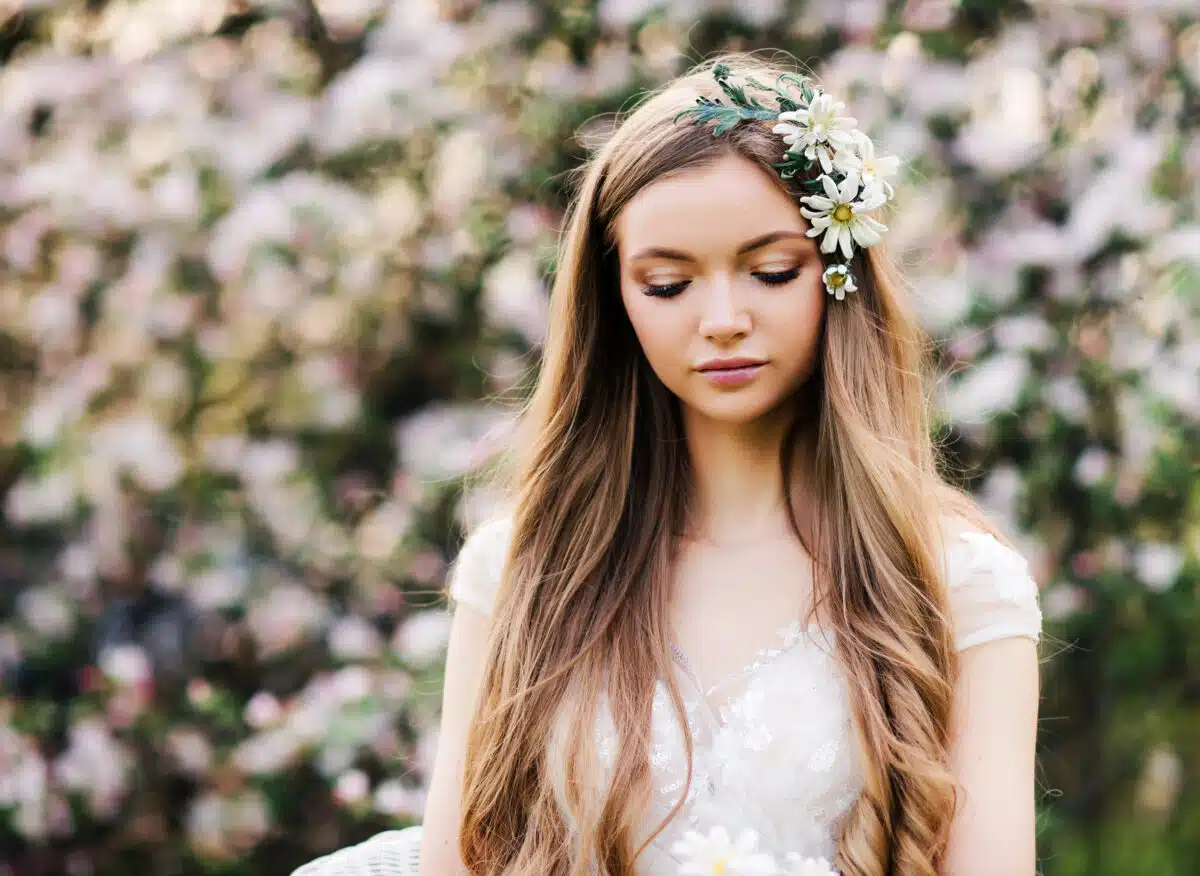
“Buttercups and Daisies” by Mary Howitt
BUTTERCUPS and Daisies,
Oh! the pretty flowers!
Coming ere the spring- time,
To tell of sunny hours.
While the trees are leafless,
While the fields are bare,
Buttercups and Daisies
Spring up everywhere.
Little hardy flowers,
Like to children poor,
Playing in their sturdy health
By their mother’s door;
Purple with the north wind,
Yet alert and bold,
Fearing not, and caring not,
Though they be a-cold.
What to them is weather?
What are stormy showers?
Buttercups and Daisies,
Are these human flowers!
Hewho gave them hardship,
And a life of care,
Gave them likewise hardy strength,
And patient hearts to bear.
Welcome, yellow Buttercups!
Welcome, Daisies white!
Ye are in my spirit
Visioned, a delight!
Coming ere the spring-time
Of sunny hours to tell;—
Speaking to our hearts of Him
Who doeth all things well.
“The Crocus” by Twamley
AND presently the Crocus heard
The greeting, and awoke,
And donned with care her golden robe
And emerald-coloured cloak;
And, springing from her russet shroud,
Stepped forth to meet the sun,
While broke the clouds with one bright glance,
And his jocund race begun.
The Crocus brought her sisters, too,
The purple, pied, and white,
And the redbreast warbled merrily
Above the flowerets bright.
Oh, the nightingale may love the rose,
And the lark the summer’s heather,
Buttherobin’s constantflowers come,
And brave the wintry weather.
“The Daisy” by Wordsworth
BRIGHT flower! whose home is everywhere,
Bold in maternal Nature’s care,
And all the long year through the heir
Of joy or sorrowMethinks that there abides in thee
Some concord with humanity,
Given to no other flower I see
The forest thorough!
Is it that man is soon deprest?
A thoughtless thing! who, once unblest,
Does little on his memory rest,
Or on his reason,
And thou would’st teach him how to find
A shelter under every wind,
Ahope for times that are unkind
And every season?
Thou wander’st the wide world about,
Uncheck’d by pride or scrupulous doubt
With friends to greet thee, or without,
Yet pleased and willing:
Meek, yielding to the occasion’s call,
And all things suffering from all,
Thy function apostolical
In peace fulfilling.
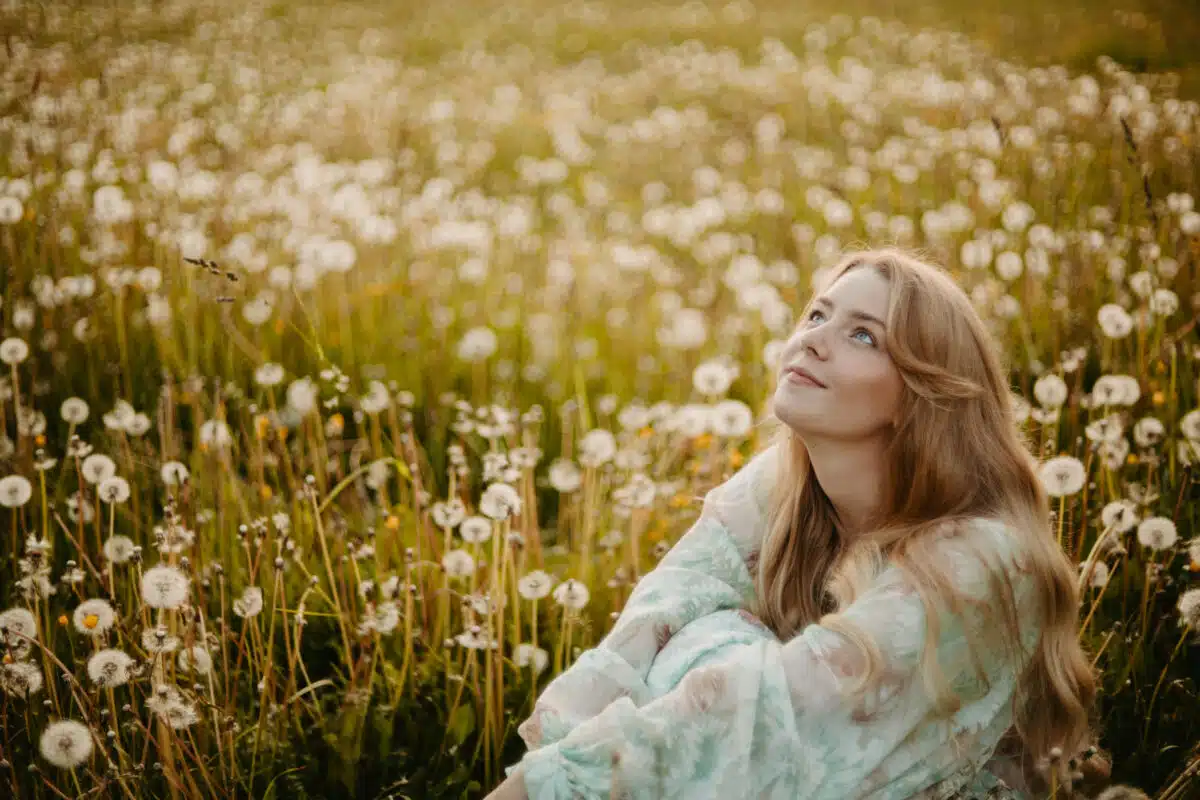
“The Dandelion” by Helen B. Bostwick
GAY little Dandelion
Lights up the meads,
Swings on her slender foot,
Telleth her beads,
Lists to the robin’s note
Poured from above:
Wise little Dandelion
Asks not for love.
Cold lie the daisy banks
Clothed but in green,
Where, in the days agone,
Bright hues were seen.
Wild pinks are slumbering;
Violets delay:
True little Dandelion
Greeteth the May.
Brave little Dandelion!
Fast falls the snow,
Bending the daffodil’s
Haughty head low.
Under that fleecy tent,
Careless of cold,
Blithe little Dandelion
Counteth her gold.
Meek little Dandelion
Groweth more fair,
Till dies the amber dew
Out from her hair.
High rides the thirsty sun,
Fiercely and high;
Faint little Dandelion
Closeth her eye.
Pale little Dandelion,
In her white shroud,
Heareth the angel-breeze,
Call from the cloud!
Tiny plumes fluttering
Make no delay!
Little winged Dandelion
Soareth away.
“Beautiful Lily” by Longfellow
BEAUTIFUL lily, dwelling by still rivers,
Or solitary mere,
Or where the sluggish meadow-brook delivers
Its waters to the weir.
Thou laughest at the mill , the whirr and worry
Of spindle and of loom,
And the great wheel that toils amid the hurry
And rushing of the flume.
Born to the purple, born to joy and pleasance,
Thou dost not toil nor spin,
But makest glad and radiant with thy presence
The meadow and the lin.
The wind blows, and uplifts thy drooping banner,
And round thee throng and run
The rushes, the green yeomen of thy manor,
The outlaws of the sun.
The burnished dragon-fly is thine attendant,
And tilts against the field,
And down the listed sunbeam rides resplendent
With steel-blue mail and shield.
Thou art the Iris, fair among the fairest,
Who, armed with golden rod
And winged with the celestial azure, bearest
The message of some God.
Thou art the Muse, who far from crowded cities
Hauntest the sylvan streams,
Playing on pipes of reed the artless ditties
That come to us as dreams.
O Flower-de-luce, bloom on, and let the river
Linger to kiss thy feet ;—
Oflower of song, bloom on, and make for ever
The world more fair and sweet.
“The Violet” by Jane Taylor
DOWN in a green and shady bed
A modest violet grew;
Its stalk was bent, it hung its head,
As if to hide from view.
And yet it was a lovely flow’r,
Its colours bright and fair;
It might have graced a rosy bow’r,
Instead of hiding there.
Yet there it was content to bloom,
In modest tints array’d;
And there diffused its sweet perfume,
Within the silent shade.
Then let me to the valley go,
This pretty flow’r to see;
That I may also learn to grow
In sweet humility.
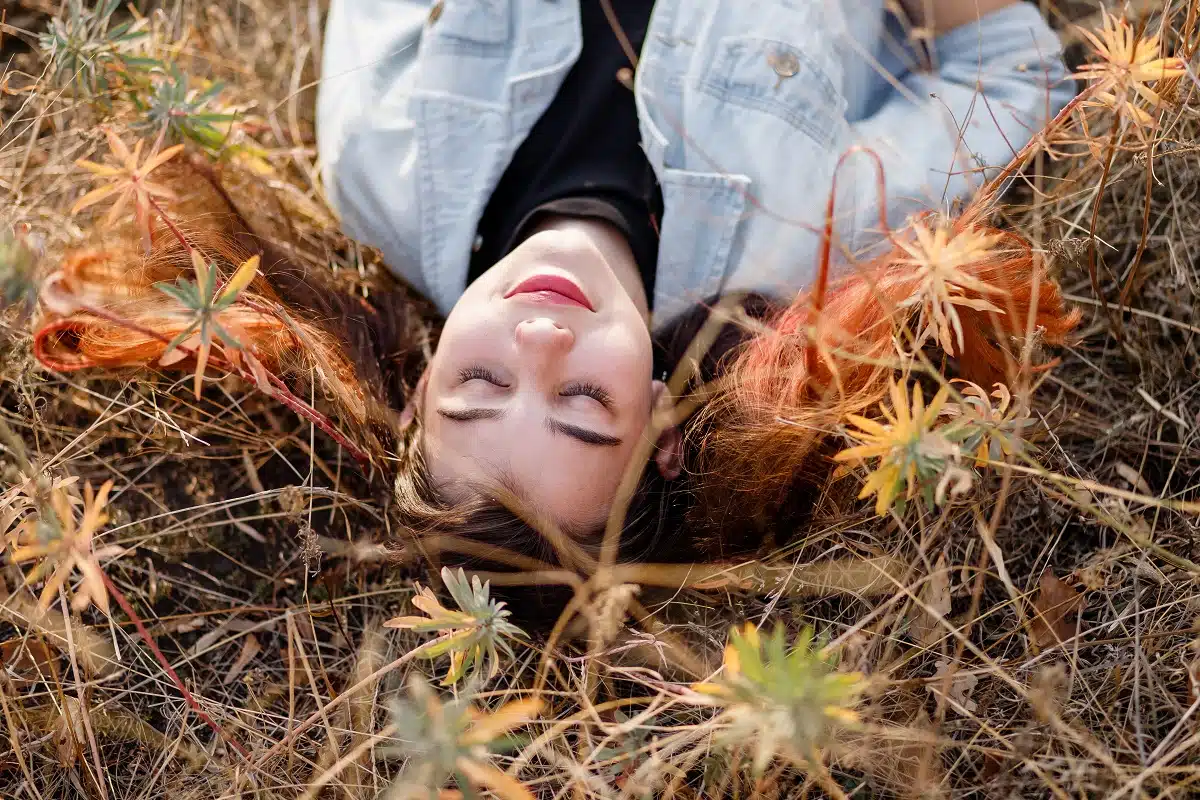
“Woods in Autumn” by Bryant
ERE, in the northern gale,
The summer tresses of the trees are gone,
The woods of autumn all around our vale
Have put their glory on.
The mountains that infold,
In their wide sweep, the coloured landscape round
Seem groups of giant kings, in purple and gold,
That guard the enchanted ground.
I roam the woods that crown
Theupland, where the mingled splendours glow,
Where the gay company of trees look down
On the green fields below.
My steps are not alone
In these bright walks; the sweet south-west at play,
Flies, rustling, where the painted leaves are strown
Along the winding way.
And far in heaven, the while,
The sun, that sends that gale to wander here,
Pours out on the fair earth his quiet smile, —
The sweetest of the year.
Where now the solemn shade,
Verdure and gloom where many branches meet;
So grateful, when the noon of summer made
The valleys sick with heat?
Let in through all the trees
Come the strange rays; the forest depths are bright;
Their sunny-coloured foliage, in the breeze,
Twinkles, like beams of light.
The rivulet, late unseen,
Where bickering through the shrubs its waters run,
Shines with the image of its golden screen,
And glimmerings of the sun.
But ‘neath yon crimson tree,
Lover to listening maid might breathe his flame,
Normark, within its roseate canopy,
Her blush of maiden shame.
Oh, autumn! why so soon
Depart the hues that make thy forests glad, —
Thy gentle wind and thy fair sunny noon, —
And leave thee wild and sad?
Ah! ‘ t were a lot too blessed
For ever in thy coloured shades to stray;
Amid the kisses of the soft south-west
To rove and dream for aye;
And leave the vain low strife
That makes men mad-the tug for wealth and power,
The passions and the cares that wither life,
And waste its little hour.
“The Strawberry-Blossom” by Wordsworth
THAT is work of waste and ruin―
Do as Charles and I are doing.
Strawberry-blossoms, one and all,
We must spare them-here are many :
Look at it -the flower is small,
Small and low, though fair as any :
Do not touch it ! summers two
I am older, Anne, than you.
Pull the primrose, sister Anne!
Pull as many as you can.
—Here are daisies, take your fill;
Pansies, and the cuckoo-flower:
Ofthe lofty daffodil
Make your bed, or make your bower;
Fill your lap, and fill your bosom ;
Only spare the Strawberry-blossom !
Primroses, the spring may love them—
Summer knows but little of them :
Violets, a barren kind,
Withered on the ground must lie ;
Daisies leave no fruit behind
When the pretty flowerets die ;
Pluck them, and another year
As many will be blowing here.
God has given a kindlier power
To the favoured Strawberry-flower.
Hither soon as spring is fled
You and Charles and I will walk ;
Lurking berries, ripe and red,
Then will hang on every stalk,
Each within its leafy bower;
And for that promise spare the flower!
“Roses in the Bridal Garland” by Beaumont and Fletcher
ROSES, their sharp spines being gone,
Not royal in their smells alone,
But in their hue;
Maiden pinks, of odour faint,
Daisies smell-less, yet most quaint.
And sweet thyme true;
Primrose, first-born child of Ver,
Merry spring-time’s harbinger,
With her bells dim;
Oxlips in their cradles growing,
Marigolds on death-beds blowing,
Lark-heels trim;
All, dear Nature’s children sweet,
Lie ‘fore bride and bridegroom’s feet,
Blessing their sense!
Not an angel of the air,
Bird melodious or bird fair,
Be absent hence!
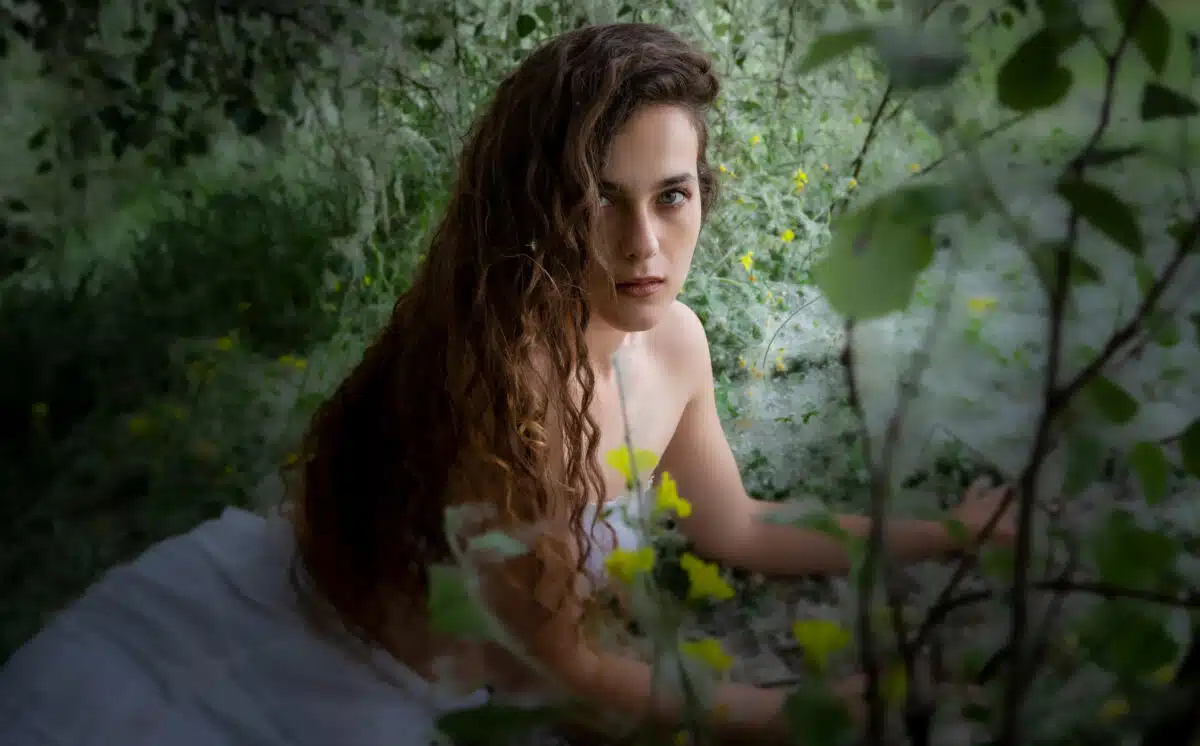
“The Primrose” by Robert Herrick
Ask me why I send you here
This sweet Infanta of the year?
Ask me why I send to you
This Primrose, thus bepearl’d with dew?
I will whisper to your ears,
The sweets of love are mixt with tears.
Ask me why this flower does show
So yellow-green, and sickly too?
Ask me why the stalk is weak
And bending, yet it doth not break?
I will answer, these discover
What fainting hopes are in a lover.
“The Primrose” by William Lisle Bowles
‘Tis the first primrose! see how meek,
Yet beautiful, it looks;
As just a lesson it may teach
As that we read in books.
While gardens show in flowering pride
The lily’s stately ranks,
It loves its modest head to hide
Beneath the bramble banks.
And so the little cottage maid
May bloom unseen and die;
But she, when transient flowerets fade,
Shall live with Christ on high.
Wildflower Poems
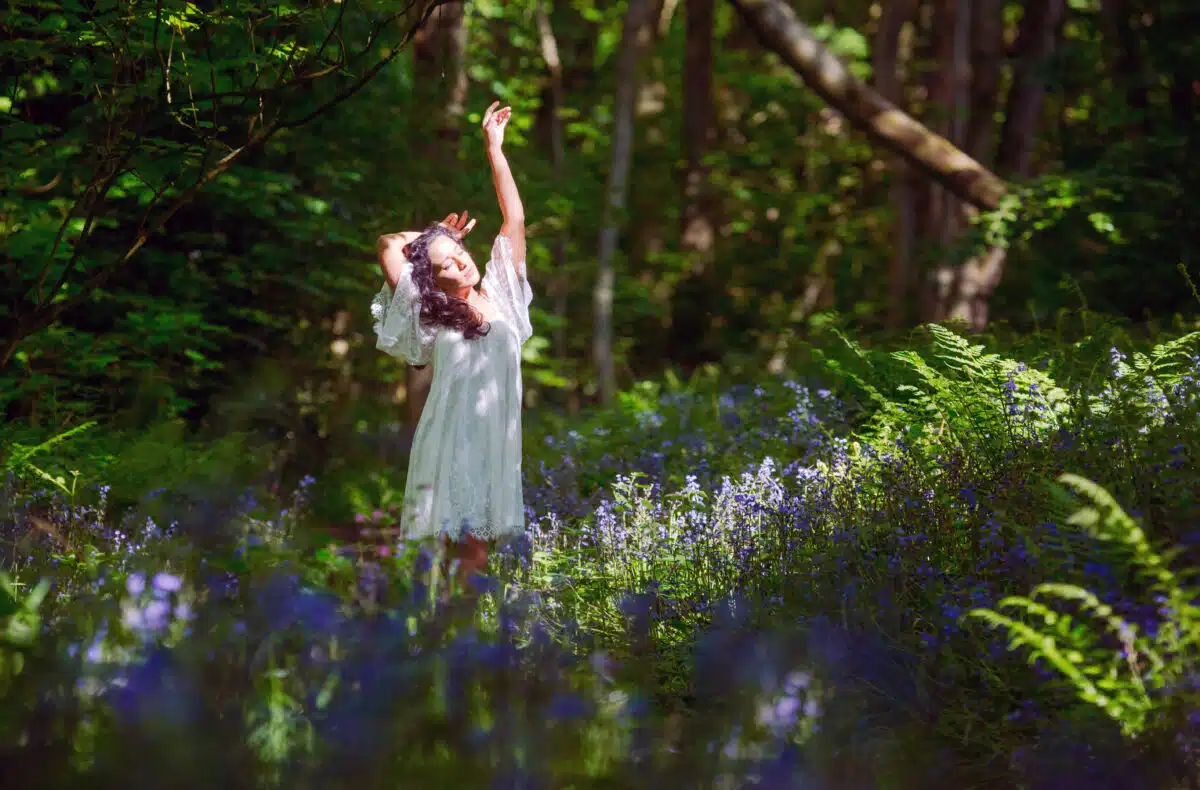
“The Bell Flower” by John Harris
We bring the pretty field – flowers to
our tables,
When winter’s gloom is fled ;
And often train them to the very
gables,
And strew them o’er our dead .
How many cherished ones are placed in roses
From bowers where waters pass,
With violets and other precious posies,
And laid beneath the grass!
The evening bells peal sweetly through the dingle
With music on the air,
And morning murmurs with the soft dews mingle ;
And yet they slumber there.
The cuckoo comes with his monotonous story
In many an odorous grot,
And buds of brightness deck the lowlands moory ;
And yet they waken not.
But they shall waken when the trumpet soundeth :
Even now they watch us here ;
And thus I love, where purple heath aboundeth,
The darling bell flower dear.
“Wood-Words” by Madison Cawein
III
The white ghosts of the flowers,
The gray ghosts of the trees,
Rise when the April showers,
And haunt the wildwood bowers,
And trail along the breeze:
The white ghosts of the flowers,
The gray ghosts of the trees.
Oft in the woodless places
I feel their dim control;
The wildflowers’ perished faces,
The great trees’ vanished races,
That meet me soul to soul:
Oft in the woodless places
I feel their dim control.
“The Bramble” by John Harris
He who prays most feels mostly Nature’s
wonders,
The visions of the vale ;
Hears the Eternal in the rolling thunders,
Or in the breezy dale .
The slenderest sapling of the mighty prairie,
The oak , the towering pine,
The shining mosses, dew- cups of the fairy,
Are gilt with Love Divine.
And hence the common BRAMBLE of the thicket,
Which blossoms in the lane,
Or by the stile, or near the woodland wickét,
Will oft his gaze enchain.
There is no coppice- covert deep and tangled,
No glen, or glade of gloom ,
No hedge, or height, with hardy heather spangled ,
Where brambles do not bloom .
1 Its snowy flowers are emblems of the holy,
Beloved from childhood bright ;
Yet oft esteemed not thus in garments lowly,
Though lovely as the light.
‘ Tis thus the wilds with melody are ringing,
The listening woods and ways ;
And Bramble -blossoms are for ever singing
To their Creator’s praise.
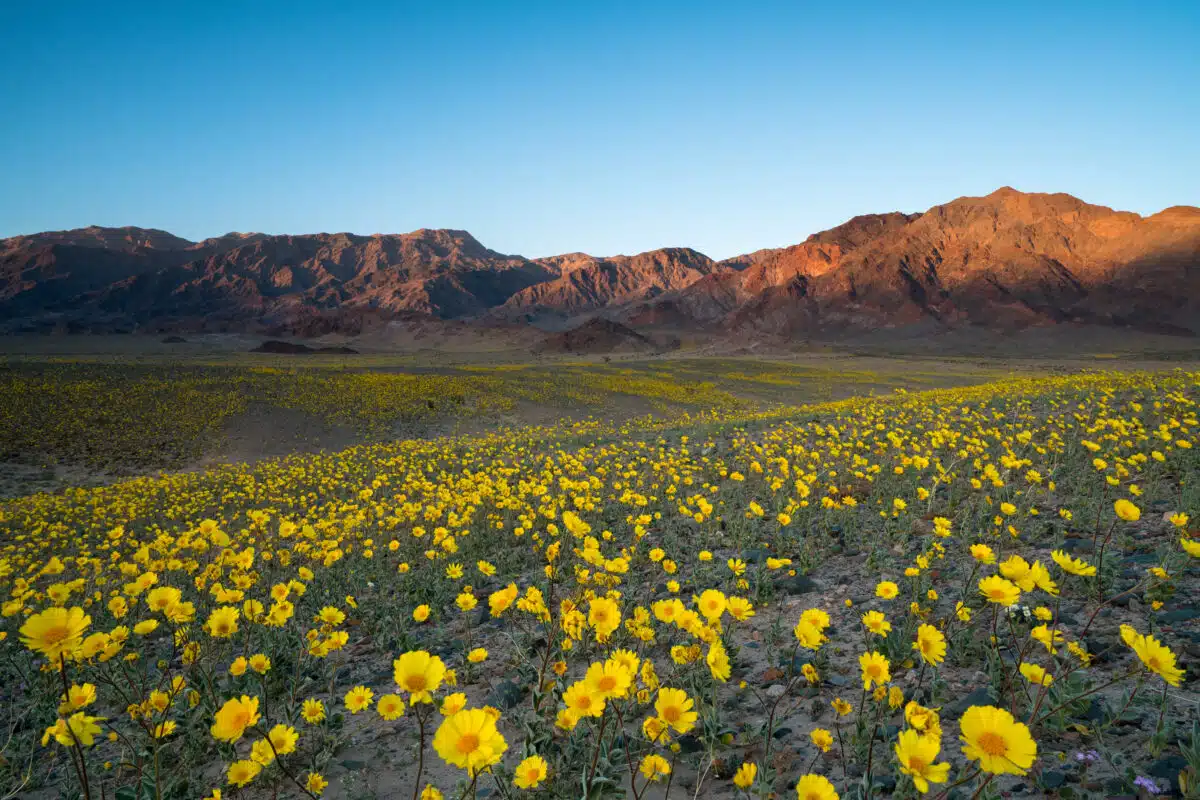
“The Age of Gold” by Madison Cawein
The clouds that tower in storm, that beat
Arterial thunder in their veins;
The wildflowers lifting, shyly sweet,
Their perfect faces from the plains,—
All high, all lowly things of Earth
For no vague end have had their birth.
Low strips of mist, that mesh the moon
Above the foaming waterfall;
And mountains that God’s hand hath hewn,
And forests where the great winds call,—
Within the grasp of such as see
Are parts of a conspiracy;
To seize the soul with beauty; hold
The heart with love: and thus fulfill
Within ourselves the Age of Gold,
That never died, and never will,—
As long as one true nature feels
The wonders that the world reveals.
“The Blue Bell” by John Harris
When the hedgerow primrose dieth,
And the brooklet wanes,
When the gentle south wind sigheth,
Then the blue bell reigns.
O’er their heads the swallow flitteth
In the quivering light,
Where the musing May-queen sitteth
‘Neath the hawthorn white.
How the odorous lowland shineth
Like a garden – bower,
Where the lily -nymph reclineth
By the ruined tower!
Waves of blue roll down the mountain,
Swell along the lea;
Waves of blue beside the fountain ,
Where the bright maids -be.
Waves of blue upon the hedges,
By the zephyr led;
Waves of blue press by the ledges,
Waves of blue o’erhead”
Waves of blue at every bending
Down the village way,
Where the thatcher’s song is blending
With the linnet’s lay:
Waves of blue, and sounds of singing,
Cheat the lazy hours;
Whilst their fairy bells are ringing,
” ‘Tis the time of flowers.”
Man may read man’s motives wrongly ;
Worth is prized by few :
Oft the meek is hampered strongly;
Oft the false deemed true.
Your Evangel ceaseth never
In the year’s warm youth;
Teaching man to cherish ever
Love, and hope, and truth.
“The Bindweed” by John Harris
As earth grows older, more sounds fill
the hollows
Than when our lives were young :
The crags have voices, whither float
the swallows ;
Each tree -top has a tongue.
The common flowers that gem the wayside hedges,
Or spring the brakes among,
Adorn the cliffs, and beautify the ledges,
Have all the sound of song.
The climbing bindweed, twining to the bramble,
Or to the woodbine lone,
Round whose pink bells the murmuring wild bees
ramble,
Speaks not to earth alone.
Like jets of music o’er the shining waters,
Whose banks the lilies line,
Where sweetly blossom Nature’s choicest daughters,
Float forth thy lays Divine.
And as at morn and eve thou fondly clingest
With an untiring will,
Who listens longest hears thee, as thou singest,
“Upward and upward still.”
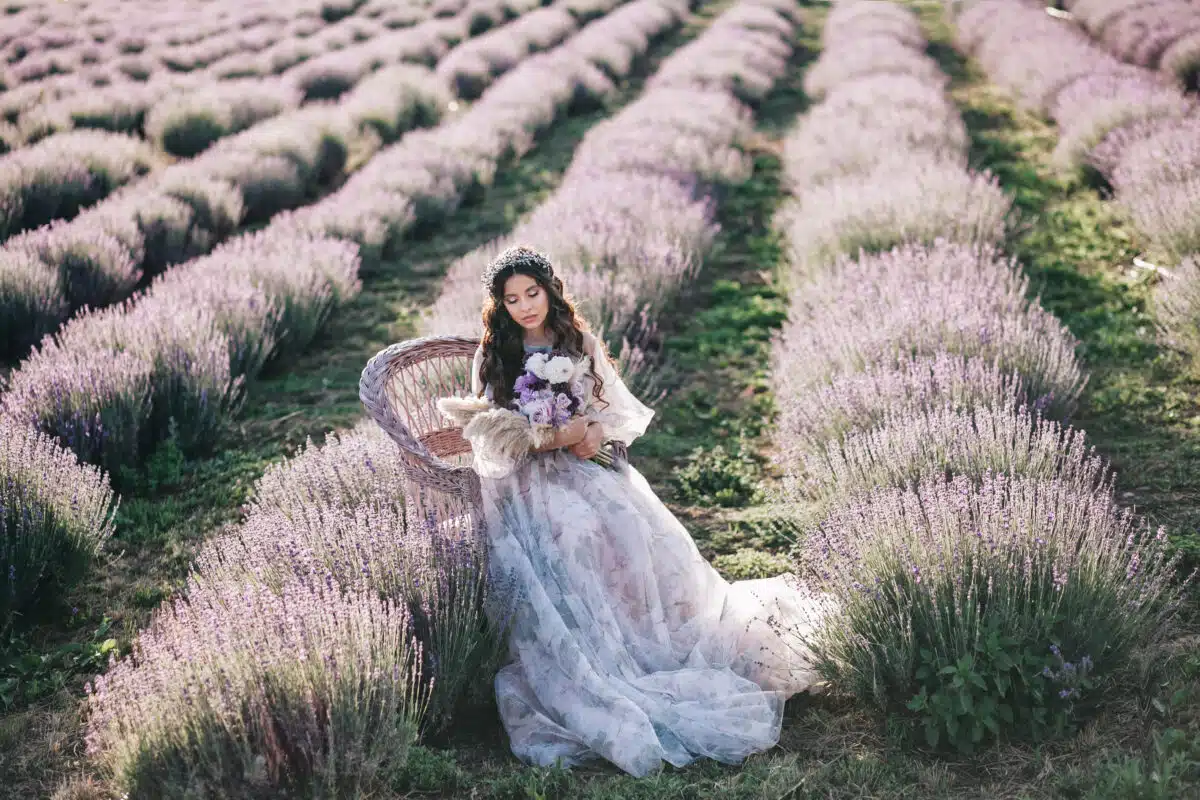
“Greeting” by Charles William Hubner
The brook, whose music charms the dell,
Wakes, in our dreaming minds,
An echo of the nobler shell
The mighty Sea-god winds ;
So may my harp, though faint and rude
The music of its strings,
Wake echoes of the True and Good
Of which the Master sings.
The Queen of Spring, who twines the rose
Around her golden-locks,
Smiles on the crocus in the snows,
The violet by the rocks;
Thus, though no rose of Poesy
Be in the wreath I wind,
I, in its place, would tender thee
These Wild Flowers of the mind.
“The Celandine” by John Harris
Right clumps of buttercups are in
the dingle,
Opening to kiss the sun ;
And primroses and virgin cowslips
mingle,
Where April waters run .
And the dear celandine is come to scatter
The clouds by Winter piled;
While in the trees the noisy rooks still chatter,
As if the woods were wild.
The fields are lovely with thy starry brightness,
Gone when the moon is up;
Tissuing the vales and hills with hallowed whiteness
Out by the harebell’s cup.
Nothing is vain in ravine or by river,
By fountain or by flood:
All is the bounty of the gracious Giver
For man’s especial good.
And so, dear celandine, a cheerful greeting
I fain would offer thee,
While hope and joy and youthful love are meeting,
Where Nature’s songs are free.
“Botany and Railway Banks” by James Rigg
The farmer turns his furrows o’er,
The cattle and the sheep must graze,
And fruity orchards, more and more
Do widen, in these sumptuous days:
Where shall I turn for wild-flower ways?
Death takes his acres, with no thanks,
And fainter falls the field flowers’ blaze :
There’s one rich band, where science clanks,
And Flora courts the Railway banks!
Here neither plough nor scythe can mar
The beautiful, the rich, the rare:
The floral gem, the living star,
The sweet- breathed, chafing Summer’s air!
At, just say fourteen miles-nae mair
As on the steel steed snorting spanks
On holidays I sit and stare
On one long garden; and my thanks
Ascend to heaven for Railway banks!
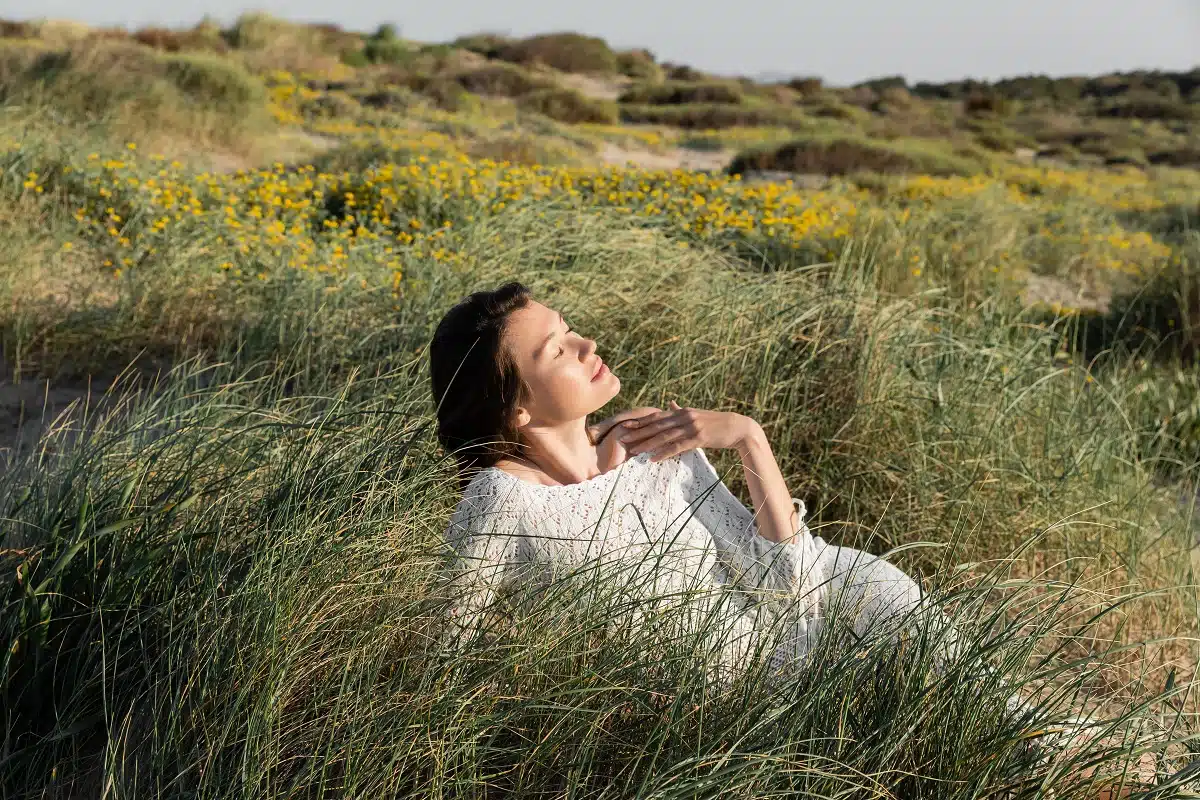
“The Cowslip” by John Harris
I have a holier sympathy with winds
and waters,
With the still glade and glen,
With flowers and blossoms, Nature’s
darling daughters,
Than with my fellow-men.
Hence when the Cowslip of the meadow cometh
Upon the southern lea,
And in the sun the toiling ploughboy hummeth,
I hasten forth to see:
On the low fence the gay stone- chat rejoices;
Young leaves glow in the light ;
And through the dells a hundred happy voices,
Are pouring forth delight.
Ye hang your yellow heads in modest meekness
From morn till shut of day,
With loving lessons of all human’ weakness
Passing your lives away .
And thus .ye answer your benign creation,
Earth -bending and sincere;
Asserting sweetly your Divine relation
To all things lovely here.
“The Daisy” by John Harris
A clamour on the cold highway
And through the haunts of life :
So let me once more turn away
From scenes of noise and strife,
To walk where waters murmur low
Amid the violets blue,
Where many tender wildings grow,
To muse awhile with you.
Thou shinest on the mountain side,
And in the valley deep;
Upon the mystic moorland wide,
And by the dungeon -keep,
High o’er the ponderous prison -bar,
But half-revealed to sight,
Outbeaming like a lovely star
Within the blue of night.
In garden plots thou hast thy home,
Where gorgeous flowers are piled,
And where the pilgrim’s footsteps roam
On boundaries weird and wild ,
To sun and rain for ever true,
Or by the brooklet’s wave,
Or underneath the solemn yew
Upon the maiden’s grave.
On boulder ridges rent and bare,
Or by the meadow streams,
O everywhere, O everywhere
The darling Daisy gleams :
In heat, in cold, when days are drear,
When skies are black or bright,
Charming the musing eye and ear
With lessons of delight.
Thy hues are painted by His hand
Who flung the rainbow’s form ,
Begirt with many a glittering band,
Athwart the driving storm.
In every line His love is seen,
In every shade His power :
Thy Maker shineth in thy mien,
Dear little daisy flower.
“The Wild Flowers” by F. J. Smith
Sweet wilding tufts, that ʼmid the waste
Your lowly buds expand;
Though by no sheltering walls embraced,
Nor trained by beauty’s hand:
The primal flowers which grace your stems,
Bright as the dahlias shine,
Found thus, like unexpected gems,
To lonely hearts like mine.
‘Tis a quaint thought, and yet, perchance,
Sweet blossoms, ye are sprung
From flowers that over Eden once
Their pristine fragrance flung;
That drank the dews of Paradise,
Beneath the starlight clear;
Or caught from Eve’s dejected eyes
Her first repentant tear.
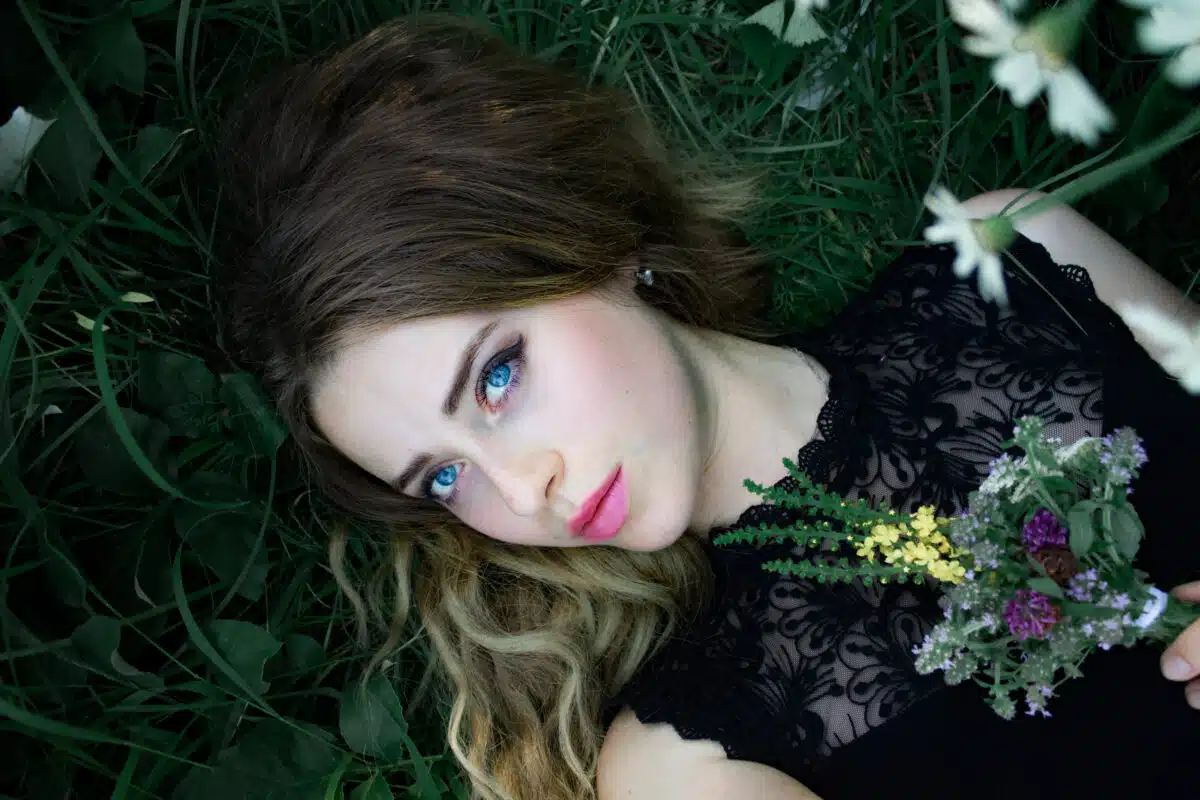
“The Dodder” by John Harris
O’er moor-paths musing,
when the twilight blended
With Eve’s bright bars of red,
Came a soft sound,
as the green rushes bended,
Awing-sweep overhead.
A wild bird’s wing across
the landscape sailing
Where airy phantoms roam,
Or tread the moonbeams
on long grasses trailing,
Seeking his mate and home.
Yes, seeking home,
as darkness gently falleth
Upon the moorland lake,
And the strange dodder,
where the fern – fay calleth ,
Clings to the lonely brake.
And well that wing through
twilight chambers sweeping
Reminded me of rest,
’ Neath some green hillock
with the willows weeping
And daisies o’er my breast.
Still by the red threads
of the dodder’s tangle,
Which float or fall or cling,
Or from the upland
prickly gorse-bush dangle,
I hear that wild bird’s wing.
If stranger hands might dare
A wild-flower wreath prepare,
The sweet enthusiastic’s hair,
Her flowing hair to bind
Oh! I would haste to bring
The violet of Spring,
Whose odours scent the wing
Of every passing wind.
Each flower that early blows,
The May-bough’s wreathed snows,
The wild- brier’s folded rose,
And woodbine’s fragrant bloom ;
The speedwell’s eye of blue,
Suffused with morning dew,
Should smilingly glance through
The tresses of the broom.
“The Violets Spring Song” by L.A. Twamley
Under the hedge all safe and warm,
Sheltered from boisterous wind and storm
We violets lie;
With each small eye
Closely shut while the cold goes by.
You look at the bank, ‘mid the biting frost,
And you sigh and say that we’re dead and lost;
But lady,stay
For a sunny day,
And you’ll find us again alive and gay .
On mossy banks, under forest trees,
You’ll find us crowding, in days like these;
Purple and blue,
And white ones too,
Peep at the sun and wait for you.
By maids and matrons, by old and young,
By rich and poor our praise is sung;
And the blind man sighs
When his sightless eyes
He turns to the spot where our perfumes rise.
There is not a garden the country through,
Where they plant not violets white and blue ;
By princely hall ,
And cottage small
For we’re sought, and cherished, and culled by all.
Yet grand parterres , and stiff-trimmed beds,
But ill become our modest heads;
We’d rather run,
In shadow and sun,
O’er the banks where our merry lives first begun.
There, where the birken bough’s silvery shine
Gleams over the hawthorn and frail woodbine,
Moss, deep and green ,
Lies thick, between
The plots where we violet-flowers are seen.
And the small gay Celandine’s stars of gold
Rise sparkling beside our purple’s fold:
Such a regal show
Is rare, I trow,
Save on the banks were violets grow.
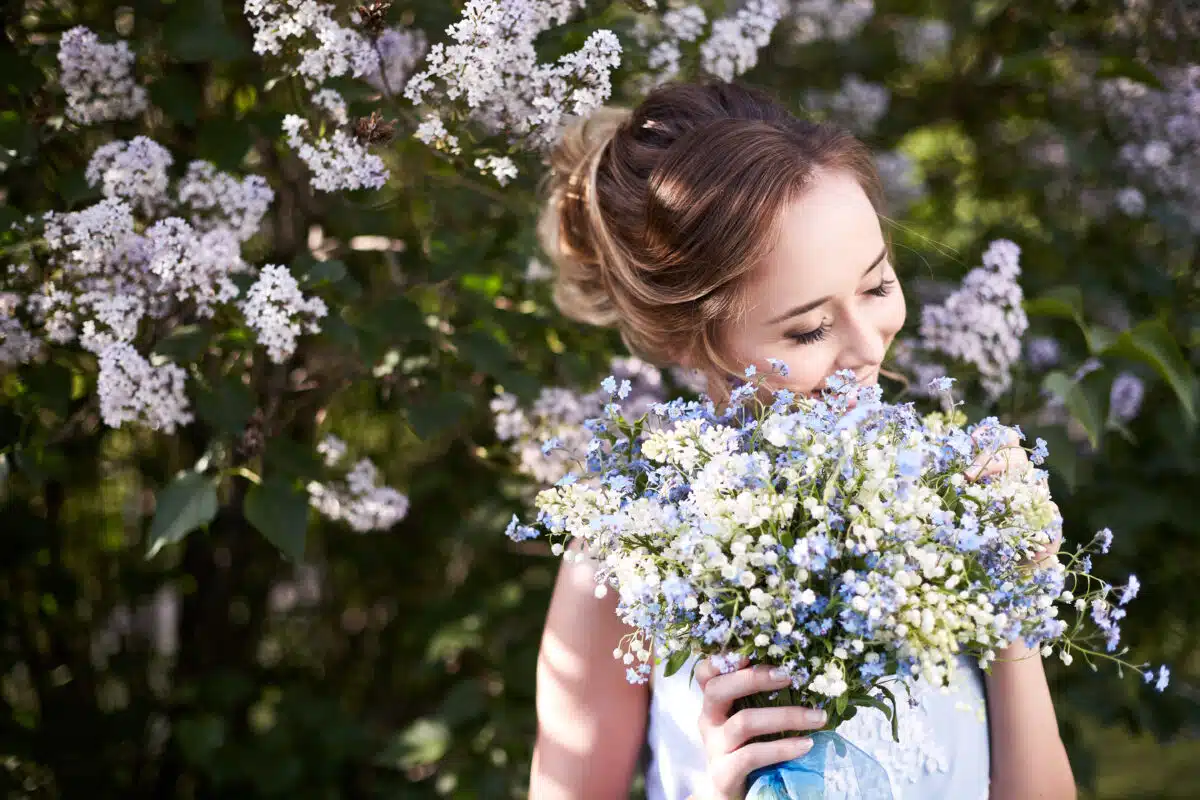
“The Forget-Me-Not” by John Harris
Here are tall wildings of the glen
abiding
A-near thèe neath the spray,
So that full often thou thy face art
hiding
Amid their colours gay.
And yet no name or look or line is sweeter,
No flower in fairy grot
For youthful bride or queenly hand is meeter,
Than the forget-me-not.
How beautiful thy simple modest blushes
Where the clear waters shine,
Murmuring their way among the emerald bushes
In many a silver line!
The eye of man is often won by coarseness,
By tinsel’s false degree,
By noisy cymbals cracked with utter hoarseness,
Whilst merit lies like thee.
So let me call thee my especial treasure,
Dear emblem of my lot!
Bringing to man thy share of simple pleasure,
Lowly forget-me-not.
“The Flower Girl” by Mrs. Corbold
Come buy, come buy my mystic flowers,
All ranged with due consideration,
And culled in fancy’s fairy bowers,
To suit each age and every station.
For those who late in life would tarry.
I’ve Snowdrops , winter’s children cold,
And those who seek for wealth to marry
May buy the flaunting Marigold.
I’ve Ragwort, Ragged Robins, too,
Cheap flowers for those of low condition.
For Bachelors I’ve Buttons blue;
And Crown Imperials for ambition.
For sportsmen keen , who range the lea,
I’ve Pheasant’s Eye, and sprigs of Heather;
For courtiers with the supple knee,
I’ve Parasites and Prince’s- Feather.
For thin, tall fops, I keep the Rush,
For peasants still am Nightshade weeding;
For rakes, I’ve Devil-in-the-Bush,
For sighing Strephons, Love-lies- Bleeding.
But fairest blooms affection’s hand
For constancy and worth disposes,
And gladly weaves at your command,
A wreath of Amaranths and Roses.
“The Violet” by Anonymous
Violets! -deep-blue violets!
April’s loveliest coronets!
There are no flowers grow in the vale,
Kissed by the dew, wooed by the gale ,
None by the dew of the twilight wet,
Su sweet as the deep-blue violet!
I do remember how sweet a breath
Came with the azure light of a wreath
That hung round the wild harp’s golden chords
Which rang to my dark-eyed lover’s words.
I have seen that dear harp rolled
With of the East and bands of gold;
But it never was sweeter than when set
With leaves of the deep- blue violet!
And when the grave shall open for me,
I care not how soon that time may be,
Never a rose shall grow on that tomb,
It breathes too much of hope and of bloom;
But there be that flower’s meek regret,
The bending and deep-blue violet!
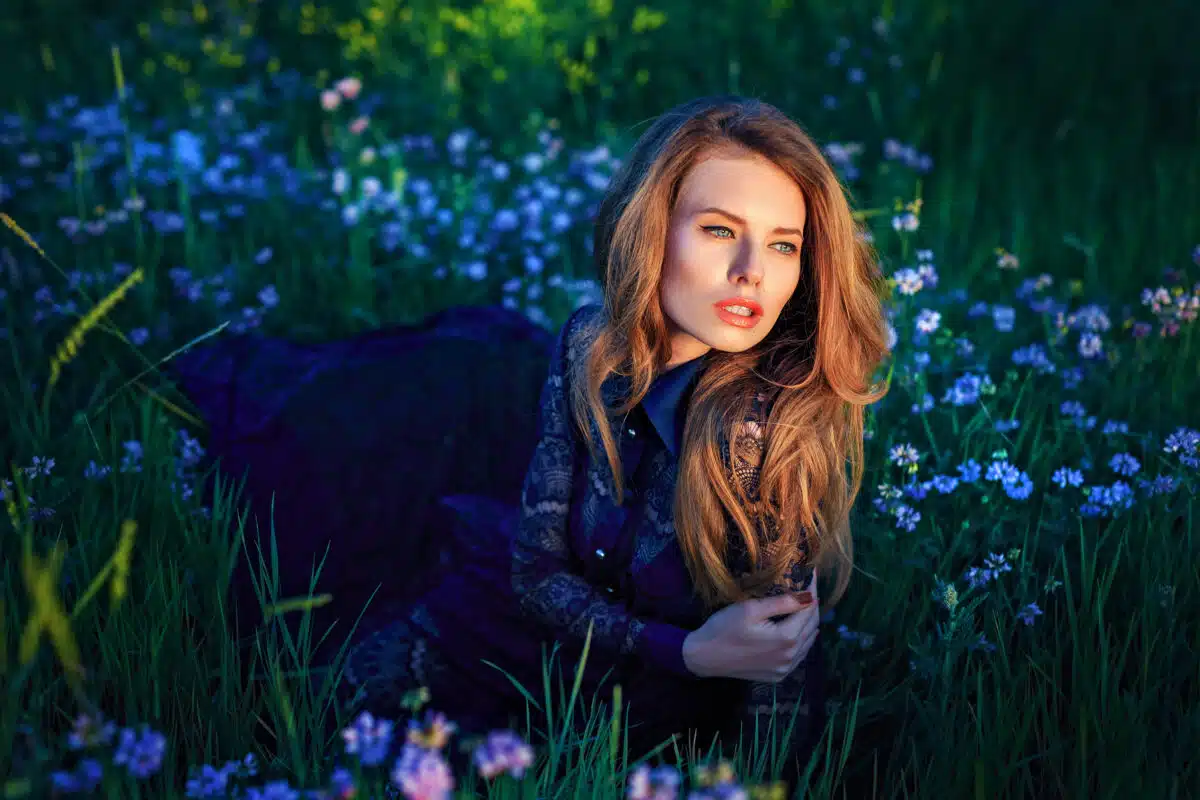
“The Ground Ivy” by John Harris
The green hedge-banks have many cells
of wonder,
Where golden garments gleam
Among the moss, outside the leaves
and under,
As rich as queens beseem.
Why travel far for loveliness outbeaming
From Nature’s choicest store,
When Beauty’s self is evermore forthgleaming
Even at our very door?
To him whose eyes are open to the glory
Of sunset in the wood,
There is a moral, and a poet’s story,
In every bursting bud.
Nor least among the children of the morning
By mossy stone and stream ,
Bright with the beauty of the sun’s adorning,
Does the ground ivy gleam.
So there is nothing in the distance hazy,
Where’er our gaze may be,
Through valleys deep or fay- filled landscapes mazy,
More fair than what we see.
“The Harebell” by John Harris
I have dear friends on the mountain,
In the valley, near the fountain,
On the highland, in the hollow,
Where the sounding echoes follow:
Down in dingles deep and shady,
Out where ferns are crisp and fady;
On the sea-shore, where the hull is;
Up the cliff – crags, where the gull is;
In by pools where wave the rushes,
Down beside the blossomed bushes,
In the long lane leading seaward,
On the coarse carn sloping leeward;
In the shadow of the boulder,
Where the peaks are growing older;
By the church – stile where the yew is,
Near the dike where silver dew is
In the wood and meadow hedges,
Smiling where the waving sedge is,
Telling truthful tales together,
Chiefly in the summer weather :
For they love the light and air well
As my pretty graceful harebell
Ever bending meek and lowly,
Cheering weakness, toiling slowly.
And I ask, when death shall take me,
That a wild flower grave you’ll make me.
“The Snowdrop” by John Harris
Queen Frost is out, and through the
northern doors
King Cold comes clad in snow ;
The wind rolls raging downthe ragged
moors,
And fills the vales below.
A pure white snowdrop smiles beneath two trees,
Whose limbs are weird and bare ;
Like Love, with tearful face and trembling knees,
Watching the couch of care.
My friendship wanes not for thee and thy race :
Each wilding of the glen
Brings beams of gladness to mypensive face,
More than the praise of men.
How fair thy robes, how beautiful thy form ,
As here thou bendest low,
The watching angel of the wintry storm,
Which o’er the waste doth blow!
By bitter tempests beaten? So am I,
Over life’s toilsome wold,
Dreaming of lands where fragrant lilies lie,
Unblighted by the cold.
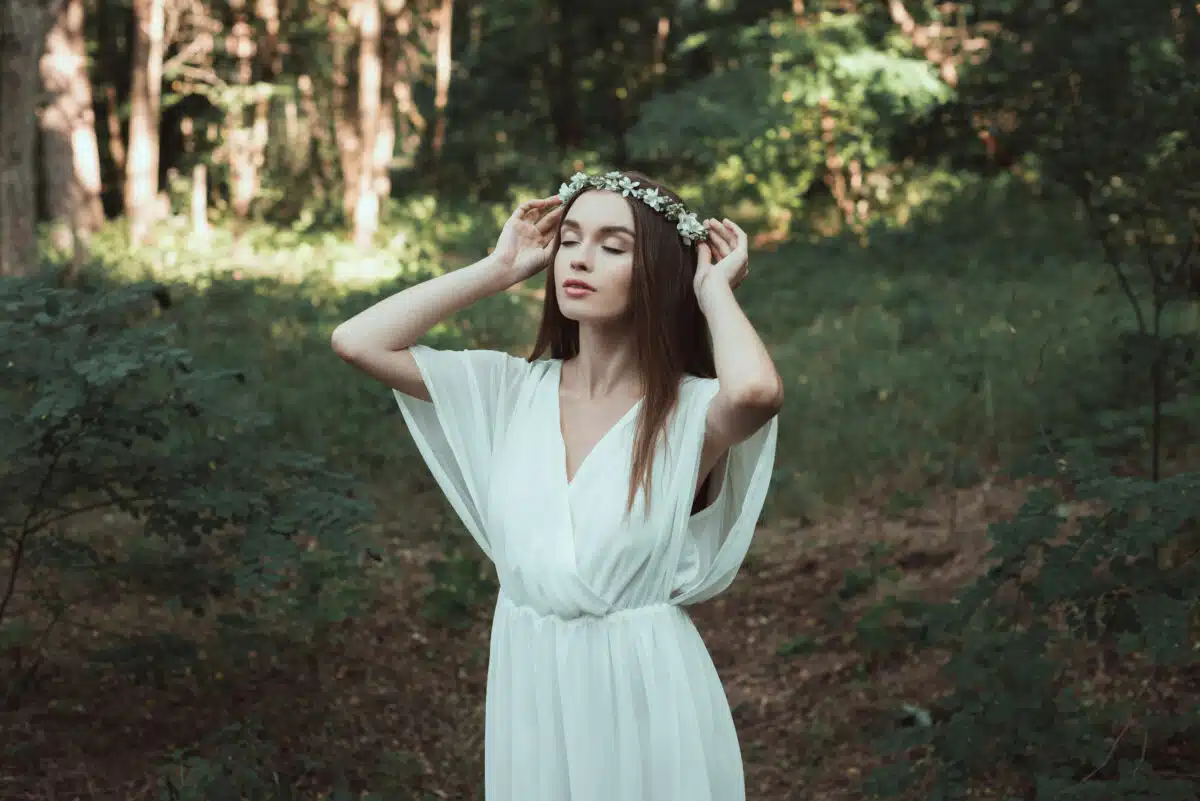
“The Periwinkle” by John Harris
In a corner moist and shady,
Where the willows grew,
And come forth the lord and lady
With the sun and dew ,
Climb the velvet periwinkles
In their robe of blue.
Forth they look where moss is tender,
And the grass -blades low ,
While the sun hides half his splendour,
When the great winds blow ,
And the blue -bell and the primrose
Their dear faces show .
Stars ye shine amid the ruin
Where dead feet have trod ;
Stars ye are, the rill -side strewing,
Stars on burial sod ;
Stars where valley ferns are shaking,
And the hill pines nod :
Ever clinging, ever shining,
In your lowly sphere ;
To a stronger closely twining
With a clasp sincere .
So would we lean on the Master,
Till life’s latest year.
“The Colt’s Foot” by John Harris
Unnumbered echoes travel in thy wake,
Clear voices, calm and sweet,
Uprising softly from the leafless brake
And the old woodbined seat.
O’er pleasant pastures of the pregnant past
I see thy form once more
Look forth with pity on the powerful blast
Beside my childhood’s door.
Alone thou comest with the lark’s first song
In Winter’s footsteps rude;
Foretelling days when summer steals among
Thy smiling sisterhood.
And though the winds moan in the solemn woods
From eve to eve unstilled ,
And drive their coursers down the tumbling floods,
Thy mission is fulfilled.
So teachest thou that nothing comes in vain,
Let it be great or small :
The tenderest bud, the Colt’s Foot in the lane,
God careth for them all.
“The Cuckoo Flower” by John Harris
OUR Father’s love in every flower is shining,
And gilding every stem,
Where lily-leaves are on the banks reclining,
Or glows the woodland gem .
Though various hues and various forms are granted ,
In bower or dingle dim,
To cheer the eye until we are enchanted ,
‘ Tis all the gift of Him.
And he who reads their simple beauty rightly,
In grove or thicket’s gloom,
On grassy lawns and pastures shining brightly,
Sees God in every bloom.
‘Tis thus the CUCKOO FLOWER in marshy places
Its Maker’s love reveals,
While dainty May-buds show their glowing faces
Where the sweet zephyr steals.
Its silvery blossoms scattered in the grasses,
Out-shining in the reed,
Or peering forth beside the mountain passes,
Confute the sceptic’s creed.
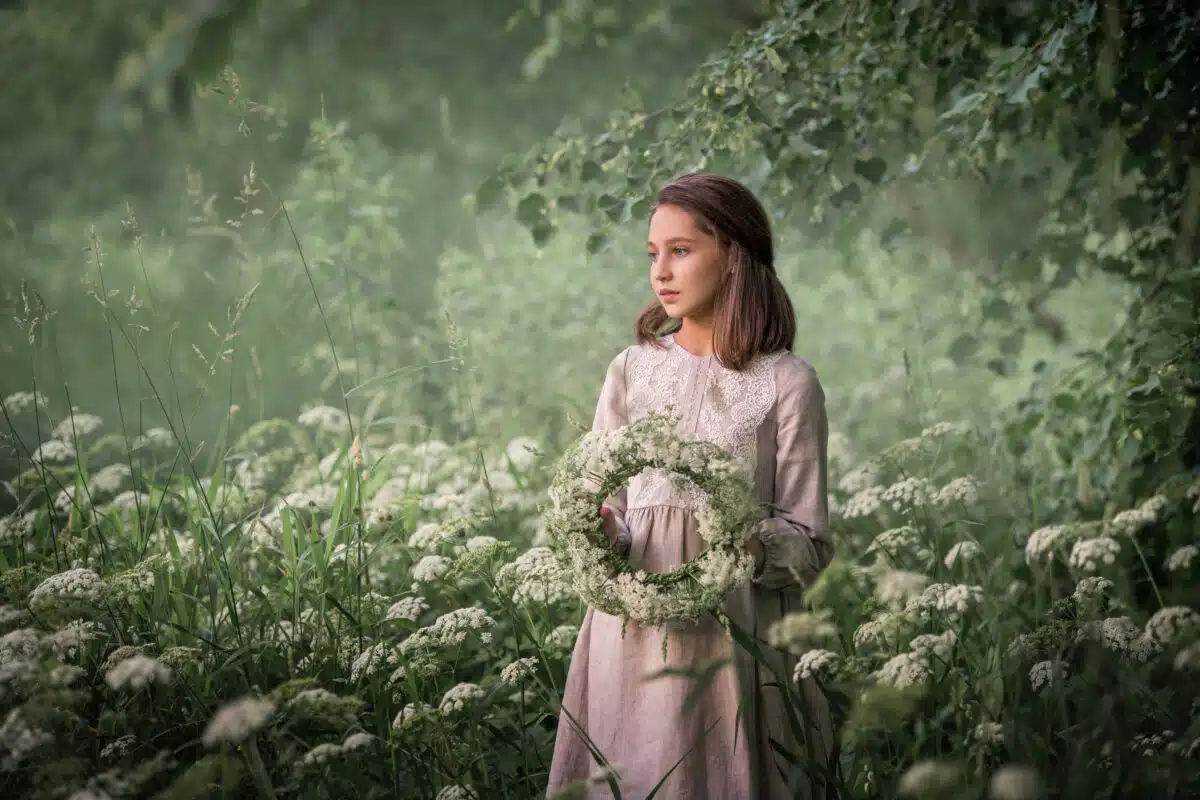
“The Dropwort” by John Harries
HOW costly are the temples of man’s building,
Where waiting ones convene!
The stained glass pane, oak carving, painting, gilding,
Altar, and shining screen.
God is as near, in majesty supernal,
To heed the wanderer’s hymn,
Where Nature teaches through the Voice Eternal,
As in cathedral dim.
And he who worships where the flowers are lowly,
And murmurs fill the air,
Feels in his heart the presence of the Holy,
Although no priest is there.
The voice of prayer is evermore ascending
Whene’er the sun is up,
And summer music with the morn is blending
From every floweret’s cup.
The smallest leaf has more Divine outbeaming
On hill and grassy glade,
Where brooks are bubbling and white DROPWORTS
gleaming, Than domes of cedar made.
“The Furze” by John Harris
Where the water flags are thickest,
There thy blossoms burn,
And the brooklet floweth quickest
Down by many a turn.
Near the channels of the mountain
There thou beamest well,
And beside the lonely fountain
In the dreamy dell.
Where the welcome daisy springeth ,
There thy glow is spread,
And the skylark sweetly singeth
In the blue o’erhead:
Shining where the alder swayeth
Ever long and late,
And the blue- eyed maiden playeth
By the meadow gate.
In the crooked lane and narrow
Thy full glory burns,
Where the titlark and the sparrow
Chirrup forth by turns.
Ranked beside the rabbit’s burrow,
With a glow untold ,
Hanging o’er the new-made furrow ,
Gleam thy bells of gold;
Burning by the broken ledges
With soft moss between ,
Flaming on the woodland hedges
Like the sunset sheen ;
And when Eve sings in the rushes
Which the poet paints,
Then we deem thy flowery bushes
Are the robes of saints.
Much rich interest dost thou render
For the air and light:
Thank thee for thy golden splendour
On the upland bright;
Beaming here and there so brightly
Where our footsteps roam:
We omit to prize thee rightly,
Like a bard at home.
“The Hawthorn” by John Harris
The poor man stands amid the forest’s wonders,
Under the pine trees tall,
Or by the crashing of the cataract’s thunders ;
And feels he’s heir of all.
The gift of beauty is alike the treasure
Of cottager and king;
And he whose soul is lighted finds a pleasure
Even in an insect’s wing.
The winds are free, the waters of the river,
The field -paths daisy -starred,
And murmuring ocean, the great pleasure- giver ;
Although park -gates are barred.
For all the wildings of the wildwood glimmer,
The thorn – flowers milky white ,
For all the tree- bound village waters shimmer,
For all the hedge-rose bright.
On fence and fenland, where the banks are showy,
And where the glens are gay,
The HAWTHORN shows its honied blossoms snowy,
The princess of the May.
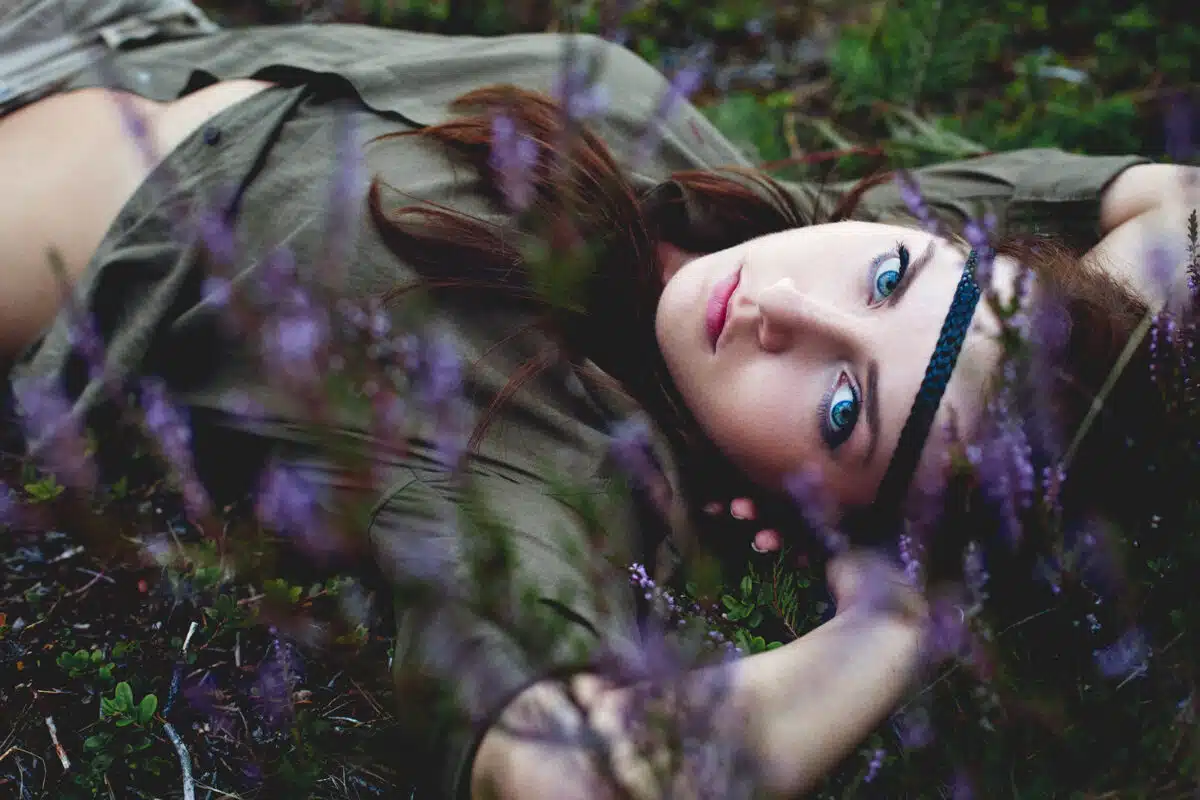
“The Heather” by John Harris
GOD’S gifts are free: the breeze that fills the dingle,
And fans the fragrant bower;
The sea – wavesbreaking on the shining shingle,
The light, the moss – bank flower;
The river rushing to the restless ocean,
The blue expanse above,
The forest murmurs through the pine trees’ motion,
The daisy’s look of love.
Last eve I met a little cottage maiden,
In weeds of linen dressed,
With white May-buds and humble hedge- flowers laden;
And, 0, she looked so blest!
And days of old were round me thickly thronging;
My youth was with me still,
When I beheld with all a lover’s longing
The HEATHER of the hill.
And still it fills me with a holy feeling,
Like some old poet’s strain
Through the dim twilight of my memory stealing,
Or sounds of April rain.
“The Honeysuckle” by John Harris
ODOROUS climber of the wildwood,
With thy breath of balm!
Let me, as a singing child should ,
Greet thee with a psalm:
In the meadow , on the moorland,
By the bog of peat,
Scenting all the sandy. shoreland
From thy urns of sweet:
Loved by matron, man, and maiden,
With a free goodwill;
And the old and heavy-laden ,
Creeping down the hill.
On the hedges of the highway
Where the carriage glides;
In the narrow bending byeway,
Up the castle’s sides;
Twining in the robe of Summer
With the rose’s leaf;
Bright with many a fair new comer,
Dear to child and chief.
Reigning on the royal ruin,
Thou art quite a queen;
O’er the hill- side odours strewing,
And the coppice green.
Thus the HONEYSUCKLE bringeth
Nectar to the breeze,
Where true poetry ever ringeth
In the trembling trees:
Failing in thy mission never,
True to Nature’s sign,
Teaching man to trust for ever
In the Power Divine.
“The Hornwort” by John Harris
HOW are the narrow paths of earth forsaken!
How thronged the wide ways be!
And tinselled trash for gold is often taken,
The shackled for the free.
Men look at what they term ancestral glitter,
Gay halls and chariots grand;
Despising him whose birth – lot has been bitter,
Some hovel of the land.
But Nature in her wild and wasteful places
Has many a favourite gem,
Which bringeth sunshine to sad human faces
In the full walks of men.
And still throughout God’s beautiful creation
All creatures of their kind,
Both small and great, of every grade and station,
Attest the power of mind.
So walk I here, where gentle streams flow dreaming
By many a lichened cave,
Well-pleased to mark the emerald HORNWORT
gleaming Beneath the silver wave.
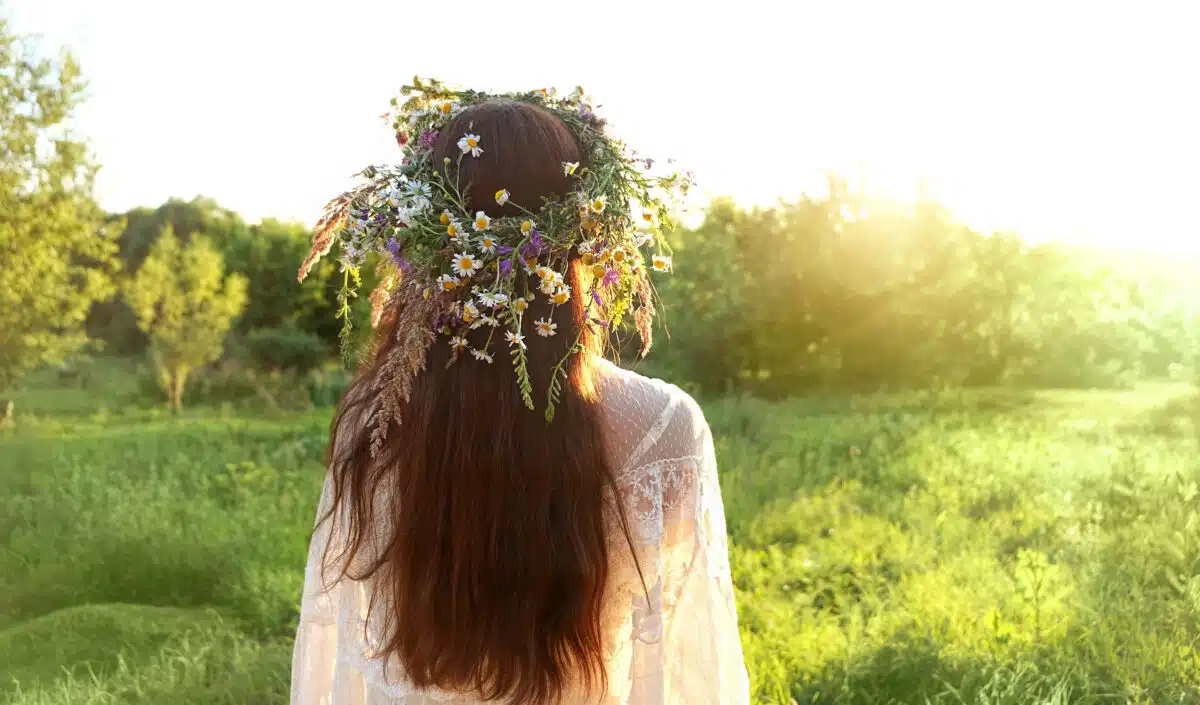
“The Knot Grass” by John Harris
HOW often are our holiest intentions
Miscalled, misunderstood!
Unselfish deeds, “ the hypocrite’s inventions;
And ” evil,” what is good.
And it is hard to lay our simple treasure
Down at the world’s cold feet,
To lie unnoticed in its paths of pleasure,
Like daisies on the street.
The rude, the rough, command eternal wonder;
The noisy nothings please:
Ten thousand ears are open to the thunder,
Which scarcely hear the breeze.
Why come not forth where loving Nature teacheth
Sweet lessons night and day,
And every wild flower of the land beseecheth
Men in His name to pray?
So sighs the KNOT Grass in its emerald tangle
With unassuming mien,
Where brighter flowers the summer pastures spangle,
Modest, and mild, and green.
“The Ling” by John Harris
THE LING! the LING! I bend o’er thee;
Yet I cannot tell what my lay may be,
Whether smooth or rough, whether weak or strong,
Whether high or low, whether short or long.
But fail it must my love to show,
Where moorland breezes fan thee low.
The LING! the LING! I have known thee long,
When the flowerful earth was rich with song,
And Hope, like a bard with his harp unstrung,
Stood under the trees, when the world was young,
And filled my path to the land unknown
With roses that never on earth have blown .
The LING! the LING! Thy bells of gold
Still chime with song like the dells of old ,
Which soars at eve from the ferns and moss,
And floats along by the curious cross,
When the purple light is on the seas,
And the fays are climbing the hamlet trees.
The LING! the LING! The wastes through thee
Are fragrant fields for the honey- bee:
Thy simple flowers on plain and height
Make meads of perfume and delight;
Like many a humble child of care,
Who from his little a little will spare.
“The King Cup” by John Harris
CAME a shower o’er rush- lands moory;
Came a rainbow stained with glory;
Came a sun -flash shiring, -streaming;
Came the moonbeams softly gleaming;
Came dim eve, when flocks were folden,
And at morn a KING CUP golden.
Old men saw it, smiled, and blest it;
Children lovingly caressed it;
Joyous maid and matron knew it;
Schoolboys clapped their hands to view it;
Mothers sang the ditty olden.
Of the shining KING CUP golden.
Lovely sunsets sunsets follow:
Then they glowed in every hollow,
In the meadows, dells, and ditches,
Under thorns and hazel switches,
Where the nightly flocks were folden;
Everywhere, —the KING CUPS golden.
Care went forth and wept for gladness:
Sunshine is no time for sadness.
More than books of song or story,
Penned by bards and sages hoary
In the mighty centuries olden,
Learn we from the KING CUPS golden.
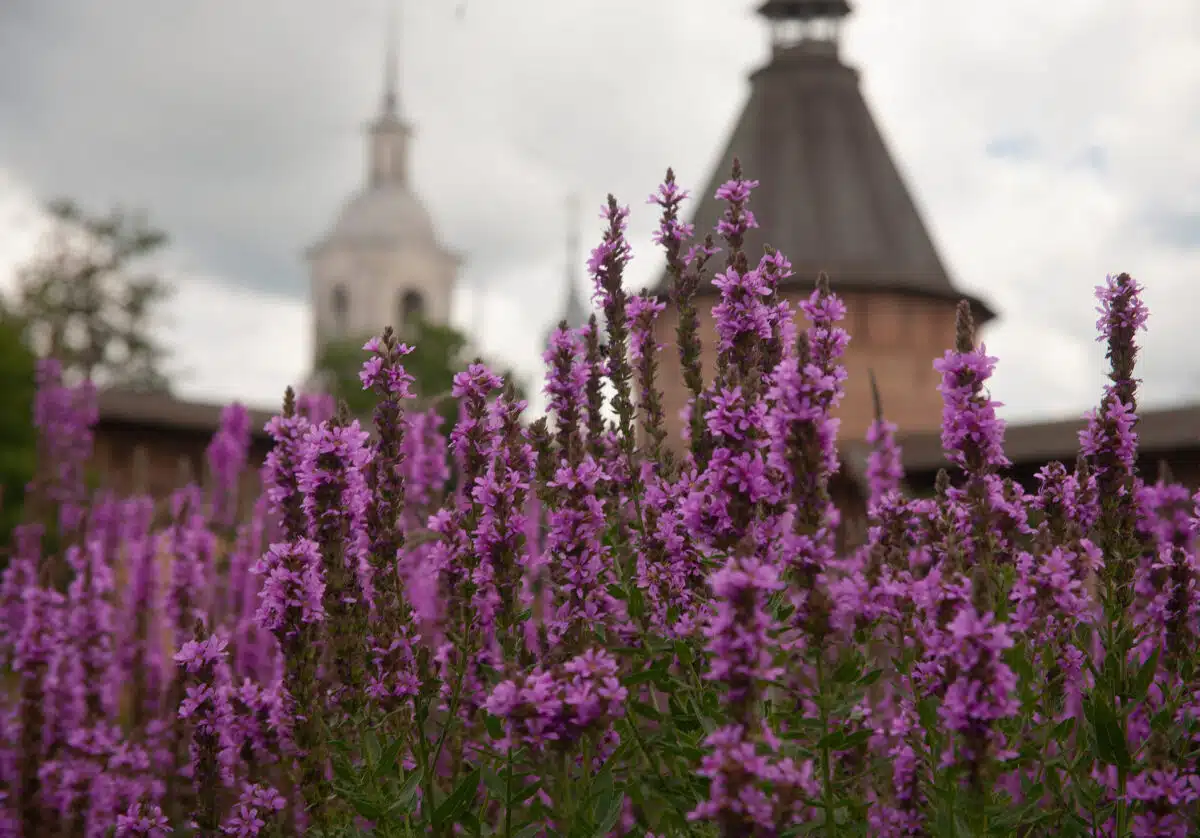
“The Loosestrife” by John Harris
The flowers how beautiful! and their discourses
Are eloquent and clear,
On ledges lonely, and where water courses,
If we but pause to hear..
And how they bloom in solitary places,
Where not a sound is heard,
Raising to heaven their beautiful bright faces,
By the soft breezes stirred!
They seem to whisper by the banks, and under,
Where Love her couch has made,
That Eden has its solitudes of wonder,
Where blossoms never fade.
And thus the LOOSESTRIFE, rising in the rushes,
Or by the silver stream,
So richly tinted mid the tangled bushes,
Speaks with a power supreme.
And its bright scarlet bells, by west winds shaken,
While sky- larks soar above,
And in the glens a thousand mysteries waken,
Ring of the land of love.
“The Madder” by John Harris
WE call our children flowers which deck our dwelling,
And hang around our hearth:
And truly they are buds, where waters welling
Make green the darksome earth.
They beautify the cottage of the peasant,
Bring sunlight to the hall,
And make the prison and the palace pleasant,
Where’er their glances fall.
The hardest heart is softened by their sweetness,
Their look of trustful rest;
And heaven itself has much of infant meetness,
For He their beauty blest.
And so the lilac -blossomed meadow MADDER
Upon its trailing stem
In simple lowness makes the sad heart gladder,
More than some costlier gem:
Unnoticed oft mid those of higher orders
In more superb attire,
Like some true poet in unkindly borders,
Neglected with his lyre.
“The Milkwort” by John Harris
THE field – flowers figure a diviner meaning
Than oft to us it seems,
In bowers reclining, or on moss banks leaning,
Like stars when midnight dreams.
And he who marketh most their pleasant features
Hears some old poem ring,
Or text of truth ne’er taught by human teachers,
To the eternal King.
Nor does the MILKWORT on the pastures hilly,
Decked in its purple bloom,
Speak the least powerful, on the moorland stilly,
Or in the brake of broom.
Its sisters are the eyebright small and snowy,
The dog – rose, and the thyme,
Where they converse in undisturbed alloy
From morn till even- chime.
And when the winds pause on their summer travel
O’er fields of emerald hue,
The MILKWORT’s music, which the bards unravel,
Still swelleth sweet and new .
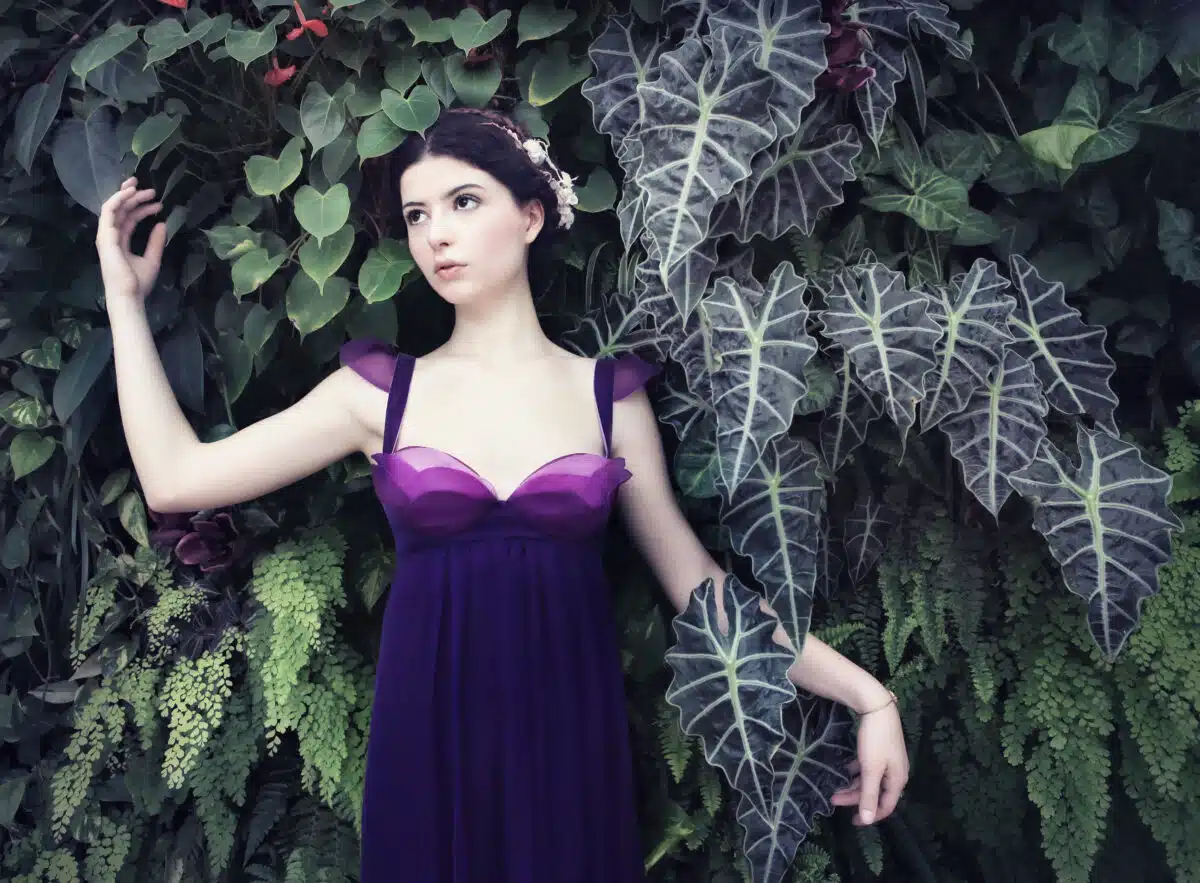
“The Orchis” by John Harris
NOT in the cold, like an orphan lone;
Not on the moors, where the March winds moan;
Not on the hills, where the billowy blast
Howls to the hurricane hurrying past;
But where the May-queen trills her song,
Dances the ORCHIS the whole day long:
Still looking forth where the waters play
In the deep woodlands far away,
On the sod -crowned hedge of the moorland mead,
At the sedgy feet of the rustling reed,
Where the field -birds sing, and the brooklets sigh,
In the marshes whispering, “ Here am I!”
Thy purple bells ring out all day
Wherethe village maidens make the hay.
Thou givest song to the rough wayside,
And lays of love on the uplands wide;
Sweet warbles in the watching wood,
For ever uttering, “All is good.”
“The Pimpernel” by John Harris
COME from the south, O billows,
Spell of the spicy breeze,
Here where the PIMPERNEL pillows
Under the leafy trees,
Making the bank a brightness,
Making the brake a bower,
Filling the land with lightness,
Cheating the summer hour.
Food to the birds thou bringest,
Light to the gladdened eye ;
Rays to the reaper flingest,
Love to the passer by.
Joy from thy bells is streaming;
Mirth has a tuneful hum;
Hope in thy leaves is dreaming:
O for the time to come!
Out of thy crimson arches
Many a fairy calls,
While the gay flower -queen marches
Over thy burning halls.
Sensitive child of gladness,
Whether on down or dell,
Shutting thine eye in sadness,
Beautiful PIMPERNEL!
“The Primrose” by John Harris
GLAD am I to meet thee
By the gentle stream,
Bringing, as I greet thee,
Bowers where blossoms beam,
And bluest violets blush, and dainty roses gleam.
There is much of wonder
In thine opening eye,
Where the leaves asunder
On the moss-mound lie,
And Spring’s tender music fills the earth and sky.
Shall I call thee maiden
Lost amid perfume,
With more treasure laden
Than the dells consume?
Or a river fairy, in thy yellow plume?
Shall I call thee daughter
Of a line of peers,
Dwelling by the water,
Knowing nought of fears,
Where the sunshine stealeth kissing off thy tears?
Princess shall I call thee,
In thy green domain ?
May no ill befall thee ,
From the sleet or rain,
Or the rising north wind driving o’er the plain!
But no words of meetness,
Though they echo well,
Shadow half thy sweetness,
Darling of the dell,
In thy fern -grown queendom , where the wildings dwell.
Thus my musing endeth,
As the curfew peals,
Blue with purple blendeth
Where the great sun wheels :
Yet I cannot utter half my spirit feels.
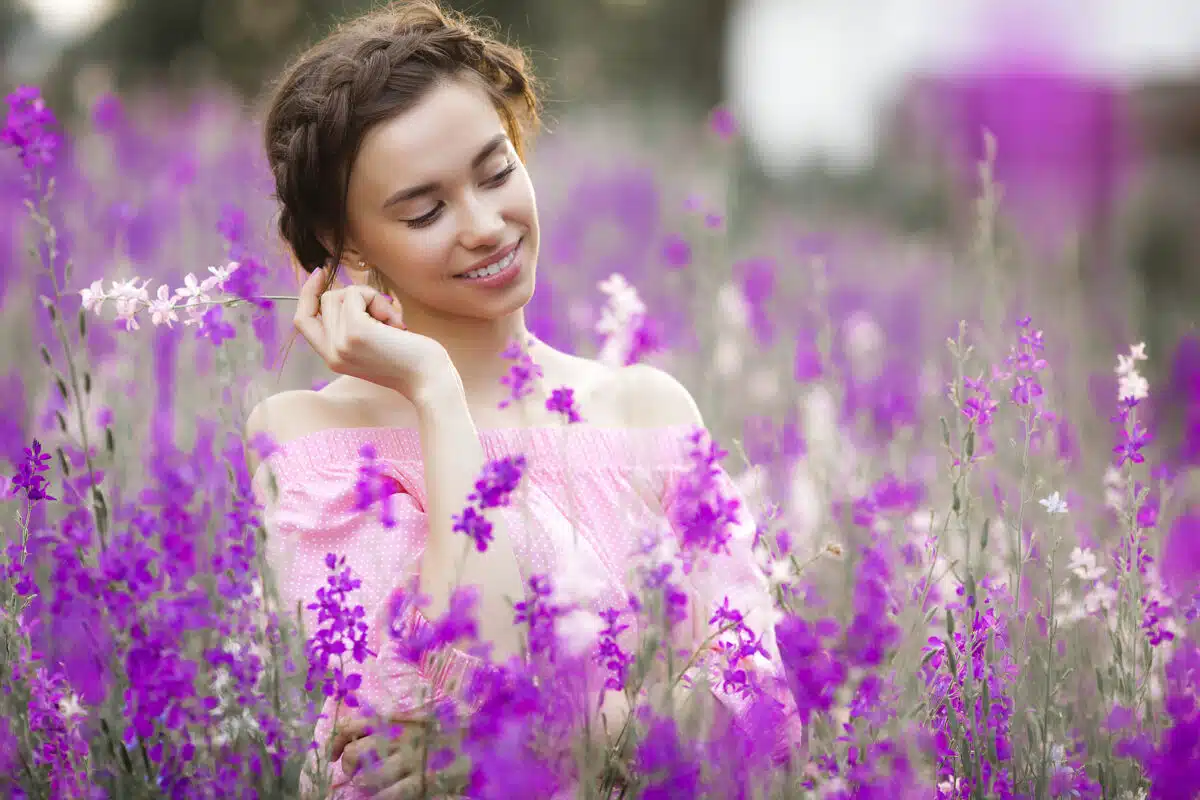
“The Ragged Robin” by John Harris
THE sound of song is in my ears forever,
Divinely understood ,
At eve and morn, low-toned, unmurmuring never ,
Like music in the wood.
Hence I converse with flowers where water falleth
In sweetness down the hills,
And the quaint cuckoo to the titlark calleth,
Which follows where she wills.
The very children love the RAGGED ROBIN,
Which to the ruin clings,
When sunshine streameth, or the breeze comes sobbing
With rain -drops on its wings.
In the farm -lane, out mid the moorland bramble,
Up on the craggy ground,
Where rabbits play, and dainty fairies ramble,
Its crimson crest is found;
Cheering the soul of man with simple beauty
From Nature’s low estate,
Whose highest honour and sublimest duty
Is to submit and wait.
“The Sandwort” by John Harris
THE flowers prolong their Sabbath, ever chanting
In aisles of heavenly light,
Precepts Divine in human hearts implanting
From morn till hush of night.
From roadsides lone their silent prayers are welling,
From green sepulchral mounds,
Where waters fall and woodland songs are swelling,
Or human footfall sounds.
Theirs is a weekly worship without ending,
A ceaseless work of joy,
A yearly incense evermore ascending
Without the least alloy.
Their vestments, fabrics of the down and dingle,
Wrought in the loom of Love,
Where rain and air and golden sunbeams mingle
In earth and heaven above.
So does the SANDWORT by the sea -waves springing
Upon the marshy sod,
Or crimson – coloured to the cliff- rock clinging,
Teach us to worship God.
“The Ribwort” by John Harris
RICH men have gardens, where the budding branches
Are trimmed and trained with care:
Mine are the lowlands, where the free breeze launches
Its odours on the air.
Its walls are blue hills, where the glow-worms glimmer
When the white moon appears;
Its walks are brooklets, where the waters shimmer;
Its lakes, the mountain meres.
Its trees are forests of the Father’s framing,
Lifting their heads on high,
In tuneful transport evermore acclaiming
The Presence of the sky.
Its statues are the marvellous boulders hoary,
The wild walls of the main;
Its gates, the bright bars of the sun’s red glory
With morn or evening’s stain.
Nor least within my garden’s grand enclosure,
Where million mysteries gleam ,
And Nature works her wonderful disclosure,
Does the tall RIBWORT seem.
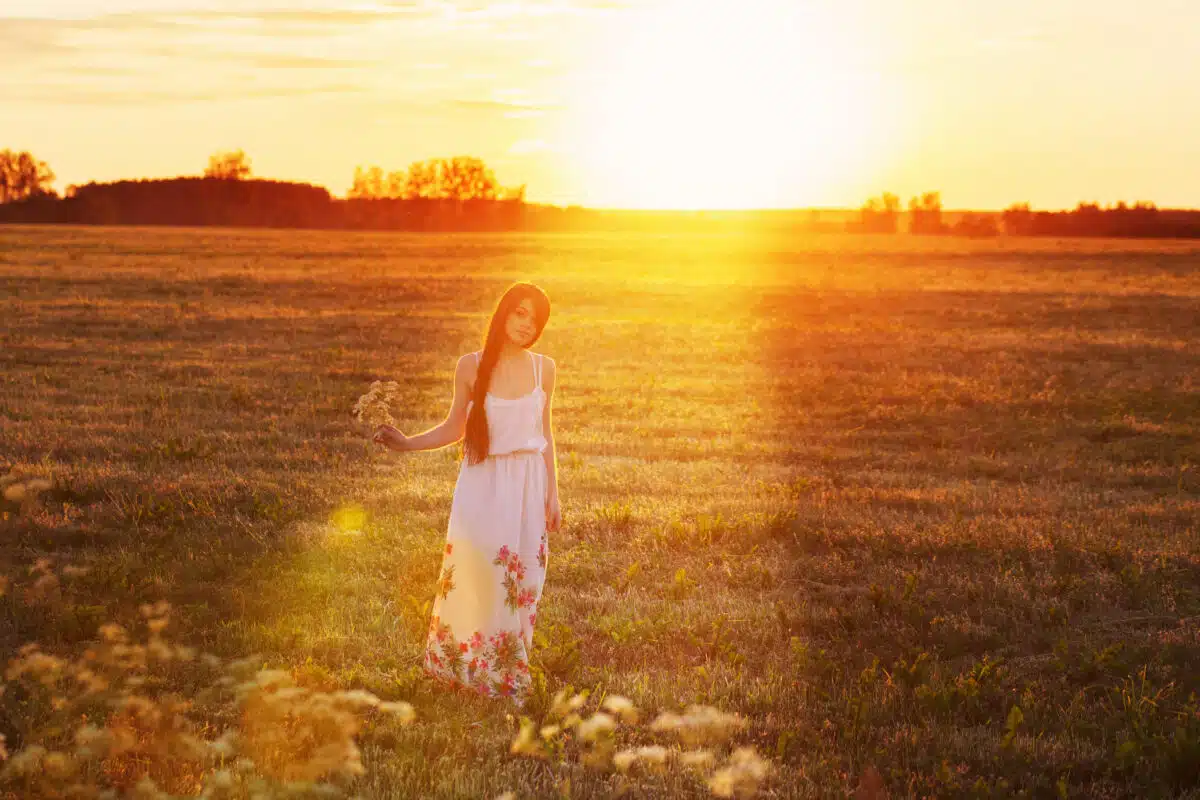
“The Silver Weed” by John Harris
HAIL, my little SILVER WEED!
Growing on the upland mead,
Holding out thy yellow flowers
In the roadside’s broken bowers,
Blooming on the brooklet’s bank
Mid the mosses smooth and dank,
And along the lone highway
Where the swallows sport and play,
And the ivy climbs the tree:
I will sing for love of thee.
Country children know thee well:
For thy roots they search the dell,
Which they roast and eat with joy,
Many a girl and many a boy.
Matron meek and maiden young,
Age with wisdom on his tongue,
These who follow , those who lead,
Love the darling SILVER WEED.
Thus, when swallows skim the mere,
In the summer of the year,
And the sunshine hangs its beams
O’er the channels of the streams,
Let me tune my simple reed
To the shining SILVER WEED.
“The Sloe” by John Harris
IN the green fields April walketh
Where the whistling ploughboy stalketh:
Shining rain -drops gem her tresses,
As the flowery sward she presses.
Small the leaves the apple showeth;
Scarcely yet the strawberry bloweth;
And the fitful sunlight flingeth
Bars of fire where water singeth;
Then withdraws its splendour quickly,
Leaving hill and valley sickly;
Like a lover smiling, frowning,
Then in tears the maiden drowning.
Blushing buds the boughs are bringing,
In the sun and shadow swinging;
And the SLOE, where hedges falter,
Where lies low the Druid altar,
In waste ways where dearth abideth,
Where the ploughshare never glideth,
On the fences of the woodland,
In dry patches of the floodland,
Up and down, and in and under,
Where the timid dormice wonder,
Where the furze -chat watch is keeping,
And the blue-bells are a -peeping, —
Shows its blossoms to the dingle,
White as robes where angels mingle;
Though its limbs are dusk as winter,
And few leaves adorn the splinter;
Like Content, though sorrows sadden,
Waiting till the morn shall gladden .
“The Speedwell” by John Harris
SPRING-MADE music fills the breeze
Where the rose reclineth;
Zephyrs murmur through the trees;
Out – the SPEEDWELL shineth,
Like a diamond in the grass
By the watercourses,
Where the silver brooklets pass
Downward from their sources.
0, how pleasant thus to stray,
Cheered with Nature’s praises,
Where the gentle lambkins play
In the fields of daisies!
Much divinity hast thou,
Much superior reason,
Ever kindling on thy brow
Through the vernal season,
On the May-kissed meadow- slope
In thy blue robe shining,
Teaching man to live by hope,
And to cease repining.
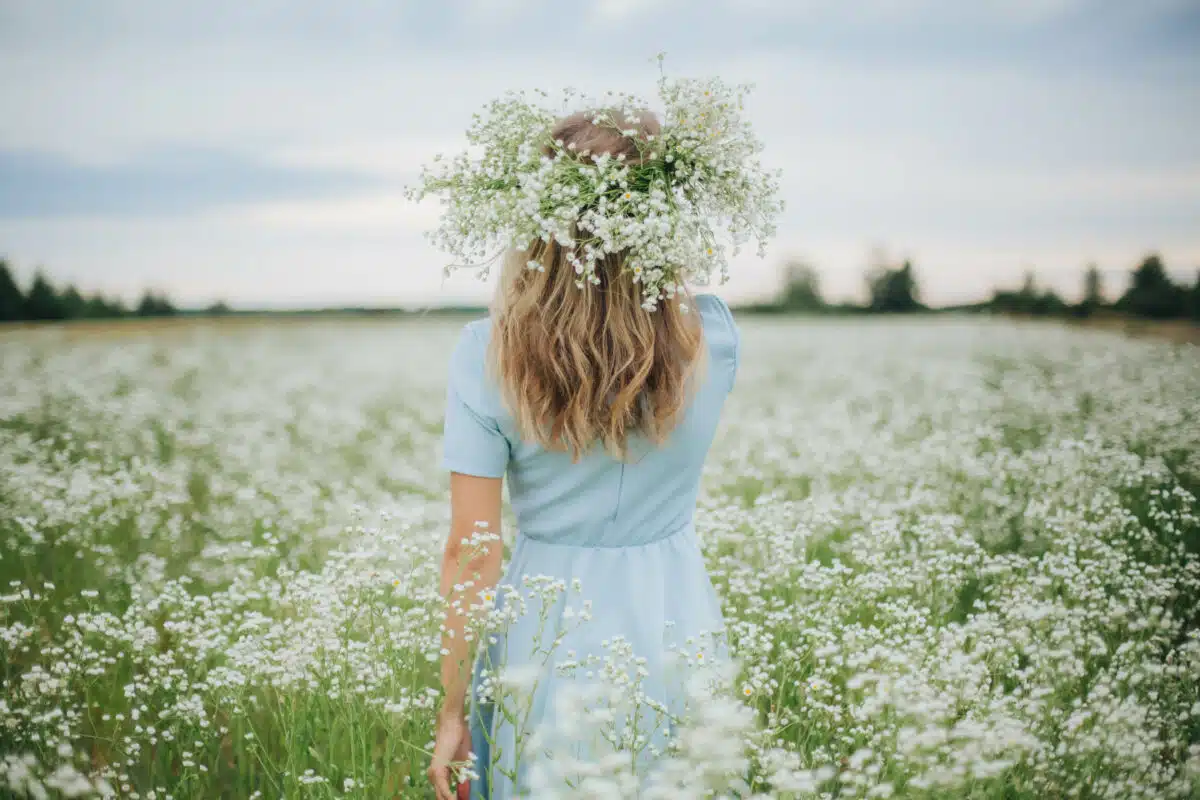
“The Stitchwort” by John Harris
HOMELY maiden, clothed in white!
When the plover takes his flight,
When the woods have full employ,
When the cuckoo sings his joy,
When the bursting May-buds shine,
Then the STITCHWORT looks divine.
How thy white robes seem to be
Tissued o’er with mystery!
Kissed by breezes slow with sweets,
Where fond lover lover meets;
Sky and earth, in gladness dressed,
Glow with beauty unexpressed.
Oft hast thou my spirit cheered
In life’s byeways lone and weird,
When pale Evening, like a saint,
Walked among the hamlets quaint:
Yet no word had I for thee,
For thy gifts of grace to me.
Beauty beams in every leaf;
Love outshines from every sheaf;
Truth is taught by reed and rock;
Every fern – leaf by the loch,
Every wilding of the wood,
All that He has made is good.
“The Strawberry” by John Harris
THERE is a work for all in God’s creation,
The lowly and the high:
No matter what our title or our station ,
We have a tear to dry.
We have some isolated heart to gladden
With the sweet balm of love;
Some sighing spirit, which the world doth sadden;
Some lorn, forsaken dove.
Eyes look to us out of the mists of sorrow,
Out of the gloom of night,
To lead them on to a more bright to-morrow,
Whose morn now glows with light.
Thus, when the Spring puts on her wealth of greenness,
The STRAWBERRY blossoms shine
In all their snowy promising sereneness,
Where bursting buds recline.
Their glad eyes meet us in the woodland thicket,
In mead and moorland bowers,
By the mill stream and the rude wayside wicket,
And greatly gladden ours.
“The Stonecrop” by John Harris
THE waste is full of voices uttering knowledge,
Issuing from fold and fen,
Ungathered in the cloister or the college ,
Untaught by selfish men.
God is not prisoned in the temple’s plaster,
Or in the pulpit boards;
And he who reads his Bible finds the Master
Among the fens and fords.
More truth is often taught by birds and bushes
In Nature’s sacred fane,
Where the thrush warbles and the wild flower blushes,
Than ‘ neath cathedral vane.
‘ Tis thus the yellow STONECROP is a preacher
Upon the rocky down,
Or in the waste, where scarce a living creature
Breathes mid the bracken brown;
Speaking from ruins and rude boulders broken,
With a prophetic voice,
Where the free winds are evermore outspoken,
Bidding the wilds rejoice.
So let me learn to be for ever lowly;
Nor closely here entwine,
But seek to climb, although it be too slowly,
Up to the life Divine.
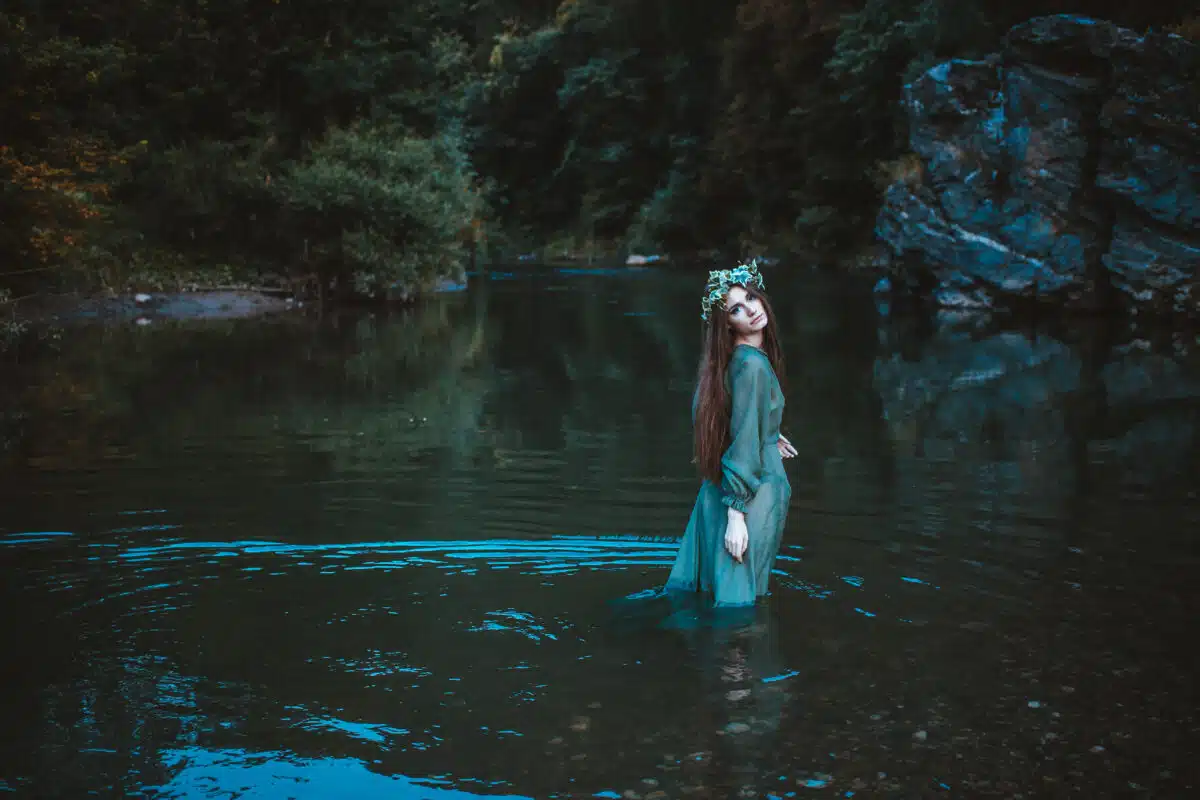
“The Sundew” by John Harris
I STOOD beside the doorway of the dingle,
And heard the lark’s sweet lay,
Where quiet Nature’s loveliest colours mingle,
And clearest waters play.
And everywhere, on arch and pillar leafy,
On tree and stone and sod,
Or where the rising river-banks were reefy,
I read the name of God.
Here angels come, when twilight droopeth dreamy,
And star- fires burn above,
In garments pure, with bars of splendour beamy,
Striking their lyres of love.
This the true temple, where Jehovah’s glory
Shines with a power supreme,
Beyond the glow in aisles of structures hoary,
Though gold and stained glass gleam.
Here let me worship, when my tears flow slowly,
Or when my spirit thrills,
Where no priest stands beside the SUNDEW lowly,
With God among the hills.
“The Sweet Brier” by John Harris
OUR years pass on like swift feet
through the gloaming,
Yet earth remains the same:
The poet rambles where the rills are roaming,
The heights yield loud acclaim.
In wild-roselanes, where bud-zoned fancy pleasures,
And oft in youth we strayed,
The mother walkswith her dear householdtreasures,
The lover with his maid.
The joy of childhood o’er the fields is ringing;
The harvest whitens still;
The belfry bells are in the ivy swinging;
The full moon tips the hill.
Sweet whispers tremble, where the moss scarce hideth
The glow -worm’s lamp of fire,
Filling the hollows, as the runnel glideth
On by the fragrant BRIER.
Old age comes swifter than we dare believe it,
With snow -marks on the ground,
Till in the dusk we prayerfully perceive it,
And yet the world goes round.
“The Traveller’s Joy” by John Harris
IF men loved flowers, then greater love
would kindle In every human breast,
And hate and strife and dreary discord dwindle,
From east to farthest west.
What chords of music by the wayside tremble,
Where love makes sweet employ,
And Nature’s favourites in her halls assemble,
As shines the TRAVELLER’S Joy!
It climbs the sloe-tree with its tendrils silky,
Mounts to the hawthorn top,
And from the oak -boughs hangs with tresses milky,
In green folds, as they drop.
Its tufts of feathery flowers in graceful whiteness,
Foam- edged and beauty-starred ,
Create an arbour of supremest lightness,
Fit for a royal bard.
There’s more divinity in the still thicket,
Forests, and fens, and fields,
Where waters murmur by the woodland wicket,
Than oft the pulpit yields.
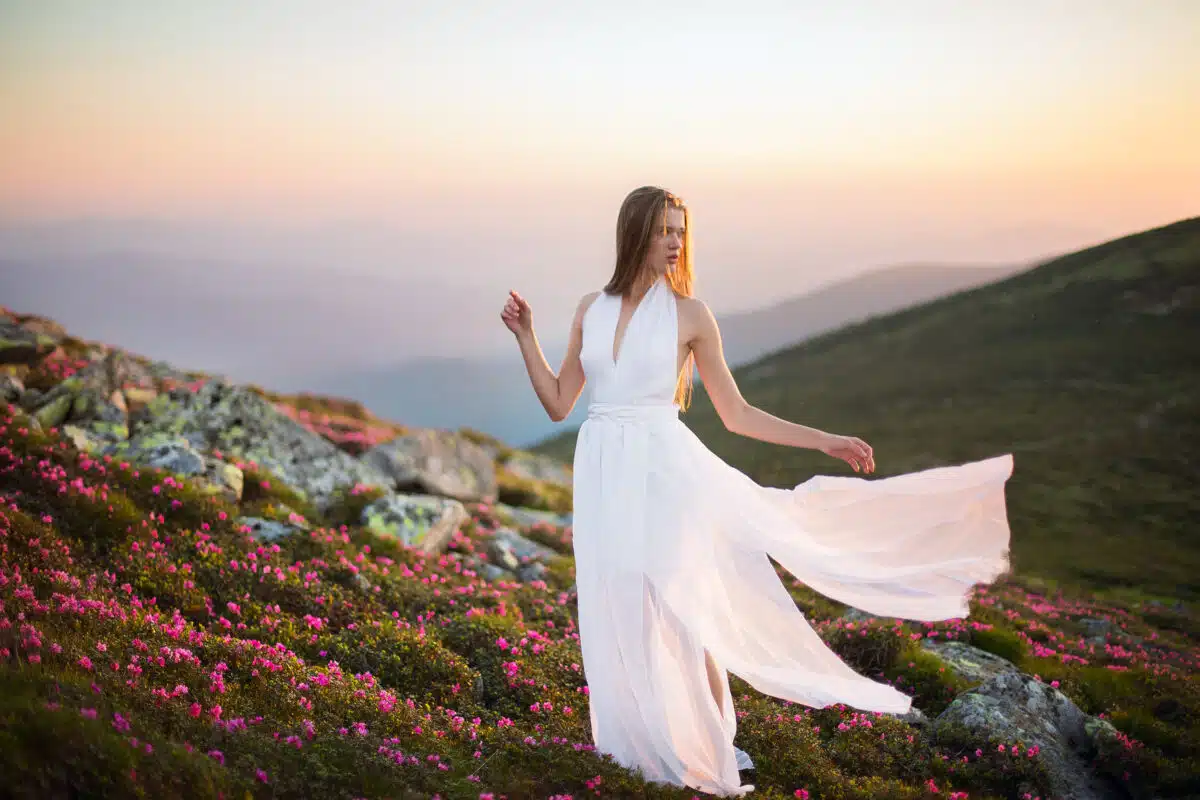
“The Thrift” by John Harris
THERE are more children than the fireside cheereth,
Bright-eyed and beauty-born,
Where’er the light in living lines careereth
Forth from the doors of Morn.
They line the leafy forest’s solemn dwelling,
Play by the rippling rill,
Lift up their faces where green corn is swelling,
Bloom by the echoing mill.
We know them by their purity of features,
Where’er they smiling stand:
God’s gentle, star -eyed, innocent, sweet creatures,
The wild flowers of the land.
Nor is the THRIFT less lovely by the shingle,
Or near the sea – bird’s nest,
Than blushing þuds where reeds and rushes mingle
Upon the valley’s breast.
On the salt marsh, amid short grass , it springeth,
Where the shy otter feeds,
Liketheloneheart where one stray sunbeamwingeth,
Or worth in homely weeds.
“The Vervain” by John Harris
A SIMPLE lesson have the smallest grasses,
The humblest flower a prayer;
And he who listens hears it, as it passes
Along the solemn air.
No spot is silent, though it so appeareth:
There angel-voices call,
Which he who loveth Nature’s poetry heareth,
When golden sunbeams fall.
The lilac VERVAIN , blooming in wasté places
Upon its slender stem,
Where echo answers, and the squirrel races,
Shines forth a lovely gem.
And when the sunset stains the rocking billows
Of the slow -murmuring main,
The Druid’s voice is heard along the willows
From the small – leafed VERVAIN.
And so ‘ t will be among the hills for ever:
These whisperings shall not cease,
Nor holy incense slacken to Him never,
Who fills the throne of peace.
“The Violet” by John Harris
BLUE thou wert when youth was golden;
Blue thou art to-day,
Though the earth is turning olden,
And my locks to gray:
Bluer than the summer ocean,
Or the sky o’erhead,
As the breeze with gentle motion
Fans thy velvet bed.
Shall we talk a little, dearest,
In this quiet glen,
Where the valley brook is clearest,
So apart from men?
Through the vale the bells are pealing,
Reaching gladdened ears;
But adown my face are stealing
Silently the tears.
Little blue- clad humble comer,
Duly in the reeds
Bringing tales of sunny Summer,
Dwelling in the meads!
Sweet it is to see thee blushing
In thy bower of moss,
While unnumbered songs are gushing
From each creek and cross.
Man has much unkindly feeling,
Much oppressive power,
Wounding hearts which yearn for healing,
Both in cot and tower.
But thou bidd’st us all be humble
In our proper sphere,
Never at our lot to grumble,
Though it seem severe.
Thus thou show’st the worth of pity
In thy moss -house lone,
Which we learn not in the city
Or the street of stone.
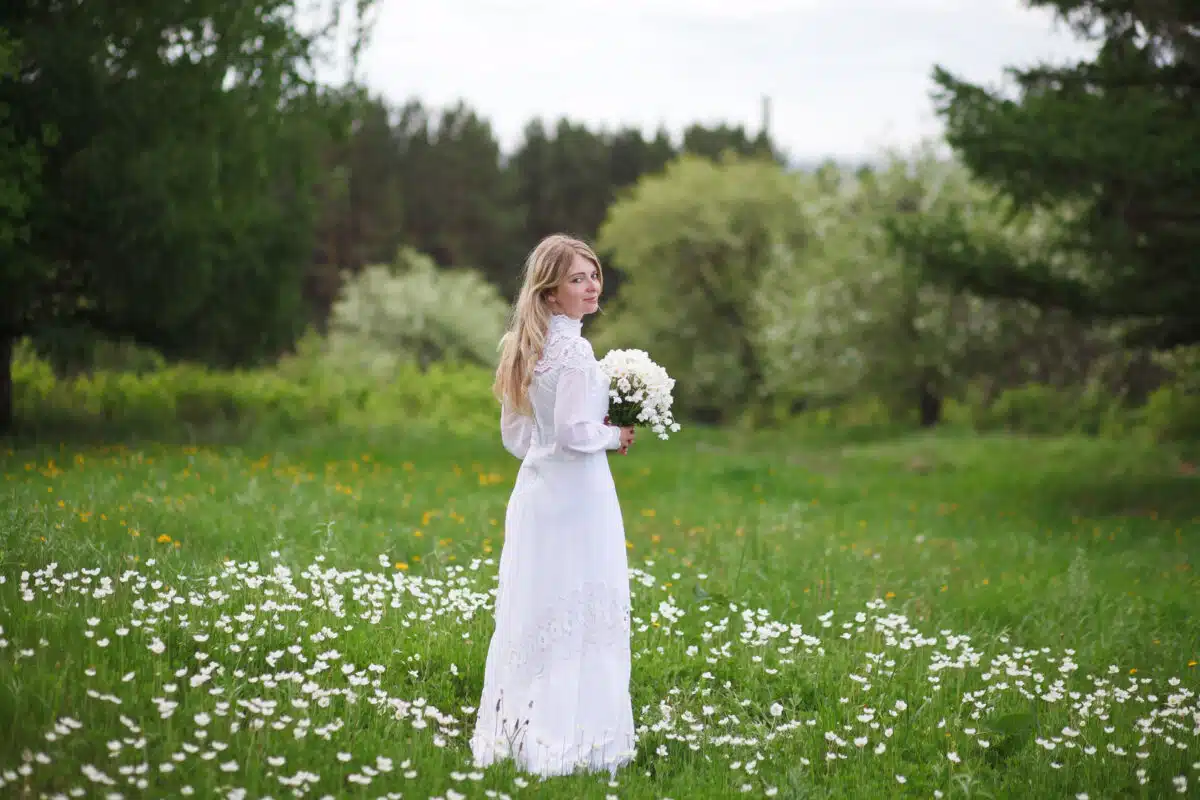
“The Wood Anemone” by John Harris”
IN the hollows of the moor,
By the timid rabbit’s door,
Down the dells where quiet reigns,
Up the hillocks, out on plains,
Where the velvet moss- cups be,
Shines the WOOD ANEMONE.
In thy May-bower sweet with song
Gleamest thou the whole day long,
Where the welcome blue -bells glow,
And the violets bending low ,
While thy harpist is the bee,
Little WOOD ANEMONE!
Thus thou dwellest on the down,
Where the Druid won renown,
Who perchance beheld in thee
An eternal mystery,
Whispering by the altar- stone
Of the wonderful Unknown.
Let me, to thy footstool sent,
Learn the lesson of content,
Striving ever in my sphere
To be honest and sincere;
Not in great things to excel,
But to do my little well..
“The Woodpea” by John Harris
HOW various are the bounties of the Giver!
Rock, roses, reeds, and rills,
The silver stream, the swiftly sweeping river,
The everlasting hills;
Green buds and grasses, countless atoms gleaming,
And colours without end,
To the still leafy forest -branches streaming,
Staining the valley’s bend.
No matter if our willing footsteps follow
Through regions rude or fair,
The gleams of beauty gladden hill and hollow,
Infinity is there.
So are His mental gifts diversely shining
Throughout the realm of soul,
So that the feeblest may have no repining,
Working one wondrous whole.
Thus when the WOODPEA hangs from living arches
Whose foothold is the sod,
Where sunlight like a mighty monarch marches,
We hear the voice of God.
“The Woodruff” by John Harris
LITTLE WOODRUFF, fair and snowy,
Loved the more because not showy!
Blooming where the sharp crags mutter,
Shining where the sea-birds flutter,
On the chalk-banks here and yonder,
Everywhere, with eyes of wonder;
Scentless now by earth befriended,
Odorous when thy race is ended;
Like a bard among his people,
Honoured most when ‘neath the steeple.
Primroses are household treasures ;
Hyacinths are fragrant pleasures ;
Violets are welcome ever ;
Dearest daisies weary never ;
Honeysuckles hang around us ;
Broom and marygolds confound us ;
May -buds come like living daughters,
Roses as the sound of waters ;
Bugle – flowers and foxgloves showy :
But we hail the WOODRUFF snowy.
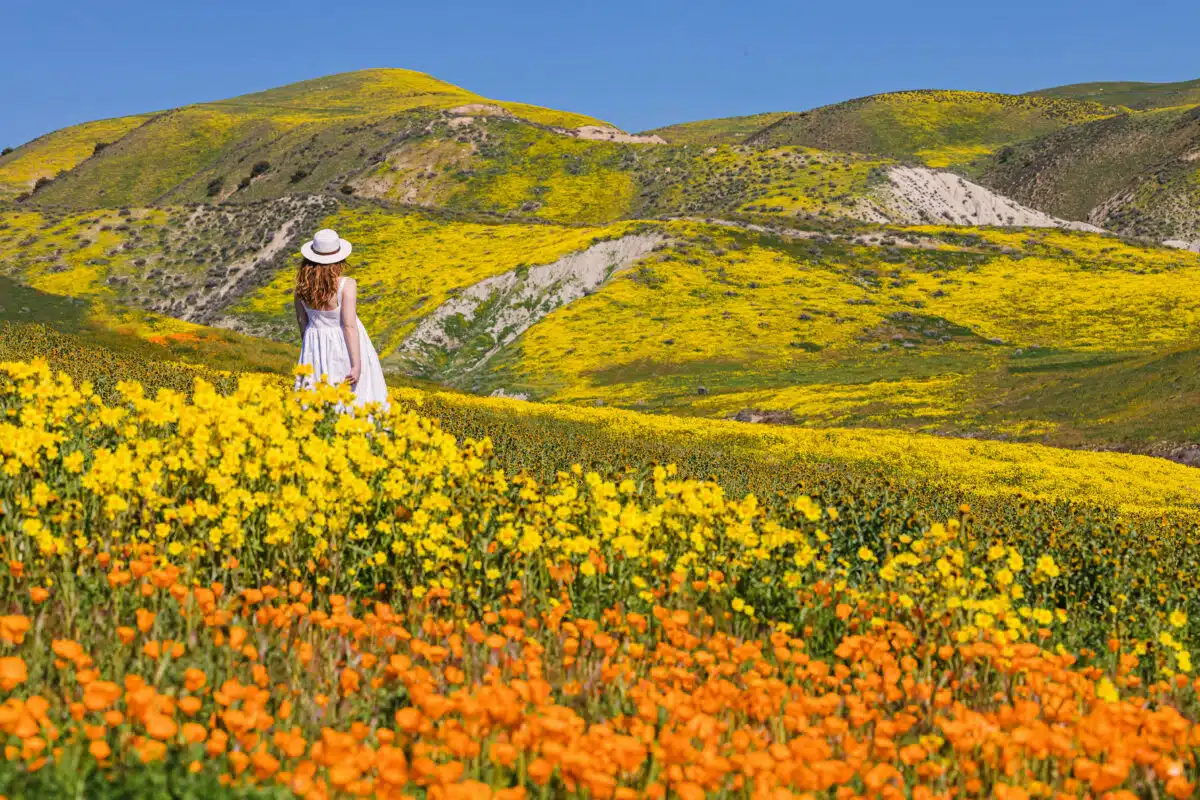
“The Wood Sorrel” by John Harris
I CANNOT see thee by the meadow wicket
With thy green leaves outspread,
Or smiling shyly in the solemn thicket
With elm trees overhead,
But what thou comest in my father’s holding
Beside a broken stile,
In all thy mystic loveliness unfolding,
Where the fern – fairies smile.
How prized thy leaves when boyhood’s rainbow glitter
Hung o’er the fields of light,
Ere I had sipped the Marah waters bitter
Of murky care and blight!
Even then I watched thy triple leaflets closing
If but a cloud arose,
And marked thee on thy evening couch reposing
Beneath the woodland rose.
And now I cannot see the small WOOD SORREL
Beside the fragrant thyme,
But what old days, half hid in fading laurel,
Come in my homely rhyme.
“Youth—The Time of Flowers” by Bruce
The lily of the vale, of flowers the queen,
Puts on the robe she neither sewed nor spun;
The birds on ground, or on the branches green,
Hop to and fro, and glitter in the sun.
Soon as o’er eastern hills the morning peers,
From her low nest the tufted lark upsprings;
And, cheerful singing, up the air she steers;
Still high she mounts, still loud and sweet she sings.
Nowis thetime for those who wisdom love,
Who love to walk in virtue’s flowery road,
Along the lovely paths of spring to rove,
And follow Nature up to Nature’s God.
“Snowdrops” from Dove on the Cross
My Snowdrops, oh my Snowdrops!
How gaily, every spring,
They covered all our mossy banks
With many a fairy ring;
How delicately beautiful
Their little blossoms were,
Like tiny spirits hovering
Upon the chilly air.
My Snowdrops, oh my Snowdrops!
I shall never, without pain,
See your little fragile blossoms
In the early spring again:
For my only one, my loved one,
Afragile thing like you,
Both came to me and left me
In the spring, as Snowdrops do.
Like the crimson light of sunset
Streaming through a wreath of snow,
So soft upon her pallid cheek
The hectic fever’s glow.
As fading Snowdrops gently sink
Upon the cold earth’s breast,
So gently sank my holy child
To her eternal rest.
My only one, my loved one!
I shall see her yet again,
When I too am transplanted
From this world of grief and pain.
Her Snowdrops, oh ! her Snowdrops,
Shall be ever dear to me;
I will cherish them as emblems
Of her immortality.
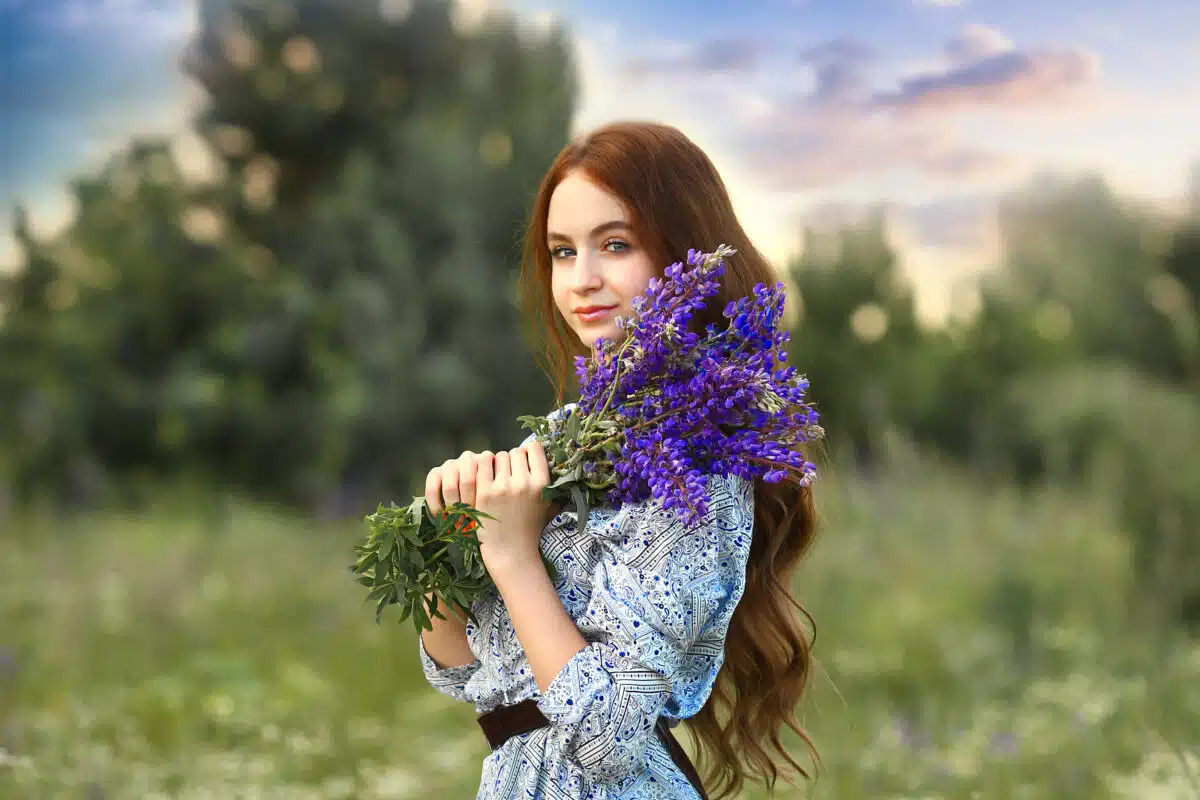
“Violets” by Charles William Hubner
Visible spirits of light and hope!
Beautiful bairns of the sky!
Bless’d be the elfin, whose music broke
The sleep of your azure eye,
When first the sighing south-wind woke,
And spring was nigh.
Morning-star heralds of dawning spring!
Sprites ofthe young years’ dream!
Not in the clamorous city’s din
The realm of the Titon, steam
Your fragrance scents the zephyr’s wing
Your bright eyes beam;
In the deep shadow of woodland glens;
On the bright brink of the rills;
Decking with azure and golden chains
The breasts of the royal hills
‘Tis there ye sweetest charm the sense,
Fair miracles!
Hidden, like pearls in the ocean caves,
Slowly your beauties expand;
Dreaming, though wildly the winter wind raves,
Of spring, and her magic wand,
Whose touch can change a waste ofgraves
To Fairy-land!
“The Seasons. A Cantata” by Charles William Hubner
SPRING.
I am Spring, merry Spring!
Daughter of the sun and earth;
Happy creatures everywhere
Hail my heavenly birth.
Forests murmur, fountains sing,
Rivers tuneful flow,
And the smiling hours crown me
Queen of all below!
SUMMER.
Wreathed with roses and fair lily- bells,
Crowned with a star-crown of dew,
Singing glad songs in the echoing dells,
Summer brings blessings to you!
Under the pale, golden light of my moons,
Gather, with song and with glee;
Beauty and love should be crown’d with my blooms,
Crown them in honor of me!
AUTUMN.
The pomp of purple hills, the joy
Of the harvest field is mine;
How sweet the joy that can not cloy,
But makes the soul divine!
I robe the world in garments rare,
No monarch such hath worn ;
And love to wake the dreaming air
With the hunter’s merry horn.
Oh, hark ! oh, hear ! what music clear
On winds of morning floatetl. near
The echoes call ! I can not stay;
Hark ! tally ho ! away, away!
WINTER.
I have come, O, earth ! to bind thee
In the Loudage of my wrath;
I have come, again to blind thee
With a slumber, dark as death;
Howling storms shall desolate thee,
Mighty whirlwinds rack thy frame,
Till the very skies upbraid me
With their tears of icy rain—
But in vain ;
I am winter, fearful winter,
And I glory in my reign!
“Invocation to Spring” by Charles William Hubner
COME, lovely Spring ! unveil thy radiant eyes,
And with a look give blessings to the world!
The cruel bondage of the winter-king
Shake from thy dainty limbs, and bid the hours
Proclaim thee queen of the rejoicing earth,
And strew thy path with roses.
Sullen storms
Shall sink disarm’d before thy fairy feet,
And change their wrath to lute-like murmuring ;
The clouds shall fill thy chalice with sweet dews,
The valleys sing thy praises, and the hills
Uplift their foreheads to the golden sky
In silent adoration.
Come, oh, come!
The pallid primrose, and the violet,
Hid in the gracious bosom of the earth,
Are dreaming of thy coming ; woodland rills
Run seaward merrily, with murmur’d hints
Of stately lilies soon to bow their heads
And kiss the crystal waters. Every tree
Breathes legends of thy beauty, and awaits
The gadding winds, that lag on orient scas,
Impatiently for tidings of thy coming ;
Every star, that through the glimmering night
Walks in majestic glory, seems to wear
An added jewel in its blazing crown,
To give thy presence greeting ; and the sun, —
Who fled in haste the winter’s sullen skies,
Unscepterd, impotent-sinks to repose
Like some proud monarch, robed in purple splendor.
But dearer still than all, oh, beauteous spring,
The tuneful homage of all gentle hearts!
Gaunt poverty, whose oft recurring tears
Flow but to freeze unheeded on the cheek ;
Sickness, and care, of whom the whistling winds
Through winter’s riot made sad mockery;
All these shall hail thy coming with delight,
Ineffable save in the speaking eye,
And the unconscious flushing of the cheek
The soul’s impassioned language; —thou, in these
Shalt see the triumph of thy loveliness,
And feel the gladness that thy coming brings.
Then shall effulgent Love, the heavenly maid!
In dreamful mood, with eyelids scarce unclosed,
Tracing the windings of some lonely dell
Enwreathe her golden locks with festal flowers;
Or, by some fountain in dim woods reclined,
Breathe her entrancing raptures in thine ear
And paint thy skies with visions.
Oh, descend,
Immortal spirit of the beautiful!
And when thy silver pinions, rosy tipp’d,
Are folded on the fair world’s swelling breast,
My heart shall seek sweet counsel from thy lips,
And tune its chords in harmony with thine.
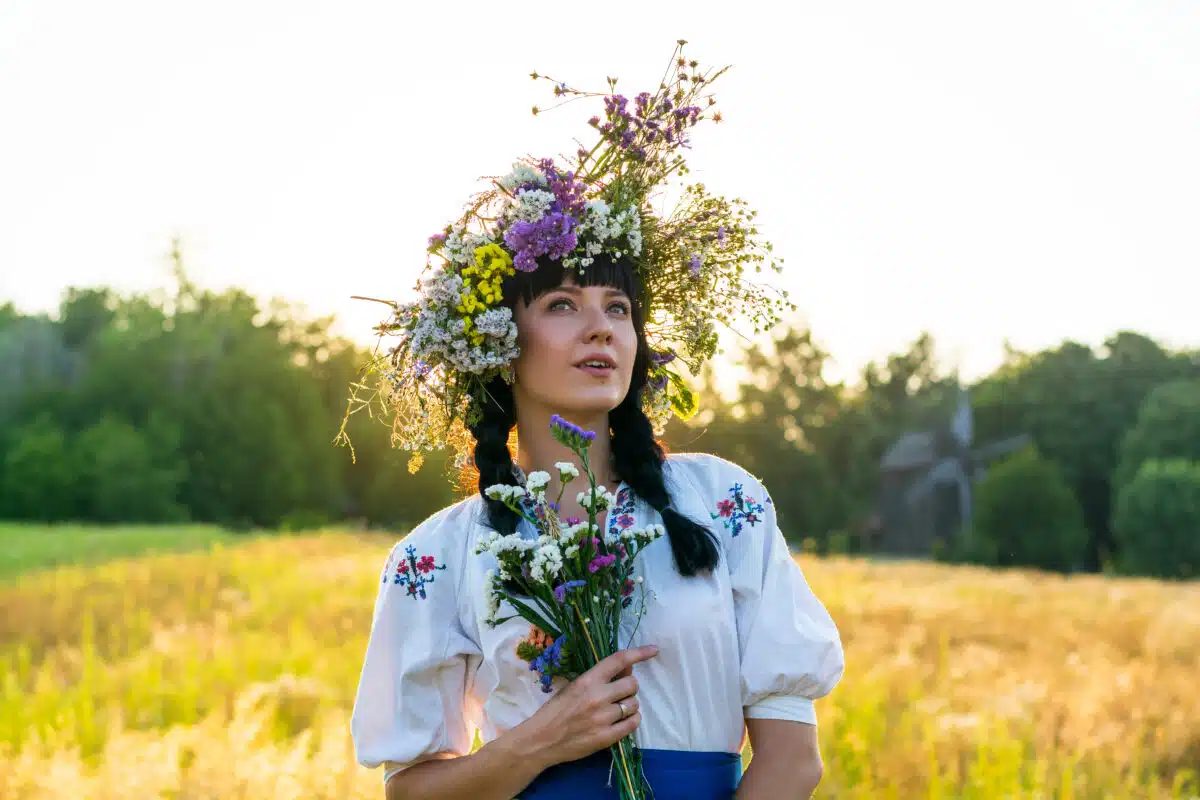
“Modest, Sweet, Wild Flower” by Jane Sarson Cooper Ingham
OH! who’d affect in idle scorn
To spurn the fairy dower,
That Earth has for her poorest born
The modest, sweet, wild flower?
Does it not happy times bring back,
When garden-flowers forbidden,
Wegrieved not ; but on sunny track,
The wildings sought unchidden?
We sought them on the moorland free,
And ‘ neath the stunted heather,
We found them growing cosily,
Untamed by wintry weather.
We scrambled up the wooded height
Thro’ ” brambly wildernesses ;”
Nor cared to clasp those treasures bright,
For bruises or torn dresses.
We bore them to the lowly bed
Where lay the Child of Sorrow;
And said to soothe the aching head,
” We’ll bring you more to-morrow. “
We wreathed our little playmate belle,
And called her ” Queen of Fairies ;’
No little dame could look more “swell,”
In Fashion’s late vagaries.
We twin’d them thro’ our own light curls,
And walked like ” peacocks haughty;
The vanity of jewelled girls
Was not more weak and naughty.
Then let them growby cottage wall,
And in the thymy hedges;
And flourish near the waterfall,
Amid the rustling sedges.
“But here a wilding plant doth shoot
In Poesy’s trim bower! ”
“Ah! Be not angry! Spare the root,
Whence may spring a fairer flower.”
“The Deity” by Joseph H. Butler
The wise of every age and clime,
Acknowledge one supreme
And far-pervading Power, who lives
In valley, hill , and stream!—
Lives in the stream that glides along
Its sweet and lowly bed,
Or thunders in the cataract,
With flashing foam, and dread!—
Inspires the playful lambs to bleat,
In meadows fresh and bright,
Or wakes the slumbering lioness
In Afric’s sultry night—
Paints the gay butterfly with hues
A queen might proudly wear,
Or scales the untrodden rocks, and plants
The eagle’s eyrie there!—
Blooms in the lovely meadow-flower,
Scenting each breeze that blows—
Fashions the fragrant lily’s bell,
Or paints the blushing rose!
His path is high among the stars,
When Heaven is deeply blue,
And when the lightning’s flaming brands
Break the thick darkness through!
On Summer eve his voice is heard,
Responsive in the grove,
And in the black -wing’d thunder- clap ,
He, awful, speaks above!
The mighty fountains of the sun
His boundless power supplies—
He lights the burning star of eve,
And bids the moon arise;—
In majesty and might supreme,
He rules for aye above;
And be it joy to us, to know
He is a God Of Love!
From “The Seminole’s Death” by Marguerite St. Leon Barstow Loud
The sun rose in a summer sky,
And with his broad , unclouded eye,
Looked down upon a scene more fair,
More calmly beautiful, than aught
That ever blest a poet’s dreams;
The lofty forest tops had caught
And glittered in the crimson beams,
That burnished each tall column there,
And, through the far dim vistas, streamed
With growing splendor, till they seemed
Like the illuminated aisles
Of richly carved cathedral piles.
Beneath , wild – flowers of every hue
A tesselated pavement spread,
And fragrance from the dew-gemmed cups
Like incense on the air was shed;
While, through the pine-tree boughs, a tone
Thrilled like an organ’s dying moan.
Soft murmuring like “a thing of life,”
The Withlacoochee rolled,
Rejoicing in the pride and strength
Of freedom uncontrolled.
The sunlight on its waters flashed,
Till every tiny wave was dashed
With hues of liquid gold.
As droops the fringe o’er beauty’s eye
Of silken lashes gracefully,
As if to veil the dazzling light
Beneath , which else had beamed too bright,
A softened shadow o’er the stream
The silver willows flung;
And from each slender dancing spray,
The trumpet vine, in rich array,
Its scarlet blossoms hung.
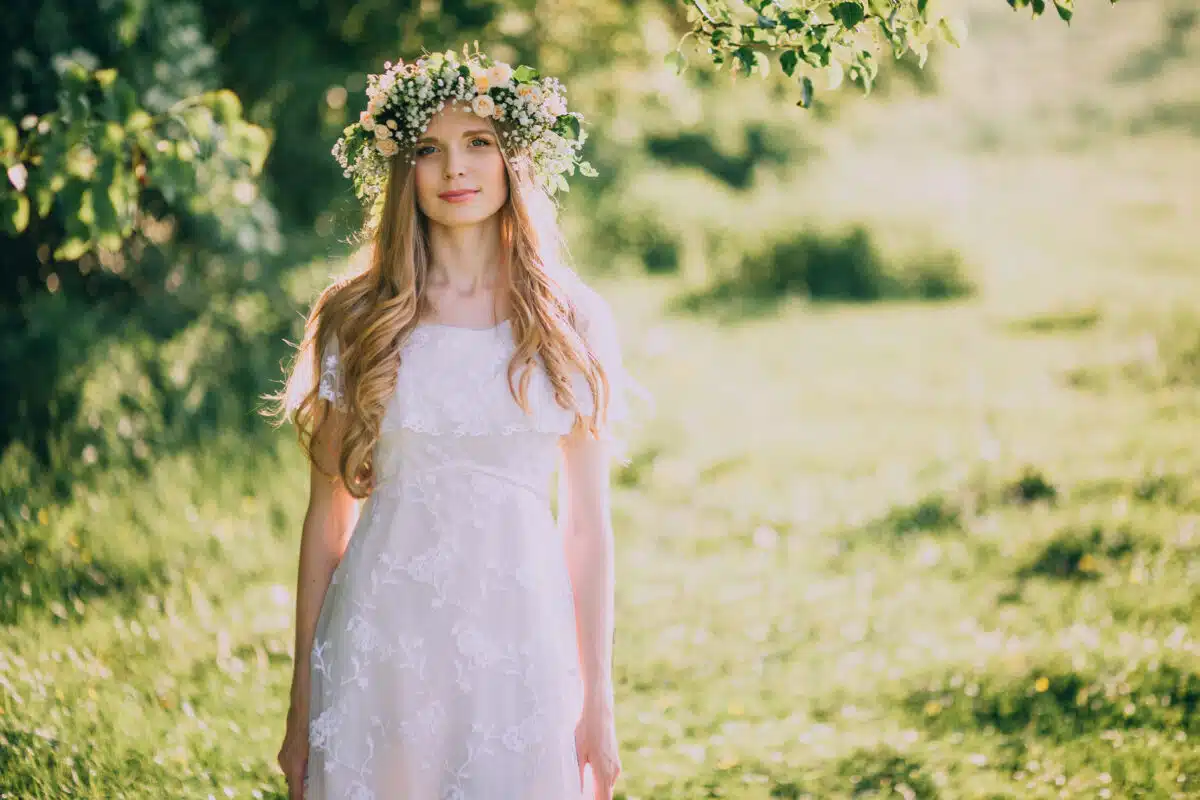
“On a Drawing of a Wild-Flower” by Marguerite St. Leon Barstow Loud
Deep in the wild-wood wandering,
I found a sweet, though nameless flower;
A fragrant, bright and lovely thing,
As ever graced a garden bower.
Its home was in a quiet spot,
Where fairies might delight to dwell,
By all the world unseen, unsought;
And so I named it Fairy Dell.
A carpet of the richest green
Upon the little glade was spread,
And o’er its dewy velvet sheen
Tall forest trees soft twilight shed.
And there the beauteous flow’ret sprung
Upon its green and slender stalk,
And there its fragrant breath was flung,
To glad me in my lonely walk.
Then fancy whispered oft, perchance,
Upon a moonlight night of spring –
Here might the woodland fairies dance
Around it , in a merry ring.
I would have stolen the little flower,
And borne it to my home away,
To bloom within my garden bower,
Where I might see it, day by day;
It might have been the sighing breeze,
Or the low warble of a bird,
Far up among the leafy trees,
That softly murmuring I heard;
But something near me seemed to say,
So mournfully, I could but weep —
“ Here let me live my summer day,
And then among my kindred sleep.”
Not vainly did that fond prayer come;
For well I know, when forced to leave
The one bright spot,- our childhood’s home,
How long and deep the heart must grieve.
And so I left it where it grew;
To that wild – flower, so full of grace,
In the imperfect sketch I drew ,
Some faint resemblance you may trace .
“The Gray Heart” by Marguerite St. Leon Barstow Loud
The flowers —the myriad flowers of earth
Are blooming round me now,
And Summer’s soft and fragrant gales
Pass sweetly o’er my brow;
Yet as of yore no gush of joy
Awakes within my heart,
For in the glorious summer- time
My spirit hath no part.
A sound of melody goes up
From every forest bird ,
And music from the greenwood boughs,
By gentle breezes stirred ;
A thousand tones from hill and dale
Swell high the choral strain ,
But unto joyous sounds my soul
Respondeth not again.
For wildly o’er my life hath swept
The withering storm of care;
Each fount is sealed, each flower is seared ,
And set in deep despair
Each star of hope that brightly beamed
Upon its opening day ;
No more for me spring roses bloom,
Or summer breezes play!
The fount of joy, once deep and strong,
Hath not been chilled by time ;
Life’s frost hath not yet touched its flowers —
My years are in their prime;
My footsteps falter not with age,
Along their weary way —
Unsilvered are my raven locks,
But, oh ! myту heart is gray!
From “Lines” by C. Augustus Price
I’ve heard of a beautiful land,
That’s shrouded in lovely flowers;
And the angels wander in bands
In lovely floral bowers.
‘Tis said that their music is sweet,
And angels their listeners are;
That they linger, and often do meet,
And gaze on their faces so fair.
Those beings are pure as the flowers,
That live on the dew from above;
And their boquets, beneath their sweet bowers,
Are a feast-are a banquet of love.
But they say, in this romantic vale,
There’s a boquet so sweet and so fair,
That the spirit of flowers will fail
To pluck the boquet which grows there.
And they say, ‘ mid this musical band,
There’s a melody lies yet unstrung;
That the Tubal once touched by a chance,
But left its soft music unsung.
That boquet must be plucked by your hand,
For to you it will surely belong;
For they say ’tis the prize in this land
To the one that surpasses in song.
Short Poems About Wildflowers
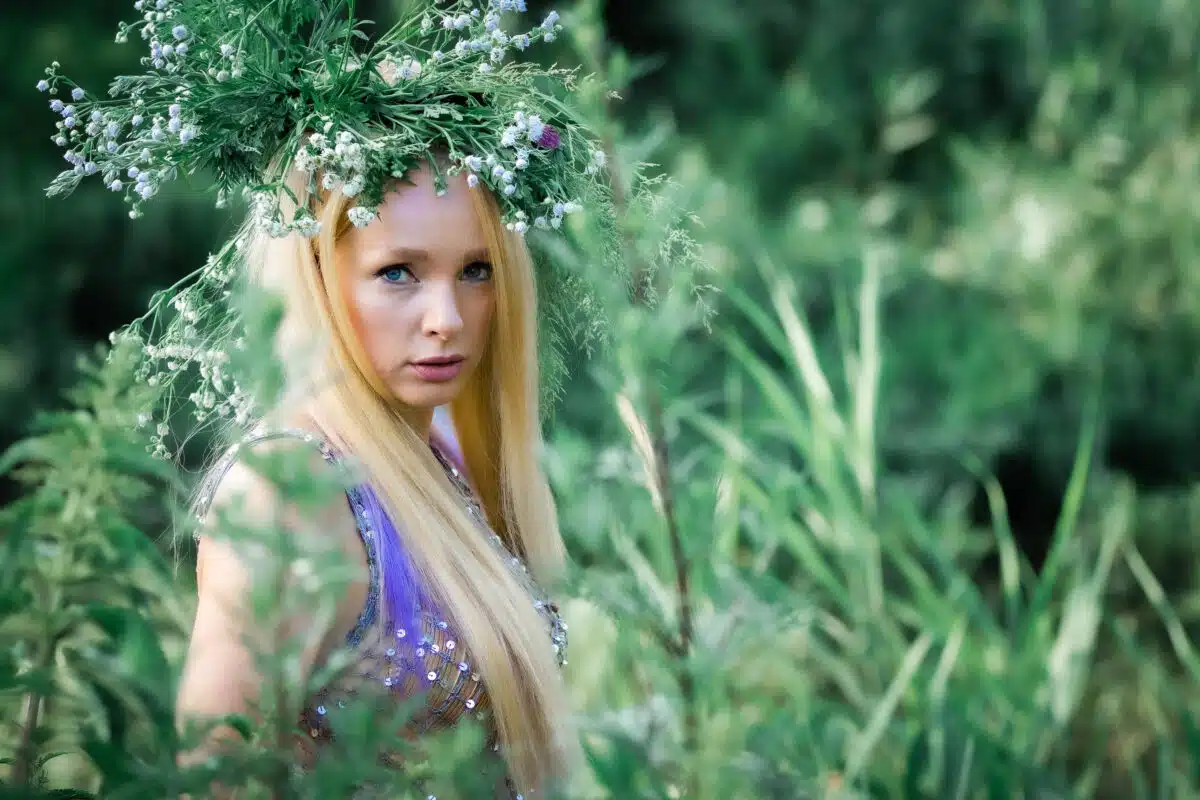
“Autumn Wildflowers” by Madison Cawein
Like colored lanterns swung in Elfin towers,
Wild morning-glories light the tangled ways,
And, like the rosy rockets of the Fays,
Burns the sloped crimson of the cardinal-flowers.
“The Snow-Blossoms” by Clark Ashton Smith
But yestereve the winter trees
Reared leafless, blackly bare,
Their twigs and branches poignant-marked
Upon the sunset-flare.
White-petaled, opens now the dawn,
And in its pallid glow,
Revealed, each leaf-lorn, barren tree
Stands white with flowers of snow.
“The Snowdrop” by John Clare
Sweet type of innocence, snow-clothed blossom,
Seemly, though vainly, bowing down to shun
The storm hard-beating on thy wan white bosom,
Left in the swail, and little cheer’d by sun;
Resembling that frail jewel, just begun
To ope on vice’s eye its witcheries blooming,
Midst all its storms, with little room to shun–
Ah, thou art winter’s snowdrop, lovely Woman!
In this world dropt, where every evil’s glooming
With killing tempests o’er its tender prey,
Watching the opening of thy beauties coming,
Its every infant charm to snatch away:
Then come the sorrows thou’rt too weak to brave,
And then thy beauty-cheek digs ruin’s early grave.
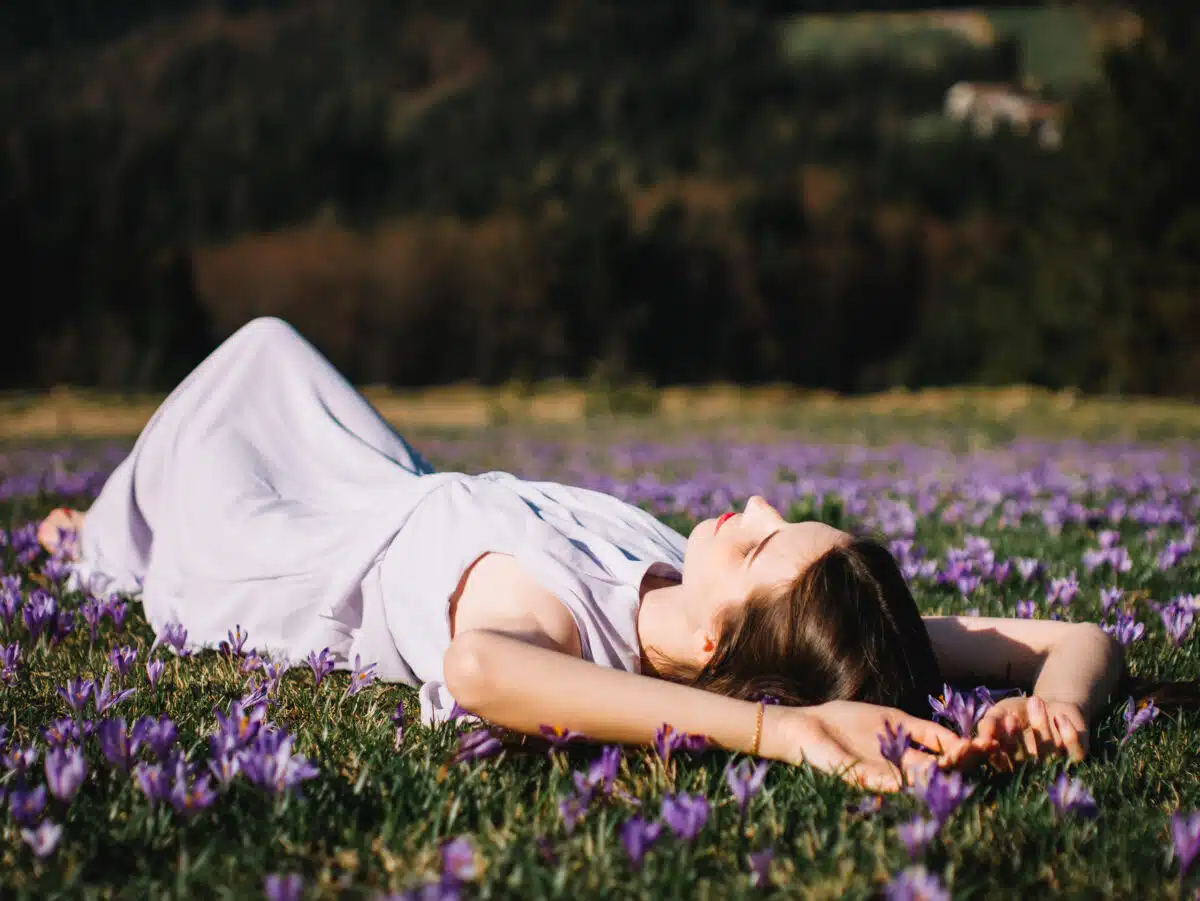
“Spring” by Lizzie Lawson
The tiny crocus is so bold
It peeps its head above the mould,
Before the flowers awaken,
To say that spring is coming, dear,
With sunshine and that winter drear
Will soon be overtaken.
“Blue Flower” by Richard Le Gallienne
Blue flower waving in the wind,
Say whose blue eyes
Lift up your swaying fragile stem
To the blue skies.
Is she a queen that lies asleep
In a green hill,
With all her silver ornaments
Around her still?
Or is she but a simple girl,
Whose boy was drowned,
In some cold sea, some stormy morn,
On some blue sound?
“Bluebells” by Walter De la Mare
Where the bluebells and the wind are,
Fairies in a ring I spied,
And I heard a little linnet
Singing near beside.
Where the primrose and the dew are –
Soon were sped the fairies all:
Only now the green turf freshens,
And the linnets call.
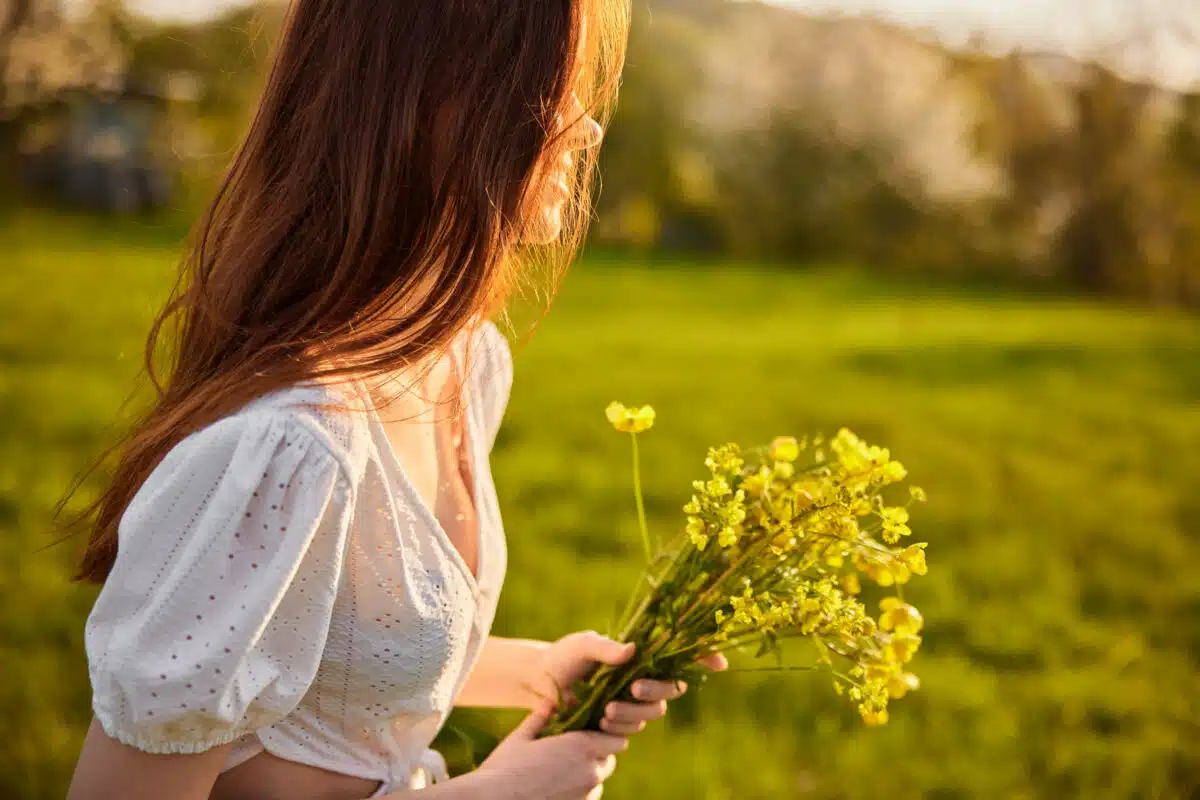
“Rondeau” by Thomas Bailey Aldrich
THE Summer comes and the Summer goes;
Wild-flowers are fringing the dusty lanes,
The swallows go darting through fragrant rains,
Then, all of a sudden — it snows.
Dear Heart, our lives so happily flow,
So lightly we heed the flying hours,
We only know Winter is gone — by the flowers,
We only know Winter is come — by the snow.
“Daffodils” by Herrick
FAIR daffodils, we weep to see
You haste away so soon;
As yet the early-rising sun
Has not attained his noon:
Stay, stay,
Until the hastening day
Has run
But to the even-song ;
And having prayed together, we
Will go with you along!
We have short time to stay as you;
We have as short a spring;
As quick a growth to meet decay,
As you or anything:
We die,
As your hours do; and dry Away
Like to the summer’s rain,
Or as the pearls of morning dew,
Ne’er to be found again.
“The Daisy” by Dr. Good
NOT worlds on worlds in phalanx deep,
Need we to prove a God is here;
The daisy, fresh from Nature’s sleep,
Tells of His hand in lines as clear.
For who but He who arched the skies,
And pours the day-spring’s living flood,
Wondrous alike in all He tries,
Could raise the daisy’s purple bud!
Mould its green cup, its wiry stem,
Its fringed border nicely spin,
And cut the gold-embossed gem,
That, set in silver, gleams within!
And fling it, unrestrained and free,
O’er hill and dale, and desert sod,
That man, where’er he walks, may see
In every step the stamp of God.
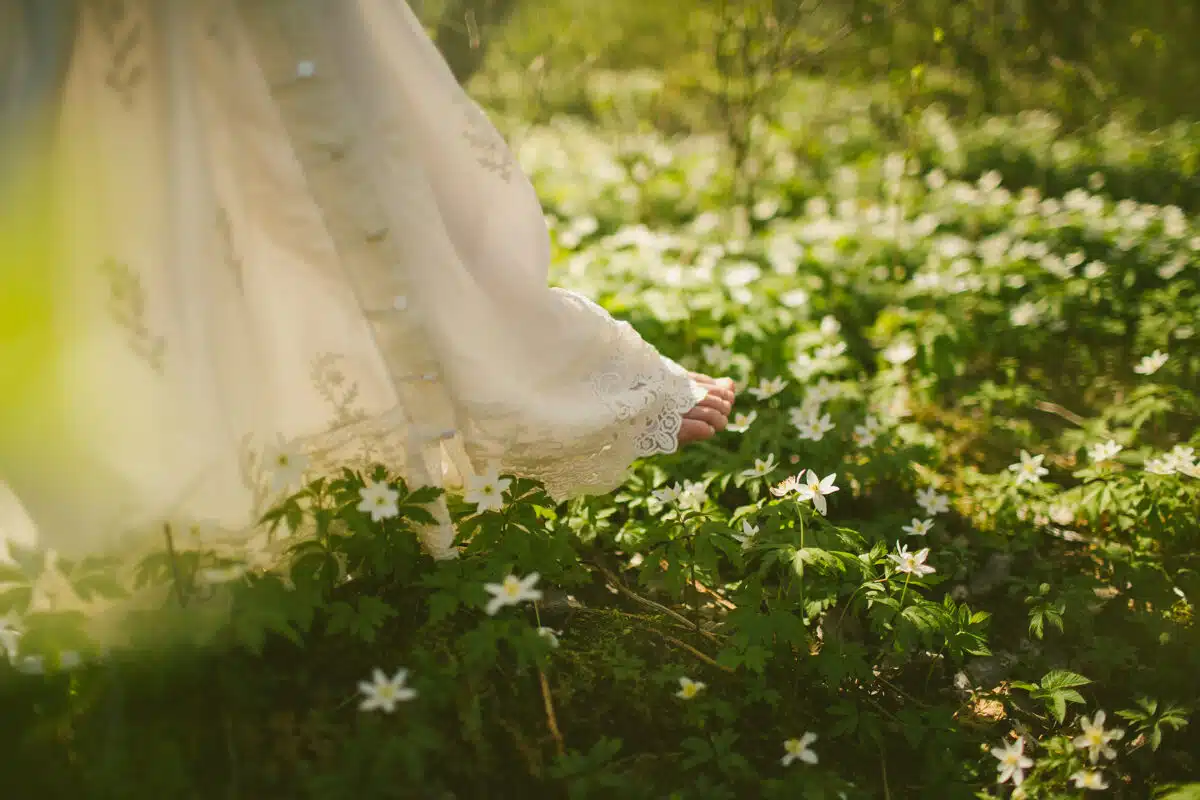
“The Wind-Flower” by Jones Very
THOU lookest up with meek, confiding eye,
Upon the clouded smile of April’s face,
Unharm’d though Winter stands uncertain by,
Eyeing with jealous glance each opening grace.
Thou trustest wisely! in thy faith array’d,
More glorious thou than Israel’s wisest king;
Such faith was His whom men to death betray’d
As thine who hearest the timid voice of Spring,
While other flowers still hide them from her call
Along the river’s brink and meadow bare.
Thee will I seek beside the stony wall,
And in thy trust with childlike heart would share,
O’erjoy’d that in thy early leaves I find
A lesson taught by Him who loved all human kind.
“The Aconite” by H. G. Adams
THOU Comest, early Aconite,
With blossoms fair, to deck the ground,
When few that in such things delight
May walk where thou art found ;
Content to beautify the earth,
Though none thy modest charms may scan,
And die, as thou hast sprung to birth,
Unnoted by proud man. H. G. Adams.
“The Amaranth” by Milton
To the ground
With solemn adoration down they cast
Their crowns inwove with Amarant and gold, —
Immortal Amarant, a flower which once
In Paradise, fast by the tree of life,
Began to bloom ; but soon for man’s offence
To heaven removed, where first it grew, there grows,
And flowers aloft, shading the fount oflife,
And where the river of bliss through midst of Heaven
Rolls o’er Elysian flowers her amber stream ;
With these, that never fade, the spirits elect
Bind their resplendent locks enwreathed with beams,
Now in loose garlands thick thrown off ; the bright
Pavement, that like a sea of jasper shone,
Empurpled with celestial roses, smiled.
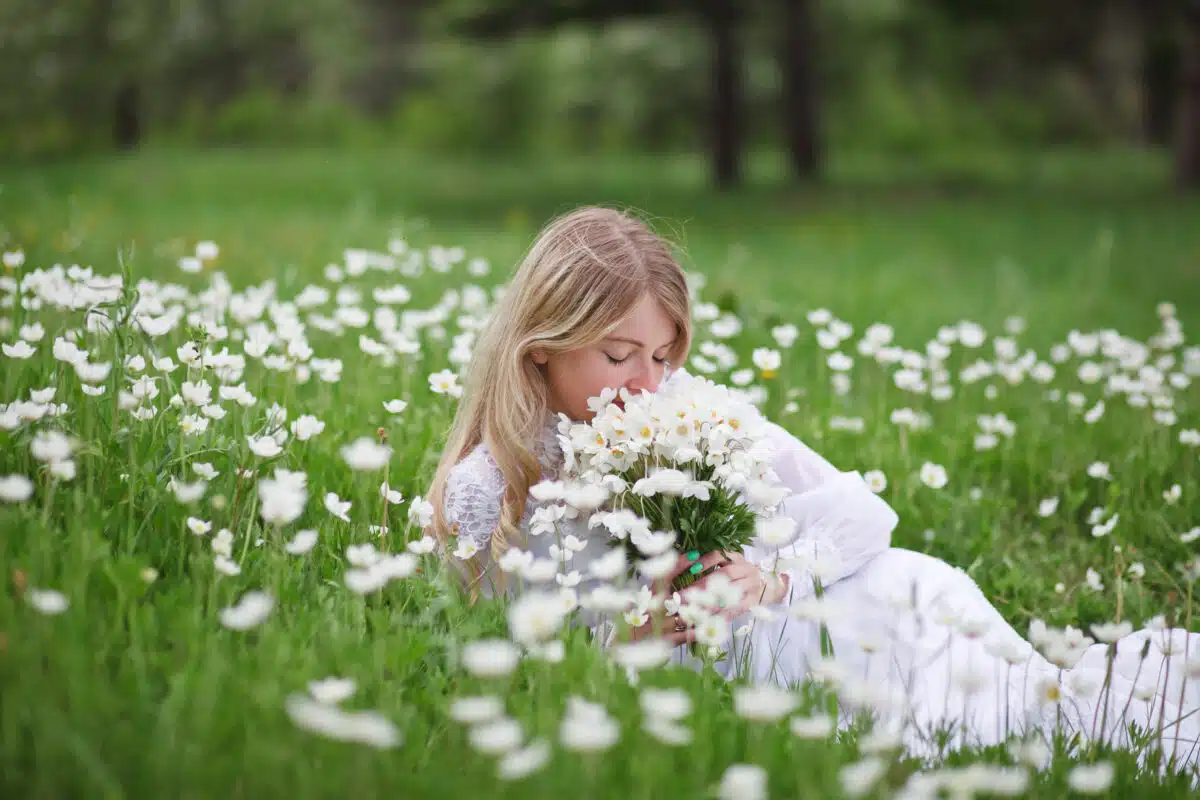
“The Anemone” by Charlotte Smith
THERE, thickly strewn in woodland bowers,
Anemones their stars unfold;
There spring the Sorrel’s vernal flowers;
And, rich in vegetable gold,
From calyx pale the freckled Cowslips born,
Receive in jasper cups the fragrant dews of morn.
“The Broom” by Burns
THEIR groves of sweet myrtle let foreign lands reckon,
Where bright- beaming summers exalt the perfume;
Far dearer to me is yon glen o’ lone breckan,
With the burn stealing down through the lang yellow Broom.
“The Coltsfoot” by Anon
WHEN all other scents have fled,
In the winter months so dreary,
When all other flowers are dead,
And the heart grows cold and weary,
Longing for the balmy hours
Of the lagging, tardy spring
Longing for the leafy bowers,
And bright creatures on the wing.
Tussilago, then ‘ tis sweet
To inhale thy soft perfume,
And thy lilac blooms to greet
‘Mid surrounding wintry gloom.
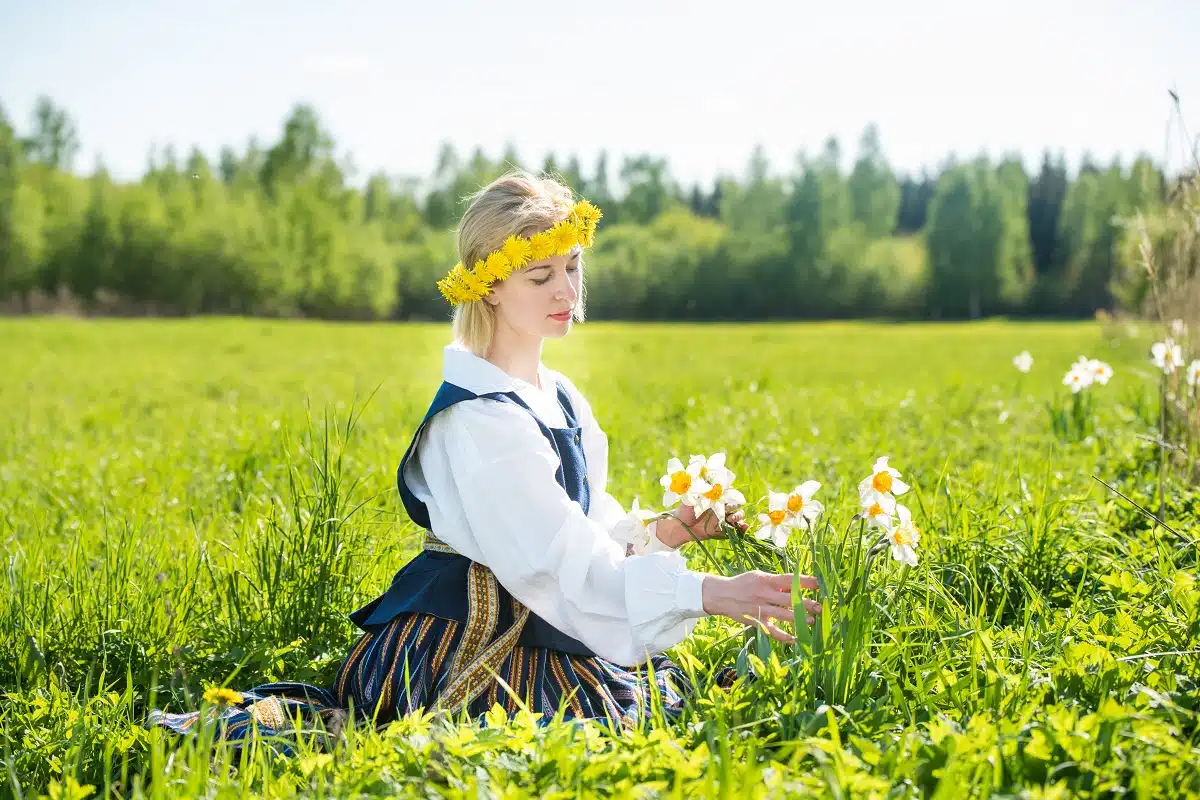
“The Daffodil” by Shakespeare
OH, Proserpine.
For the flowers now that, frightened, thou lett’st fall
From Dis’s waggon! Daffodils
That come before the swallow dares, and take
The winds of March with beauty!
“The Furze” by Wordsworth
ON me such beauty summer pours,
That I am cover’d o’er with flowers ;
And when the frost is in the sky,
My branches are so fresh and gay,
That you might look at me and say,
“This plant can never die.”
“The Groundsel” by Hurdis
I LOVE to see the little goldfinch pluck
The Groundsel’s feathered seed, and twit, and twit,
And then, on bower of apple-blossoms perch’d,
Trim his gay suit , and pay us with a song:
I would not hold him prisoner for the world.
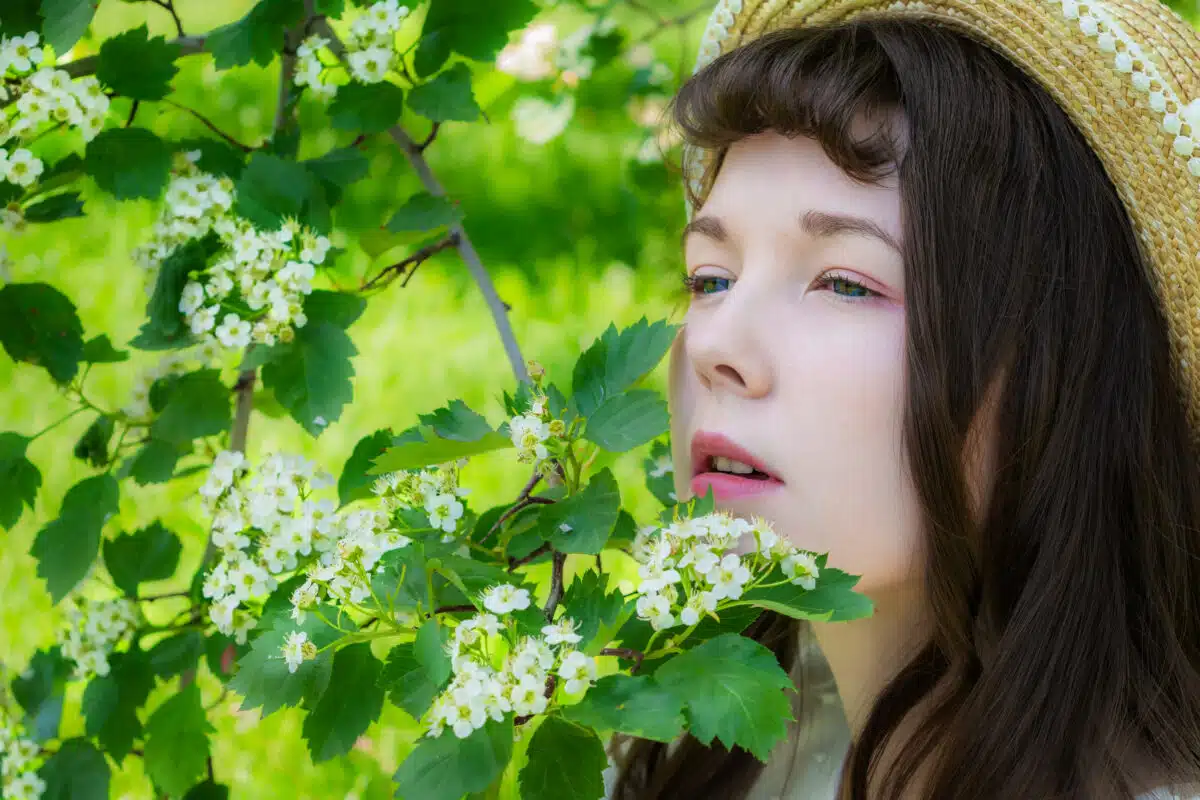
“The Hawthorn” by W. Browne
AMONGST the many buds proclaiming May,
Decking the fields in holiday array,
Striving who shall surpass in bravery,
Mark the fair blooming of the Hawthorn tree,
Who, finely clothed in a robe of white,
Feeds full the wanton eye with May’s delight;
Yet for the bravery that she is in
Doth neither handle card nor wheel to spin,
Nor changeth robes but twice ; she is never seen
In other colours than in white or green ;
Learn then content, young shepherd, from this tree,
Whose greatest wealth is nature’s livery.
“The Lilies of the Field” by Hemans
FLOWERS! when the Saviour’s calm benignant eye
Fell on your gentle beauty; when from you
That heavenly lesson for all hearts He drew,
Eternal, universal, as the sky;
Then, in the bosom of your purity,
Avoice He set as in a temple-shrine,
That life’s quick travellers ne’er might pass you by
Unwarned of that sweet oracle divine.
And though too oft its low, celestial sound,
Bythe harsh notes of work-day care is drowned,
And the loud steps of vain, unlistening haste ;
Yet the great ocean hath no tone of power
Mightier to reach the soul in thought’s hushed hour,
Than yours, meek lilies, —chosen thus and graced.
“The Lily” by Keats
ABOVE his head
Four lily stalks did their white honours
wed,
Tomakea coronal, and round him grew
All tendrils green, of every bloom and
hue.
Together intertwined and trammell’d
fresh:
The vine of glossy sprout—the ivy mesh,
Shading its Ethiop berries—and
woodbine,
Of velvet leaves and bugle blooms
divine—
Convolvulus in streaked vases blush—
The creeper mellowing for an autumn
flush—
And Virgin’s Bower trailing airily,
With others of the sisterhood.
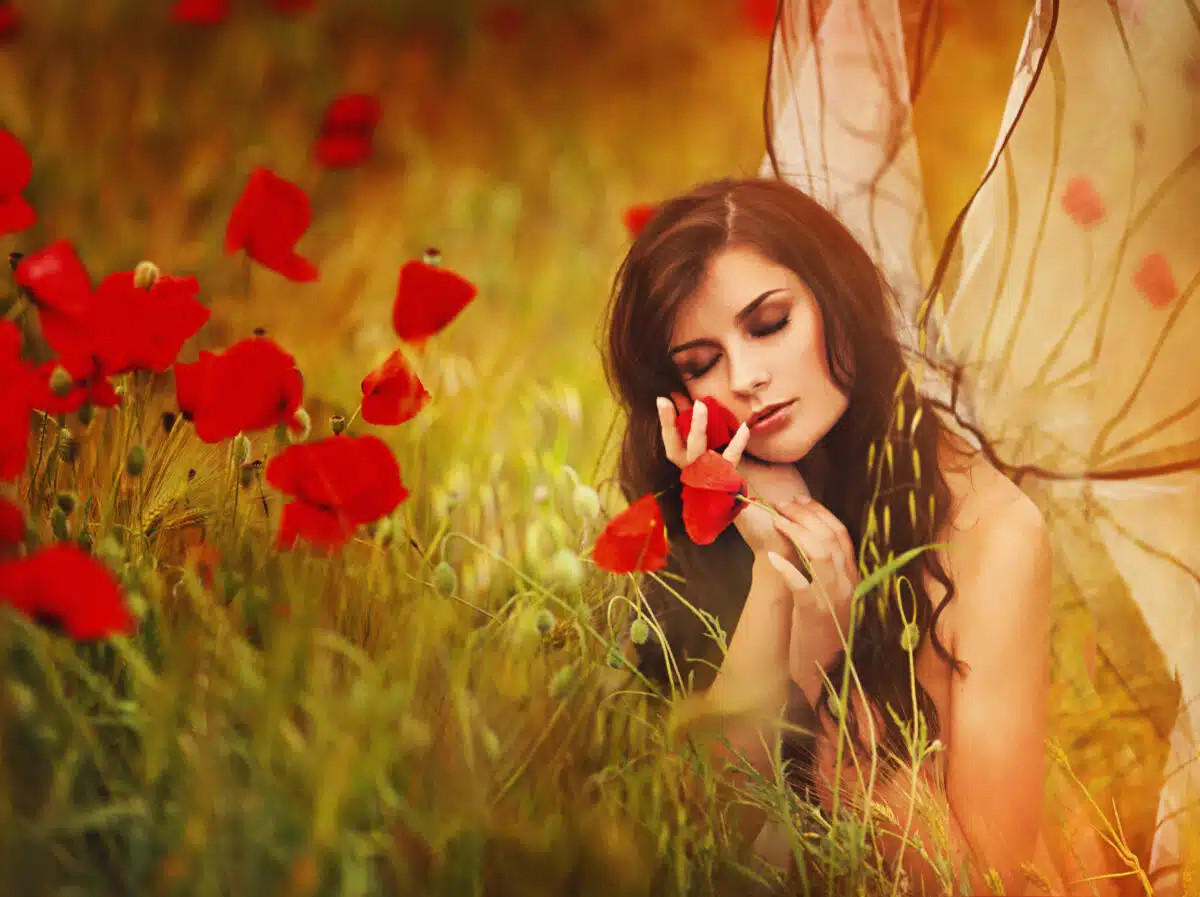
“The Poppy” by H. G. Adams
I WANDER’D forth one August morn,
When skylarks trilled their matin tune,
Beside a field of waving corn,
With scarlet Poppies thickly strewn;
Where’er from out the fruitful ground
The bending stalks most thickly sprung,
There did the Poppies most abound,
And there their flaunting streamers hung:
I likened them, those Poppies red,
To Pride. My reason for’t was this
Pride e’er is gaily raimented,
And groweth most where plenty is.
“To Primroses Filled With Morning Dew” by Herrick
WHY do ye weep, sweet babes?
Can tears Speak grief in you,
Who were but born
Just as the modest morn
Teemed her refreshing dew?
Alas ! you have not known that shower
That mars a flower,
Nor felt the unkind
Breath of a blasting wind ;
Nor are ye worn with years,
Or warped as we,
Who think it strange to see
Such pretty flowers, like to orphans young,
Speaking by tears before ye have a tongue.
“Spring-Its Close” by Charlotte Smith
THE garlands fade that Spring so lately wove,
Each simple flower, which she had nursed in dew,
Anemones that spangled every grove,
The primrose wan, and harebell mildly blue.
No more shall violets linger in the dell,
Or purple orchis variegate the plain,
Till Spring again shall call forth every bell,
And dress with humid hands her wreaths again.
Ah, poor humanity ! so frail, so fair,
Are the fond visions of thy early day,
Till tyrant passion, and corrosive care,
Bid all thy fairy colours fade away!
Another May newbuds and flowers shall bring;
Ah ! why has happiness no second spring?
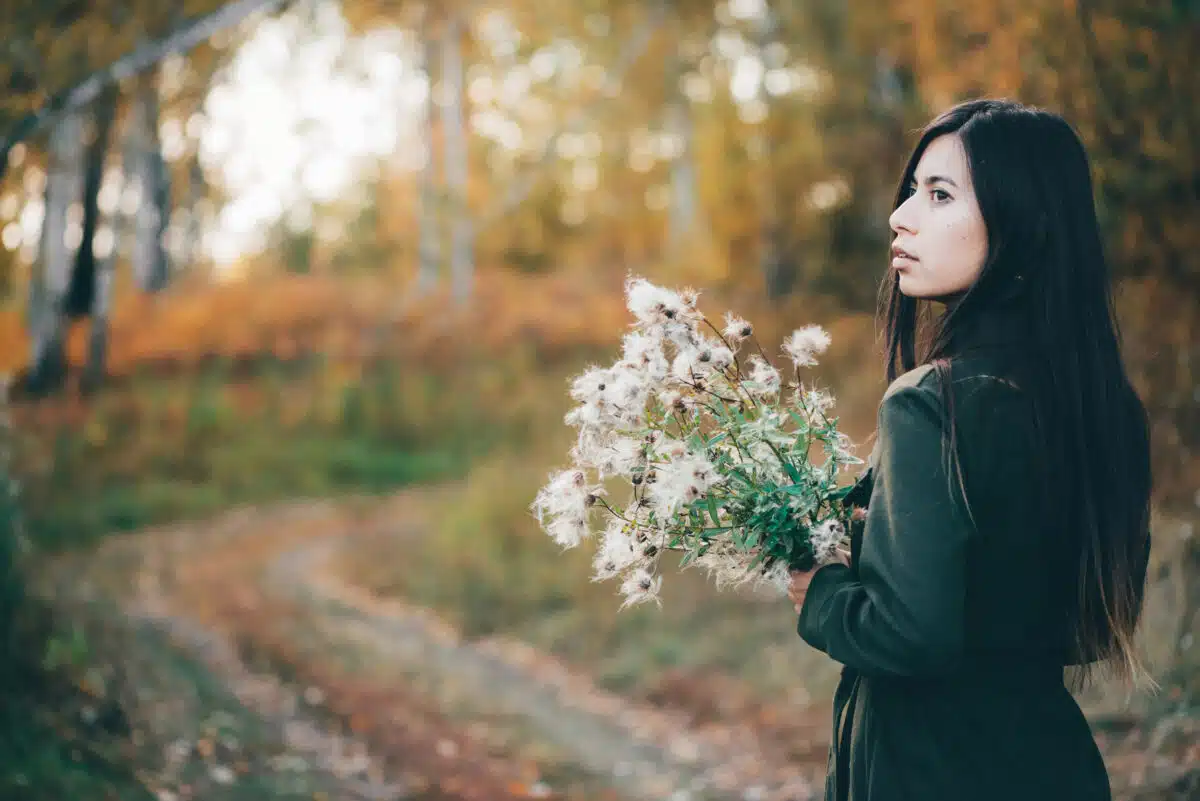
“The Thistle” by Wordsworth
AND, in our vacant mood,
Not seldom did we stop to watch some tuft
Of dandelion seed or thistle’s beard,
That skimmed the surface of the dead calm lake,
Suddenly halting now-a lifeless stand!
And starting off again with freak as sudden;
In all its sportive wanderings, all the while
Making report of an invisible breeze
That was its wings, its chariot, and its horse,
Its playmate, rather say, its moving soul.
“The Thistle” by Merritt
WHO gave the Thistle’s feather’d seed its plumes,
That, wing-like, waft it on each gentle breeze
To sterile yet to it congenial soils,
Investing them with purple beauty, rife
With fragrant treasures for the wild bee’s store?
“Violets” by F. Moultrie
UNDER the green hedges, after the snow,
There do the dear little Violets grow,
Hiding their modest and beautiful heads
Under the hawthorn in soft mossy beds.
Sweet as the roses, and blue as the sky,
Down there do the dear little Violets lie;
Hiding their heads where they scarce may beseen,
By the leaves you may know where the Violet hath been.
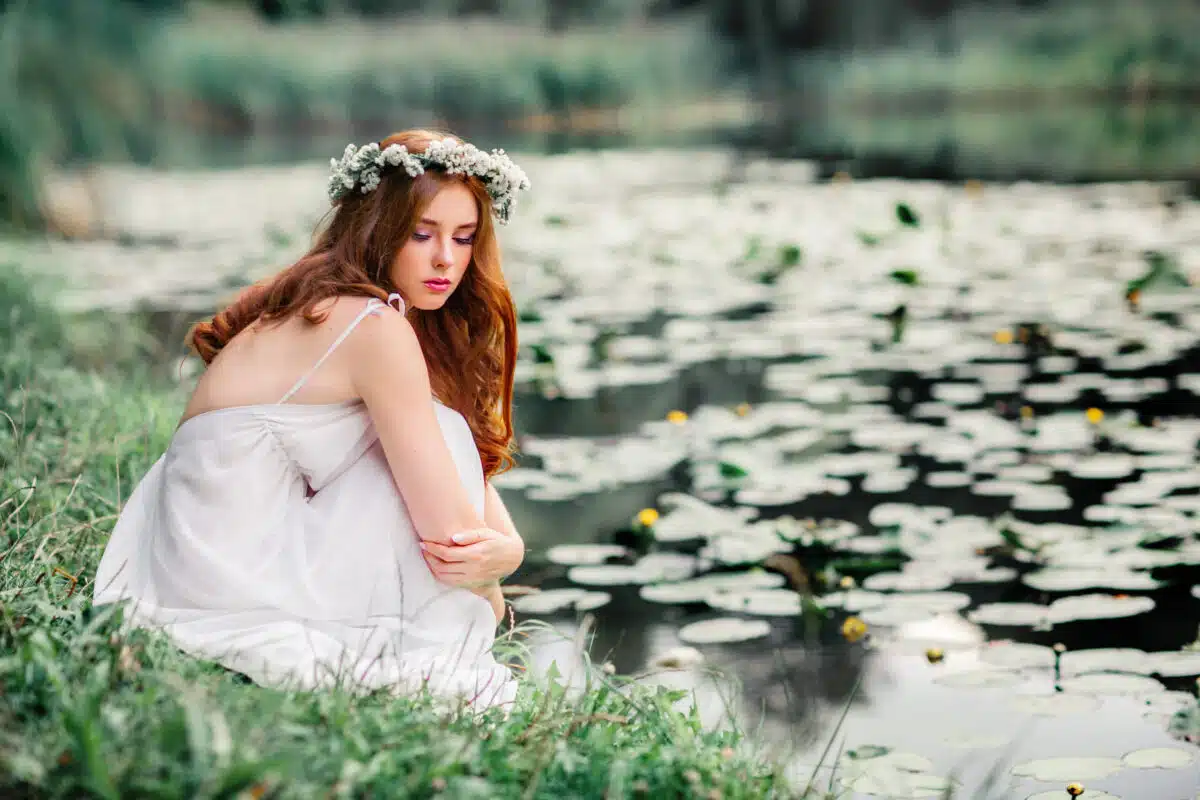
“The Water Lily” by Clare
HERE water-lilies mount their snowy
buds,
On whose broad swimming leaves
of glossy green,
The shining dragon-fly is often
seen.
“The Violet—A Type of Love” by Barry Cornwall
IT has a scent, as though Love, for its dower,
Had on it all his odorous arrows tost;
For though the rose has more perfuming power,
The Violet (haply ‘ cause ‘ tis almost lost,
And takes us so much trouble to discover)
Stands first with most, but always with a lover.
“Woodland Violet” by Sir W. Scott
THE Violet in her greenwood bower,
Where birchen boughs with hazels mingle,
May boast herself the fairest flower
In glen, or copse, or forest dingle.
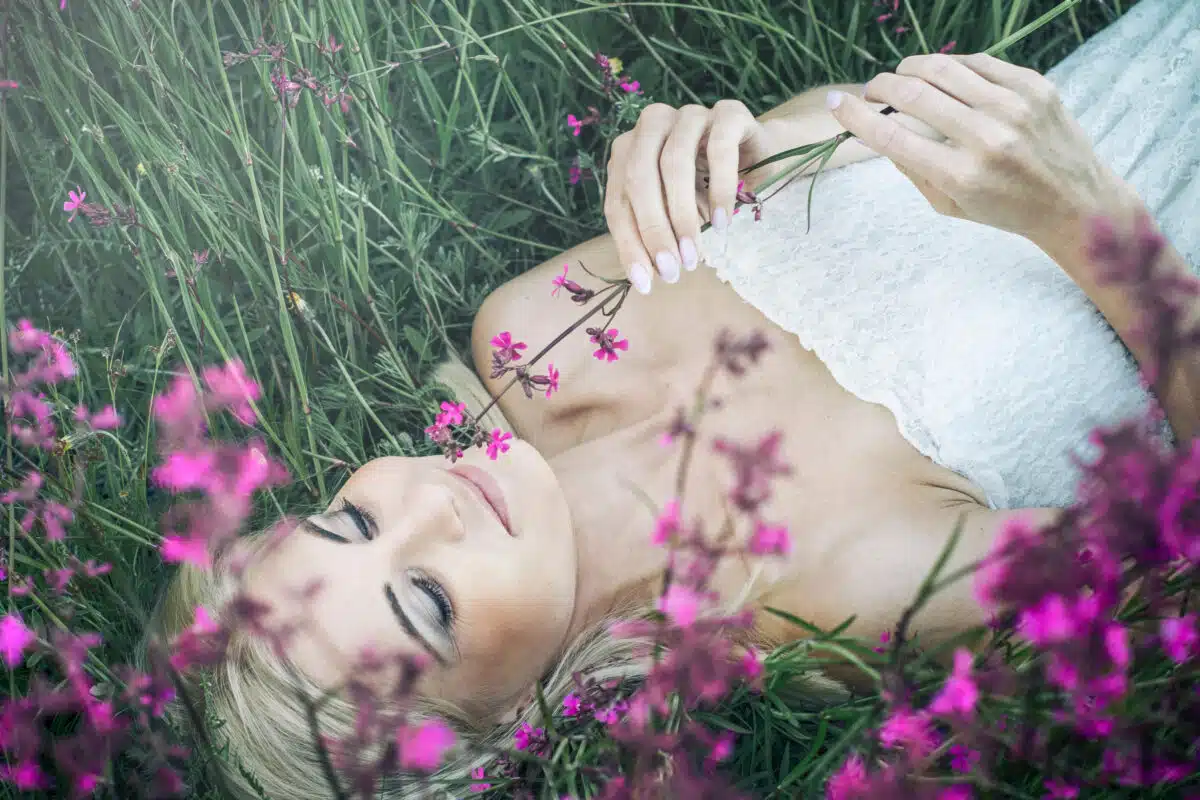
“A Poet’s Garden” by Spenser
AND all about grew every sort of flower
To which sad lovers were transformed of yore;
Fresh Hyacinthus, Phoebus’ paramour And dearest love;
Foolish Narcisse, that likes the watery shore;
Sad Amaranthus, made a flower but late,
Sad Amaranthus, in whose purple gore
Me seems I see Amyntas’ wretched fate,
To whom sweet poets’ verse hath given endless date.
“An Early Blossom” by Coleridge
SWEET flower! that, peeping from thy russet stem
Unfoldest timidly (for in strange sort
This dark, frieze-coated, hoarse, teeth-chattering month
Hath borrowed Zephyr’s voice, and gazed upon thee
With blue voluptuous eye), alas, poor flower!
These are but the flatteries of the faithless year.
Perchance, escaped its unknown polar cave,
Ev’n now the keen north-east is on its way.
“Flowers of Paradise” by Milton
Awake! the morning shines, and the fresh field
Calls us; we lose the prime to mark how spring
Our tender plants, how blows the citron grove,
What drops the myrrh, and what the balmy reed,
How nature paints her colours, how the bee
Sits on the bloom extracting liquid sweet.

“Flowers of Spring” by Wordsworth
Thus, in the train of Spring, arrive
Sweet flowers; what living eye hath viewed
Their myriads? endlessly renewed,
Wherever strikes the sun’s glad ray;
Where’er the subtle waters stray;
Wherever sportive breezes bend
Their course, or genial showers descend!
Mortals, rejoice! the very angels quit
Their mansions unsusceptible of change,
Amid your pleasant bowers to sit,
And through your sweet vicissitudes to range!
“Thistles in the Waste” by Crabbe
HERE thistles stretch their prickly arms afar,
And to the ragged infant threaten war;
Here poppies, nodding, mock the hopes of toil;
Here the tall bugloss paints the sterile soil;
Hardy and high above the slender sheaf
The shining mallow waves her silky leaf;
O’er the young shoot the charlock throws a shade;
And clasping tares cling round the sickly blade.
“The Sweet-Brier” by Phoebe Cary
THE Sweet-brier under the window-sill,
Which the early birds made glad,
And the damask rose by the garden fence
Were all the flowers we had.
I’ve looked at many a flower since then,
Far brought, and rich, and rare,
To other eyes more beautiful But not to me so fair;
For those roses bright, oh, those roses bright!
I have twined them with my sister’s locks,
That are laid in the dust from sight!
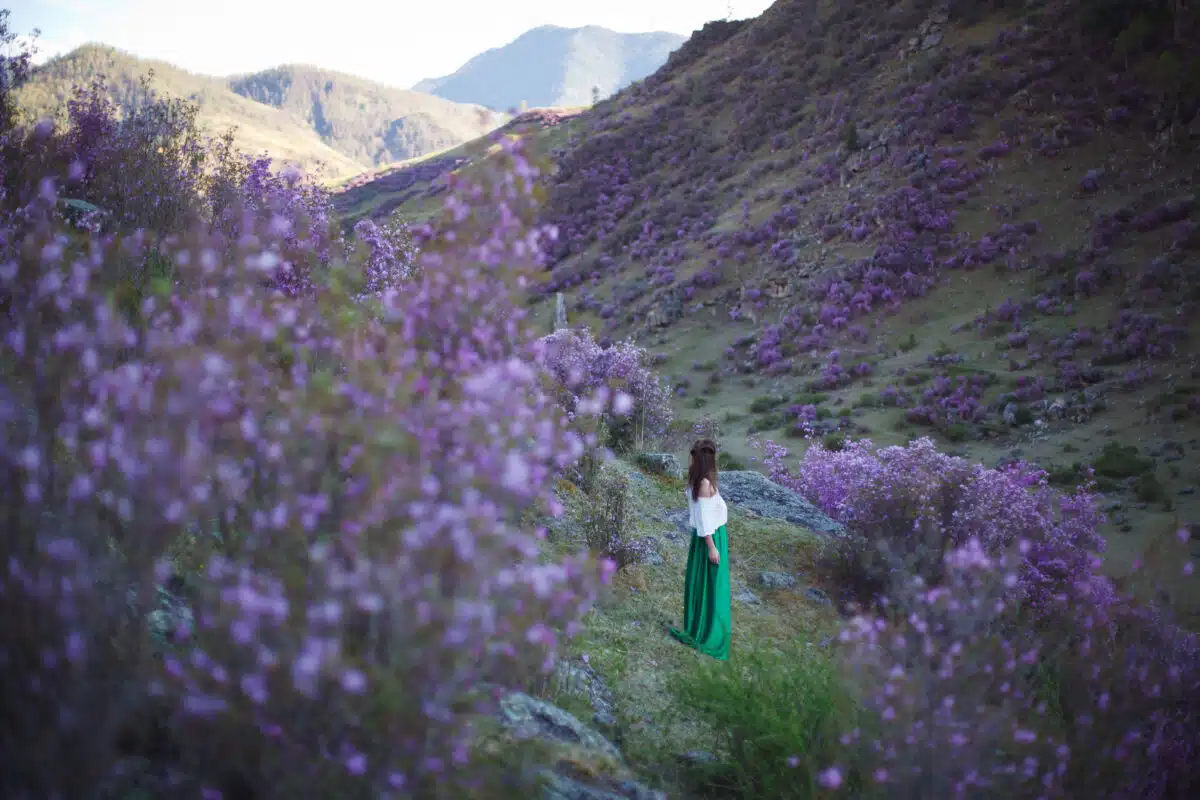
“Rosemary” by Anonymous
SWEET-SCENTED flower, who art wont to bloom
On January’s front severe,
And o’er the wintry season drear
To waft thy sweet perfume !
Come, thou shalt form my nosegay now,
And I will bind thee round my brow;
And as I twine the mournful wreath,
I’ll weave a melancholy song,
And sweet the strain shall be, and long
The melody of death.
“Wandering” by Charles William Hubner, from the German of Uhland
Under the trees I’ll rest me, here
Where the warbling birds are swinging,
Piping the notes to my heart so dear
Sweet birds ! that seem my soul to bear
Away, with their dreamy singing.
To yonder brook’s side I’ll repair,
And rest ‘ mid the blooms and clover ;
Sweet flowers ! that bloom like my absent fair,
Greetings and tokens of love ye bear
To the heart of her wandering lover!
“On Some Withered Flowers” by Marguerite St. Leon Barstow Loud
THESE faded flowers these faded flowers—
Once bloomed within my native bowers,
And shed their choicest perfume round
The walks of home’s sweet garden-ground.
I would not change one withered leaf,
For all the blossoms, gay and brief,
That ever grew beneath the sky
Of far-famed, sunny Italy.
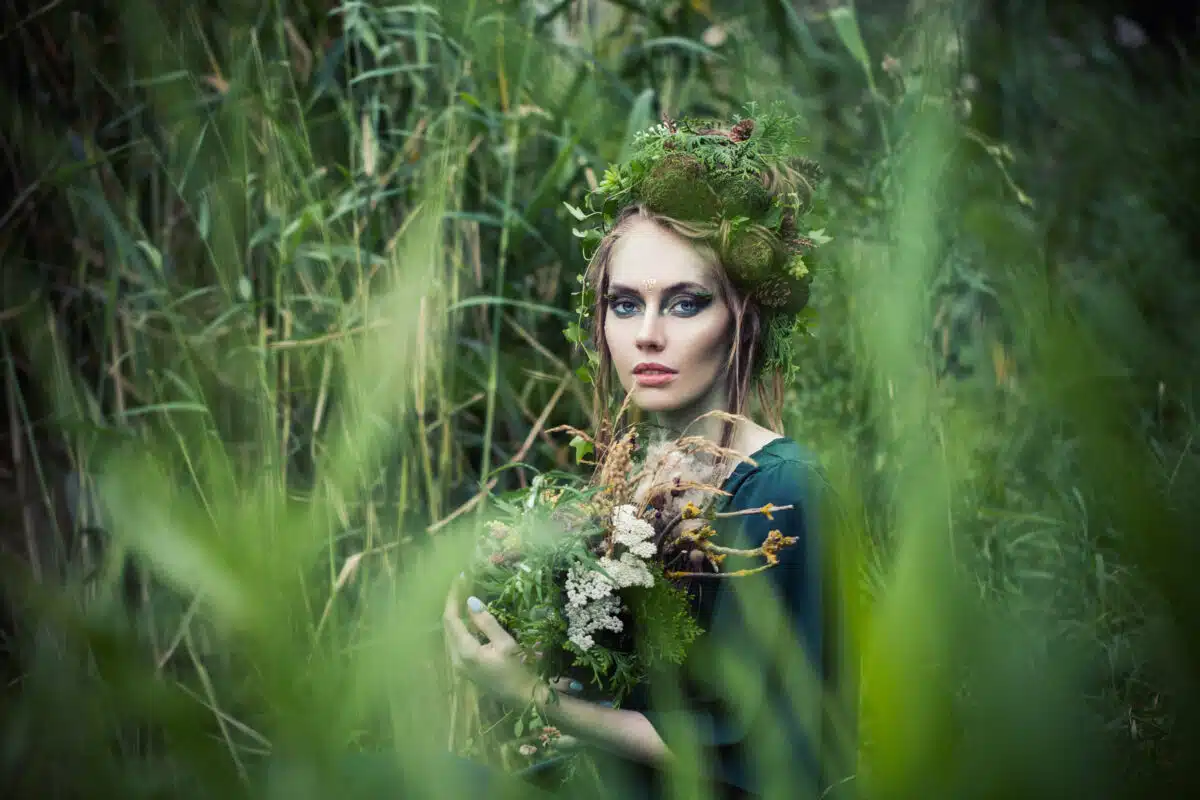
“Wild Flowers” by C. Augustus Price
WHILE wandering through a forest wild,
At noon, a lonesome hour,
I saw beneath the branches piled,
Alovely, blooming flower.
It reared its beauteous head beneath
The coarser of the earth,
And though it scarcely ‘ scaped the heath,
It blossomed like joyous mirth.
An emblem bright it was of you,
Among earth’s coarser lot;
I knew no name, and so in lieu,
Called it “forget you not.”
“Primrose And Violet” by Richard Le Gallienne
Primrose and Violet –
May they help thee to forget
All that love should not remember,
Sweet as meadows after rain
When the sun has come again,
As woods awakened from December.
How they wash the soul from stain!
How they set the spirit free!
Take them, dear, and pray for me.
“Woodland Invitation” by R. Howitt
Come ye, come ye, to the green, green woods;
Loudly the blackbird is singing;
The squirrel is feasting on blossoms and buds,
And the curled fern is springing.
Here ye may sleep in the woods so deep,
Whilethe moon is so wan and so weary,
And sweetly awake, when the sun through the brake
Bids the fauvet and whitethroat sing cheery.
